
A team of scientists from the Center of Excellence in Space Sciences and Department of Physical Sciences at Indian Institute of Science Education and Research Kolkata led by Prantika Bhowmik and Prof. Dibyendu Nandi have dismissed the speculation and claim that the upcoming sunspot cycle is going to be stronger.

Researchers at the Manipal Academy of Higher Education used commercially available 325 nm laser light to inspect healing by exploring tissue fluorophores, and a detector to collect re-emitted light
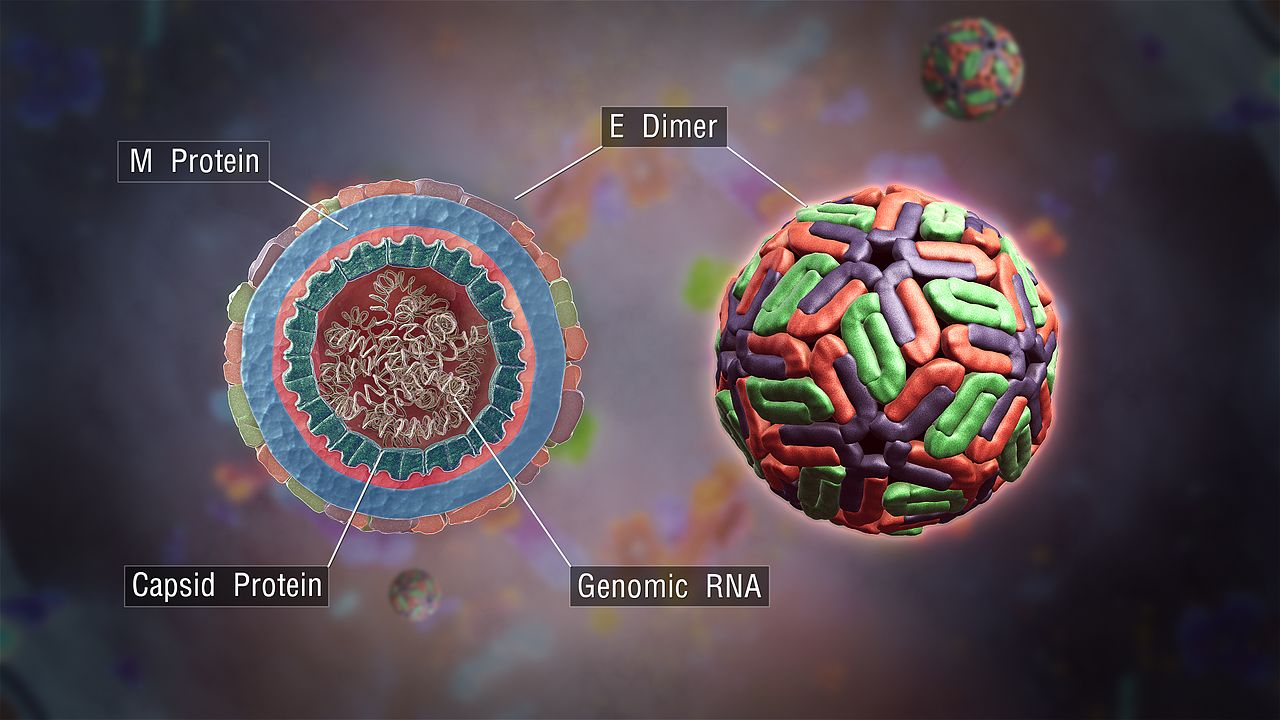
Now a collaborative study led by a team of Indian scientists has identified a key protein which helps dengue as well as Japanese Encephalitis viruses replication inside the human body by inhibiting anti-viral cytokines. This finding could pave way for the development of targeted therapeutic agents against dengue and JE viruses.

One in every eight deaths in India is attributable to air pollution in India, making it a leading risk factor for death in the country. This makes air pollution a bigger contributor to the disease burden than tobacco, according to a new study released on Thursday.
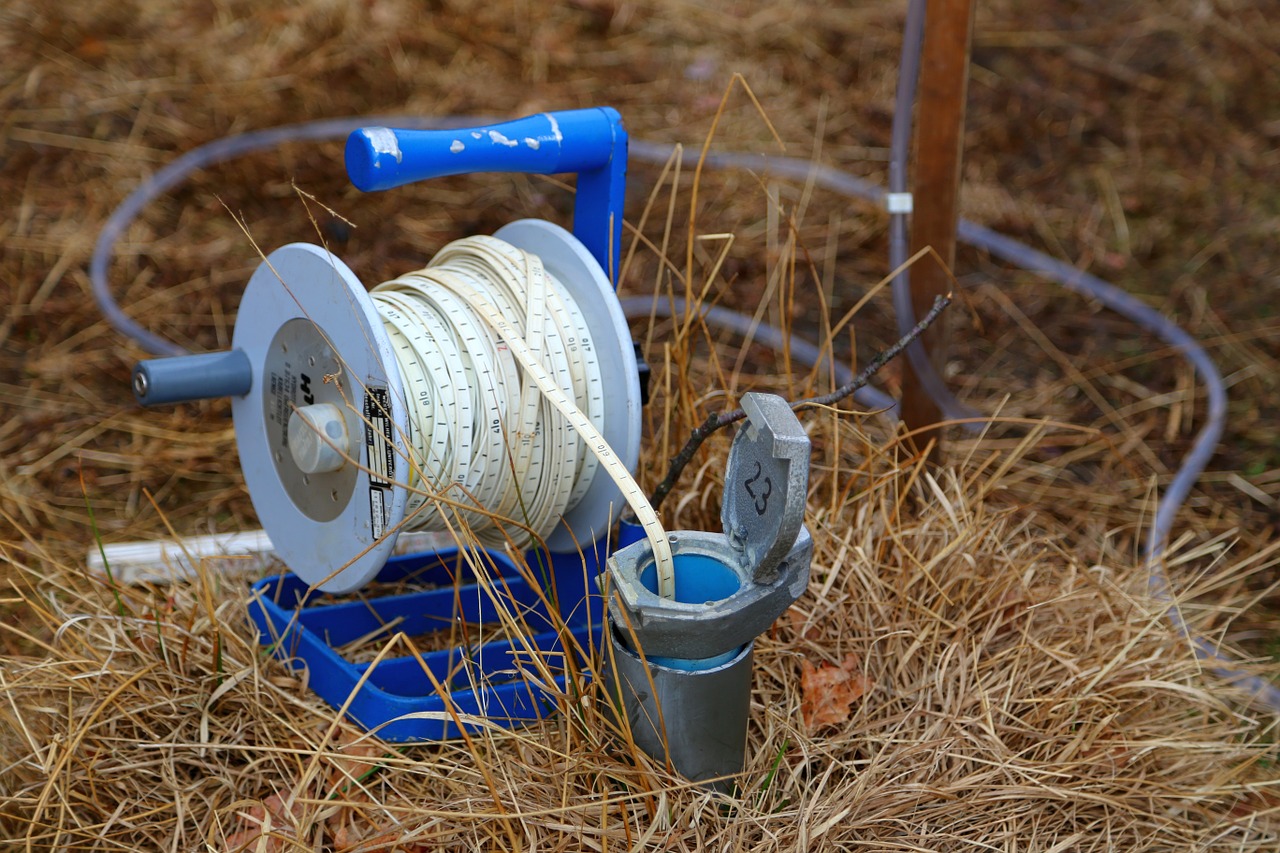
A new survey has shown that there is a major problem of arsenic contamination of groundwater in flood plains of Ravi river on both sides of the India-Pakistan border.
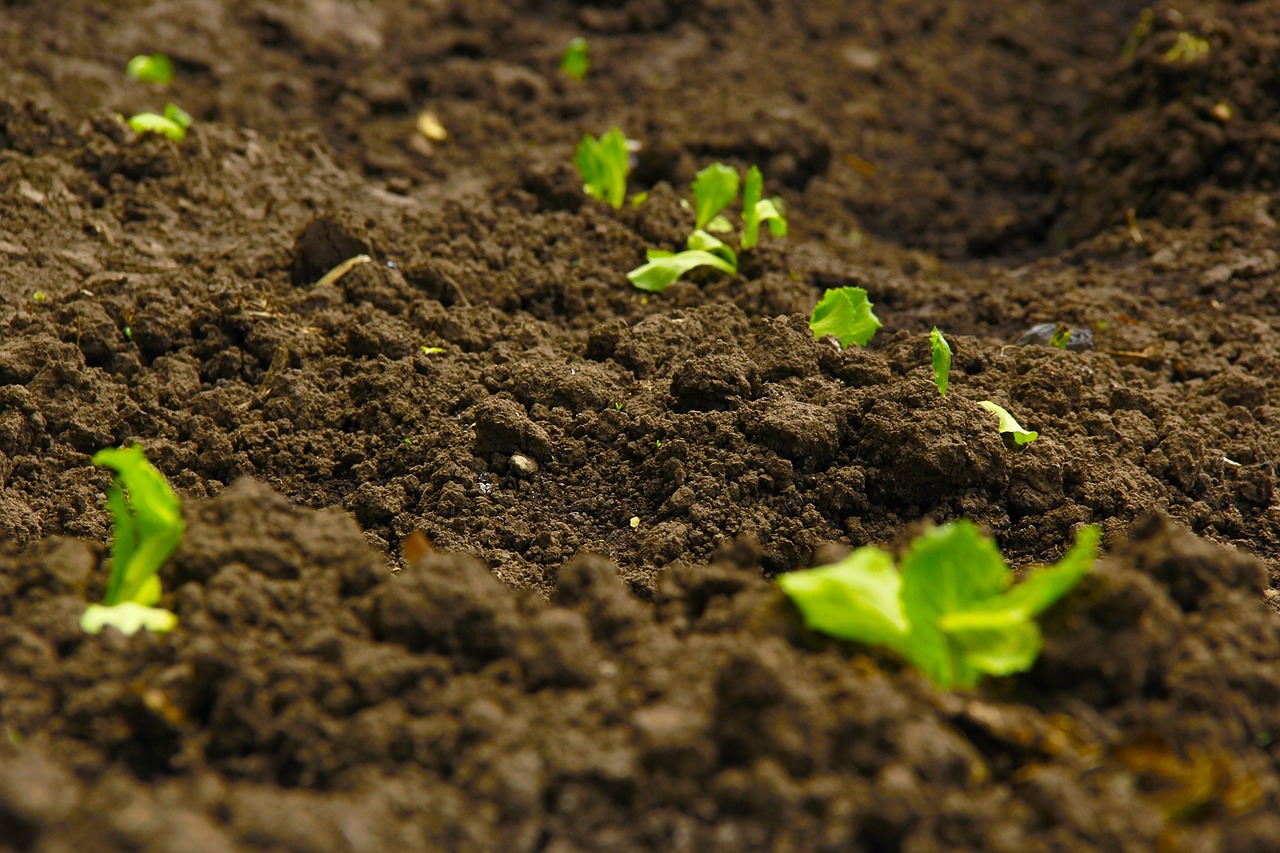
Scientists at the Bharathiar University engaged in studying the ecology of soil microbes that colonize plant roots, have isolated a fungi that can enhance plant growth even in water deficit conditions.

A group of researchers at Nagpur-based Visvesvaraya National Institute of Technology have developed a new technique which promises to help produce high-value graphene from discarded dry cells batteries.

A group of researchers in Hyderabad have identified a biomarker that can help in detecting the risk of ROP from just a drop of tear.

Drug resistance may not be the only reason for a drug failing to treat properly or losing its proven effectiveness. Poor quality of the drug might also be contributing to decreased effectiveness. This is what researchers have found in the case of a drug used to treat ringworm infection.
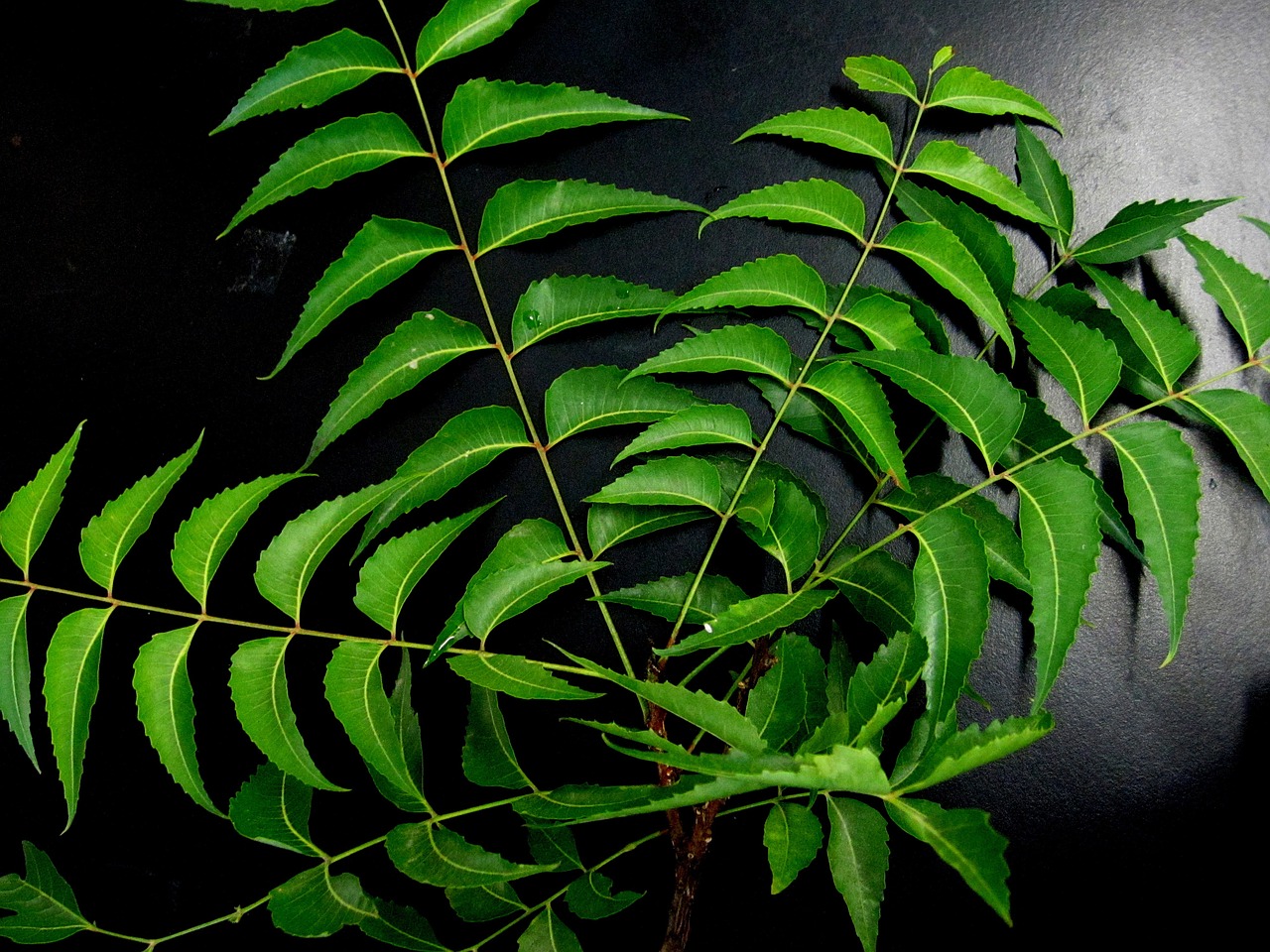
Neem is known for its medicinal and insecticidal properties for centuries. It is chemicals referred to as limonoids that give neem these properties. Indian scientists have now figured out the process of limonoid production in neem.

A team of researchers at Indian Institute of Technology, Guwahati has developed a biocompatible polymeric material that promises to help in the simultaneous and extended release of two different drugs from a single platform
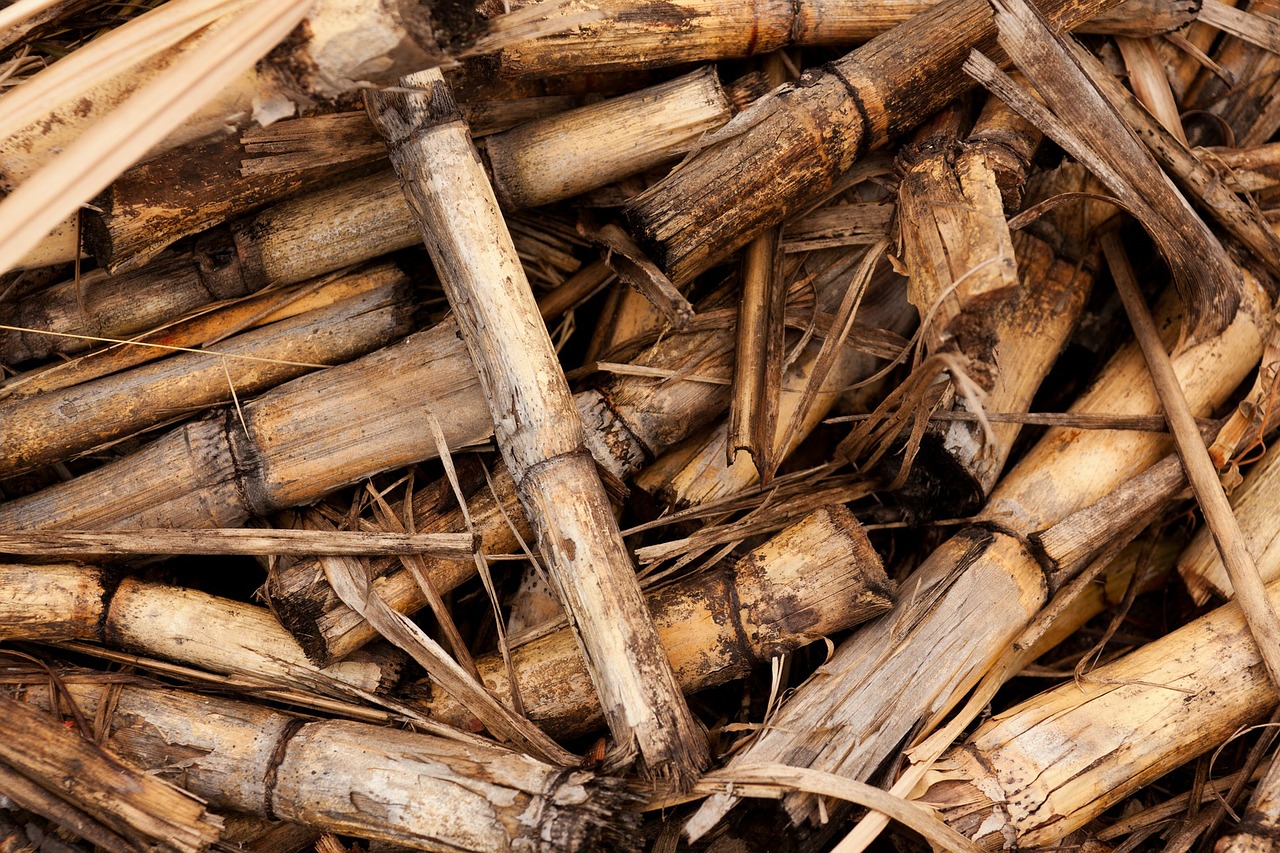
Scientists at the National Chemical Laboratory, Pune have developed a faster, environment-friendly method for conversion of industrial biomass into biodiesel.
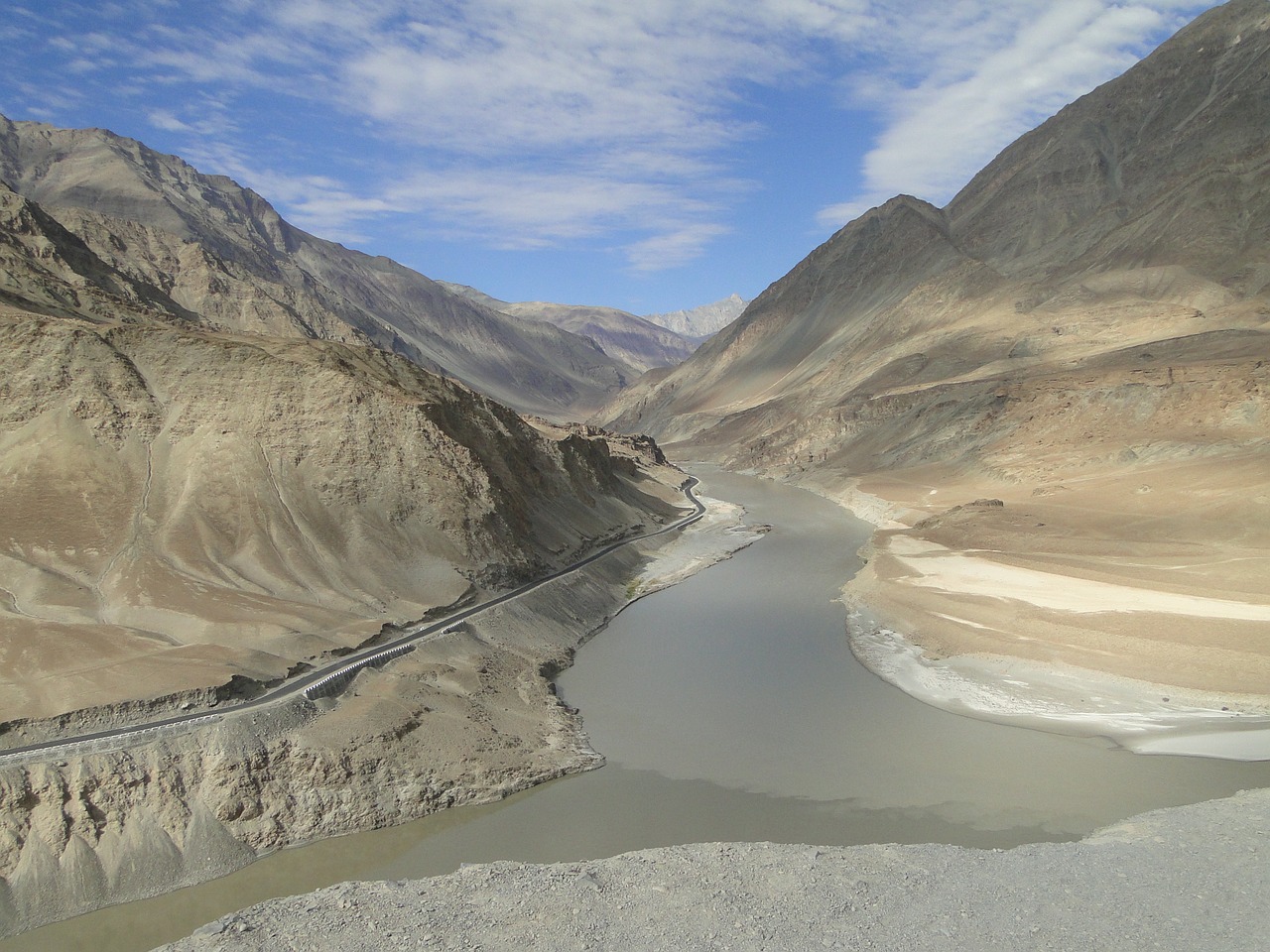
A team of researchers from Birla Institute of Technology and Science, Pilani have used nine parameters to analyse data relating to Puga in Ladakh, Chhumathang in Jammu and Kashmir, Manikaran in Himachal Pradesh, Tattapani in Chhattisgarh, Unhavre Khed in Maharashtra and Tapoban in Uttarakhand. Based on this analysis, they have concluded that Puga has the most potential.
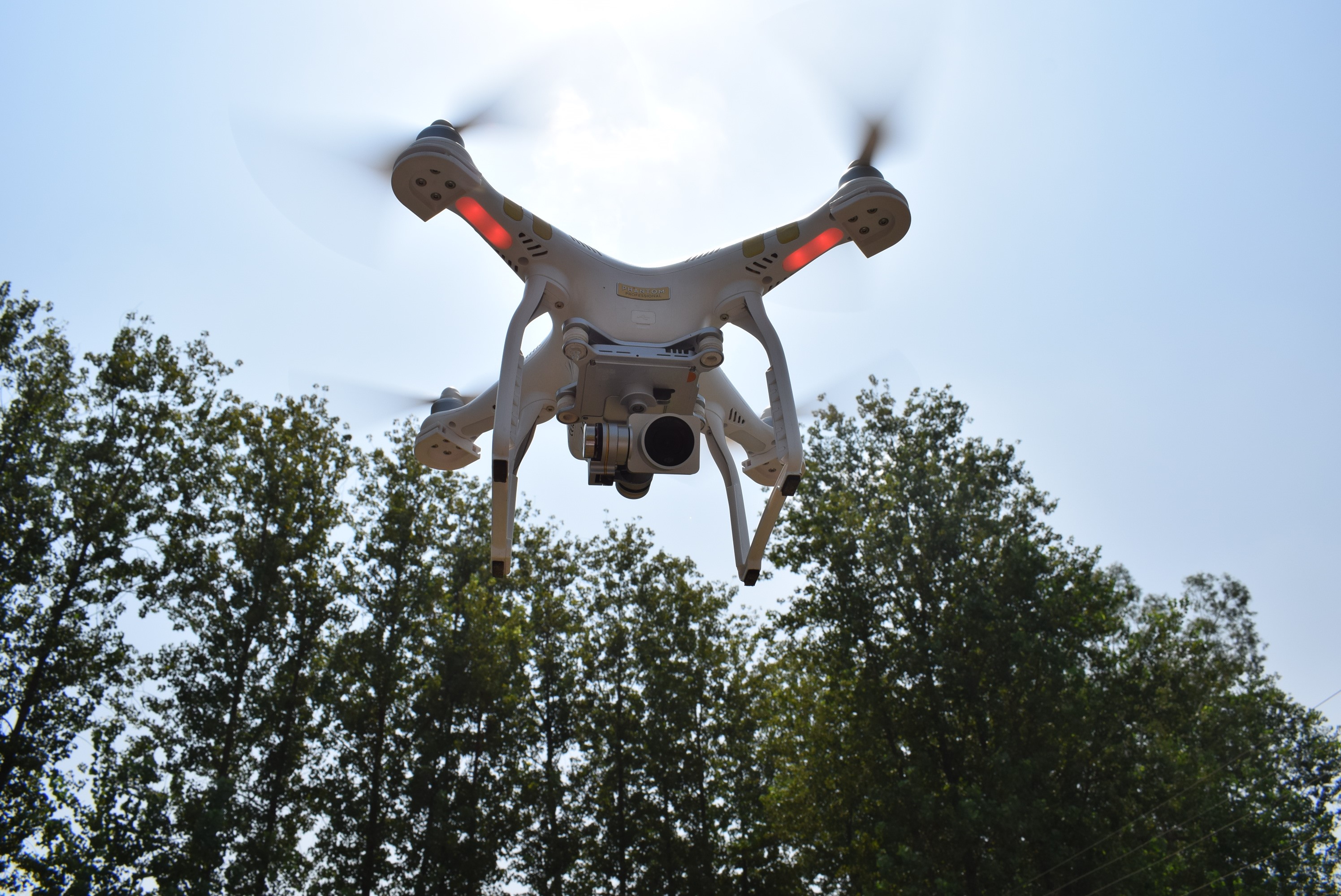
A team of scientists at the Department of Computer Science and Engineering, Indian Institute of Technology, Roorkee has developed drone technologies for applications in precision agriculture and railway track monitoring

Plant scientists have sounded an alarm over a new weed that has been spotted in parts of Karnataka.

The central government has approved a new national mission at a cost of Rs 3660 crore to support the development of technologies and applications relating to cyber-physical systems

A team of researchers from Kerala Forest Research Institute and Christ College in Thrissur in Central Kerala has sought to find out whether it was possible to pay compensation to the farmers affected by the problem like it is done for damages caused by wild animals like elephants.

Only few would know about the work and contribution of Bibha Chowdhuri (1913- 1991) who not only worked with Bhabha and Sarabhai at TIFR and PRL respectively but in the laboratory of Nobel-winning physicist P M S Blackett, who was also an advisor of Prime Minister Nehru on matters relating to organizing scientific research in newly independent India.
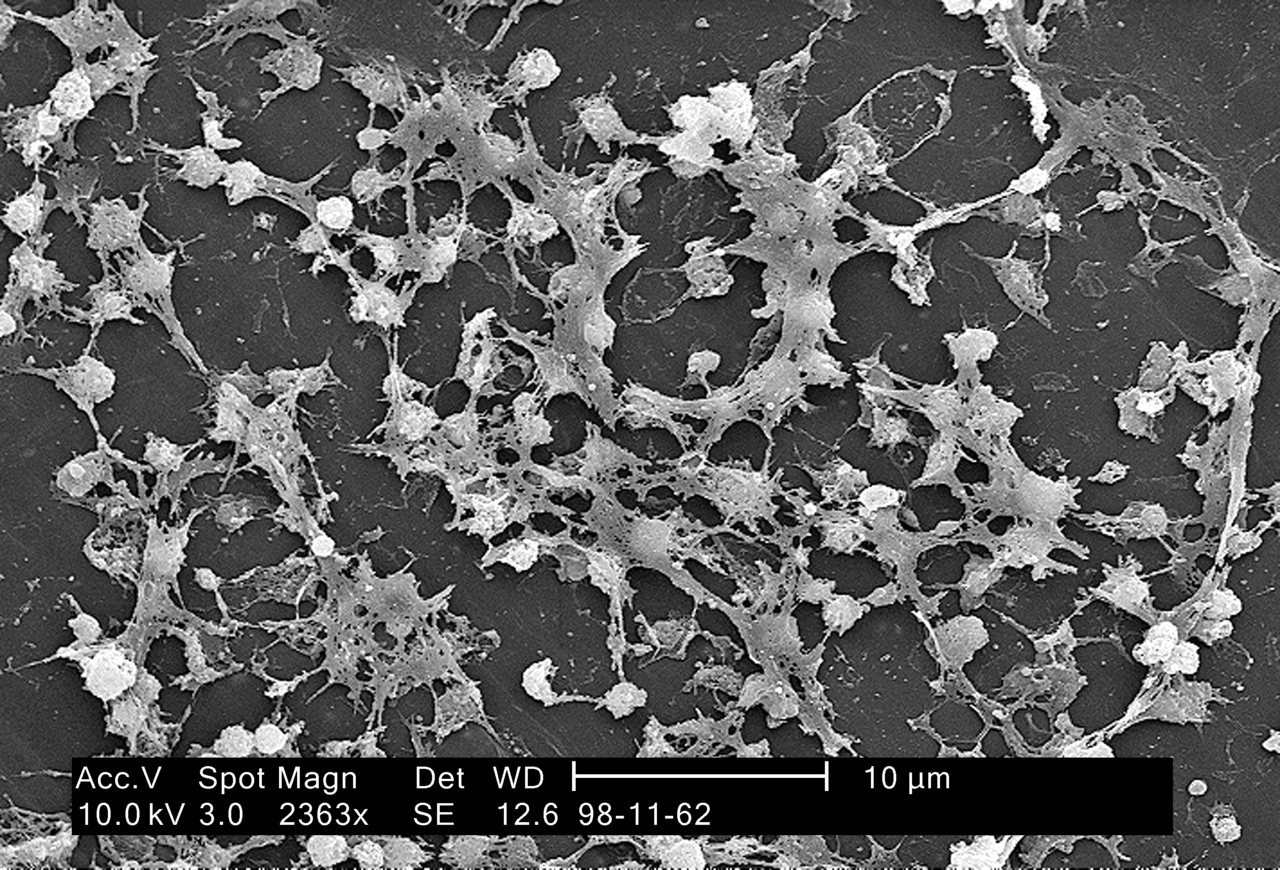
Researchers at Indian Institute of Technology, Roorkee have developed a new eco-friendly nanocomposite that promises to help fight the problem of such antibiotic resistance more effectively.

A new study published recently in New England Journal of Medicine (NEJM) by Dr. Peter Schmid of Barts Cancer Institute, Queen Mary University of London, and his colleagues, has found that combining immunotherapy with chemotherapy could improve the outcome for some advanced triple negative breast cancer patients
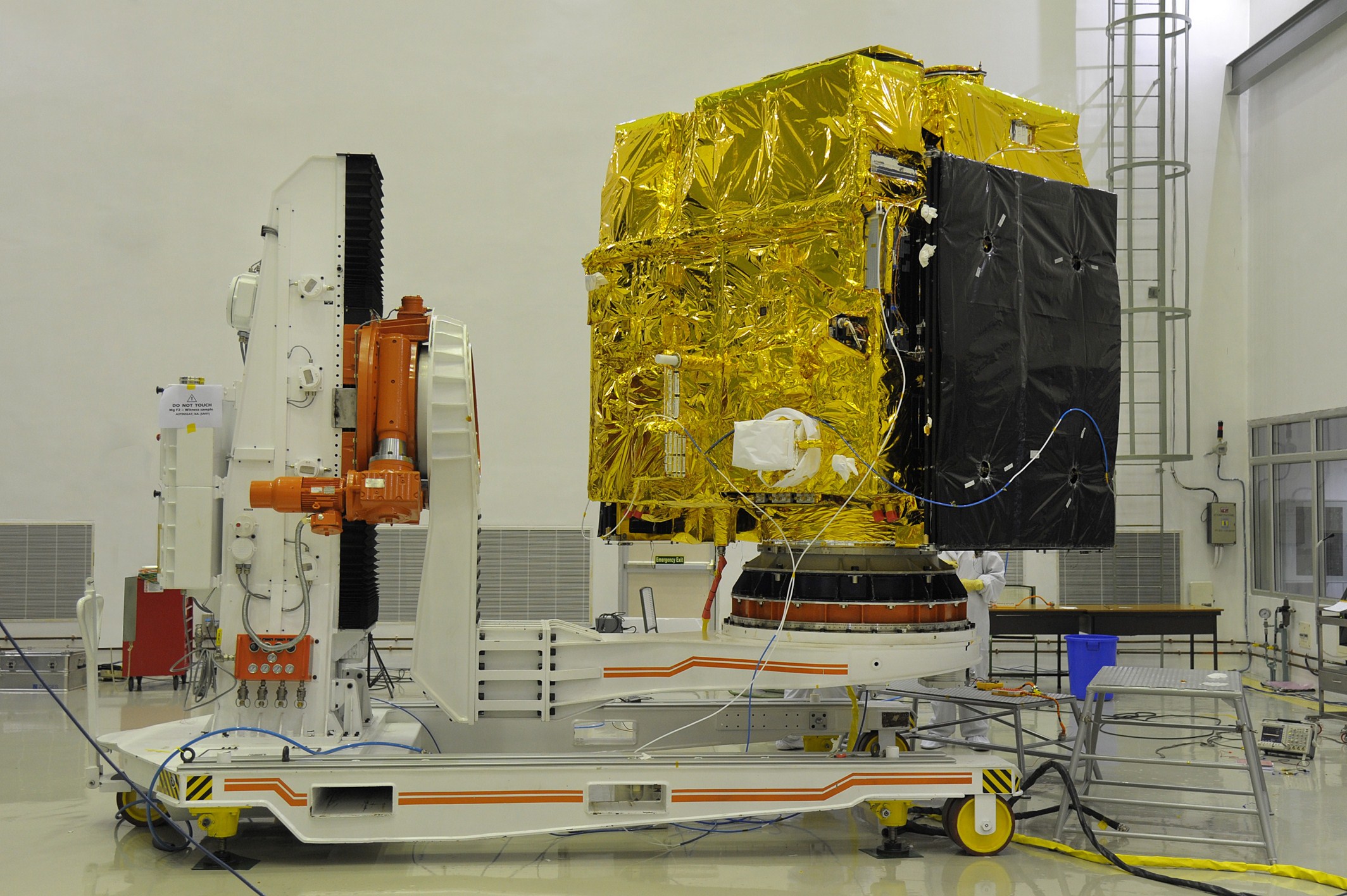
Indian astronomers have peered deep into the Globular Cluster NGC 288, using the Ultraviolet Imaging Telescope (UVIT) on AstroSat to uncover the nature of special kinds of stars
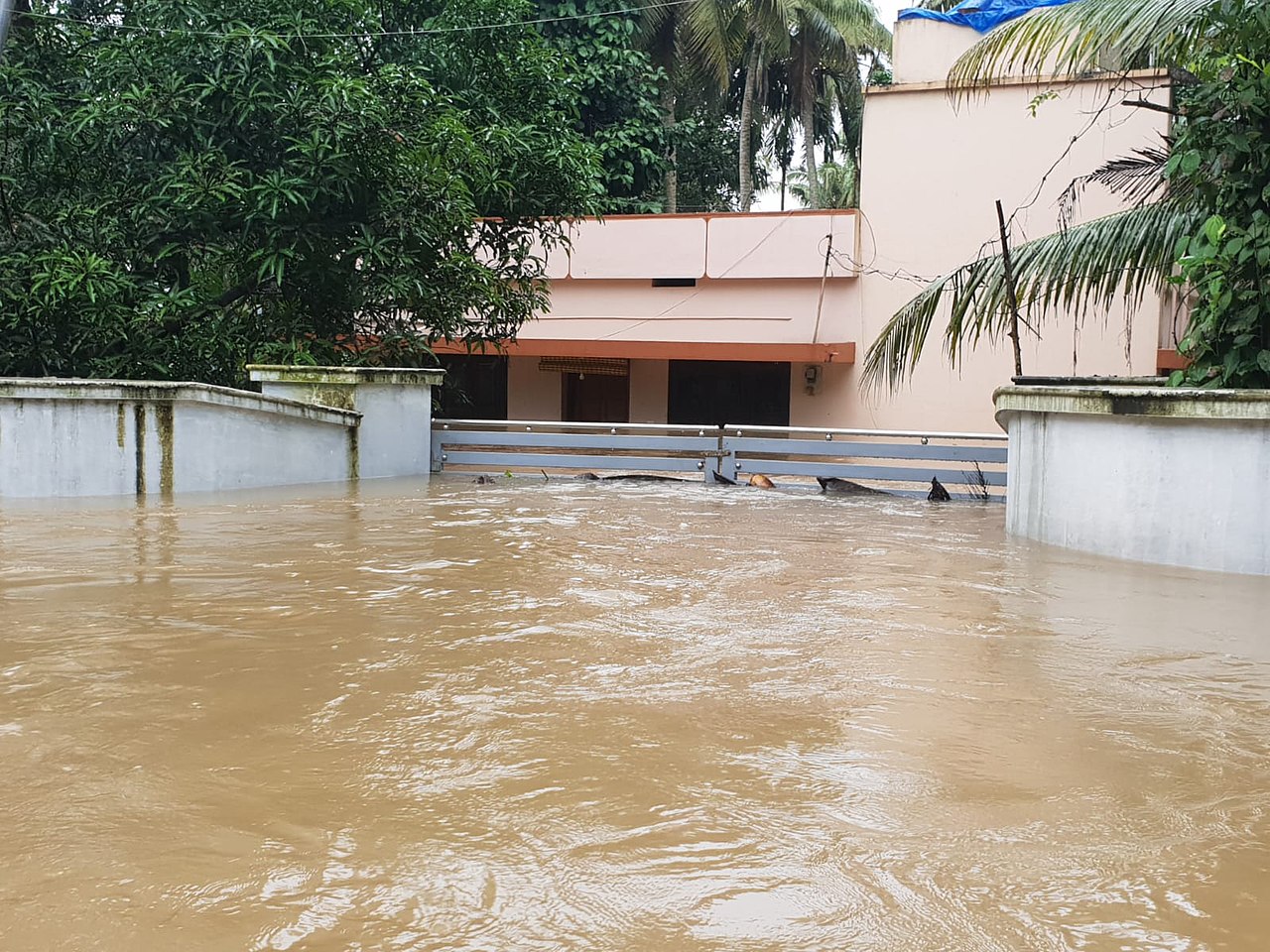
The frequency and intensity of extreme weather events in India appear to be going up, as projected by various scientific assessments on climate change. But it may not be right to connect every such event with climate change, as pointed out by a new study on the recent Kerala floods

A team of scientists has developed a technique that promises to help recycle Plaster of Paris waste from hospitals and other medical centers in a simple, eco-friendly and economical way
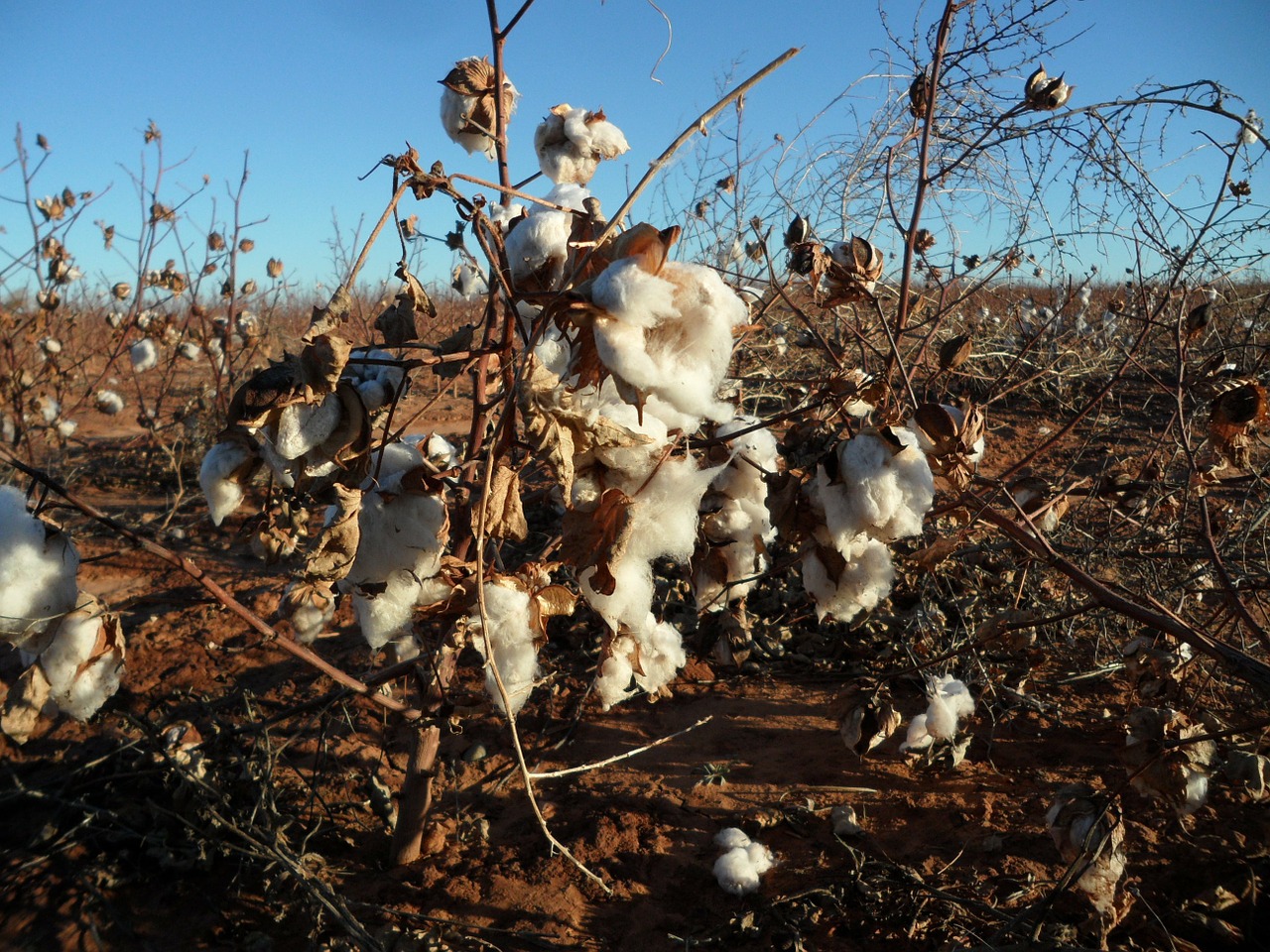
Scientists at Coimbatore-based Tamil Nadu Agricultural University have found that a plant growth promoting rhizobacteria called Bacillus amyloliquefaciens can be used to fight Tobacco Streak Virus in the cotton crop
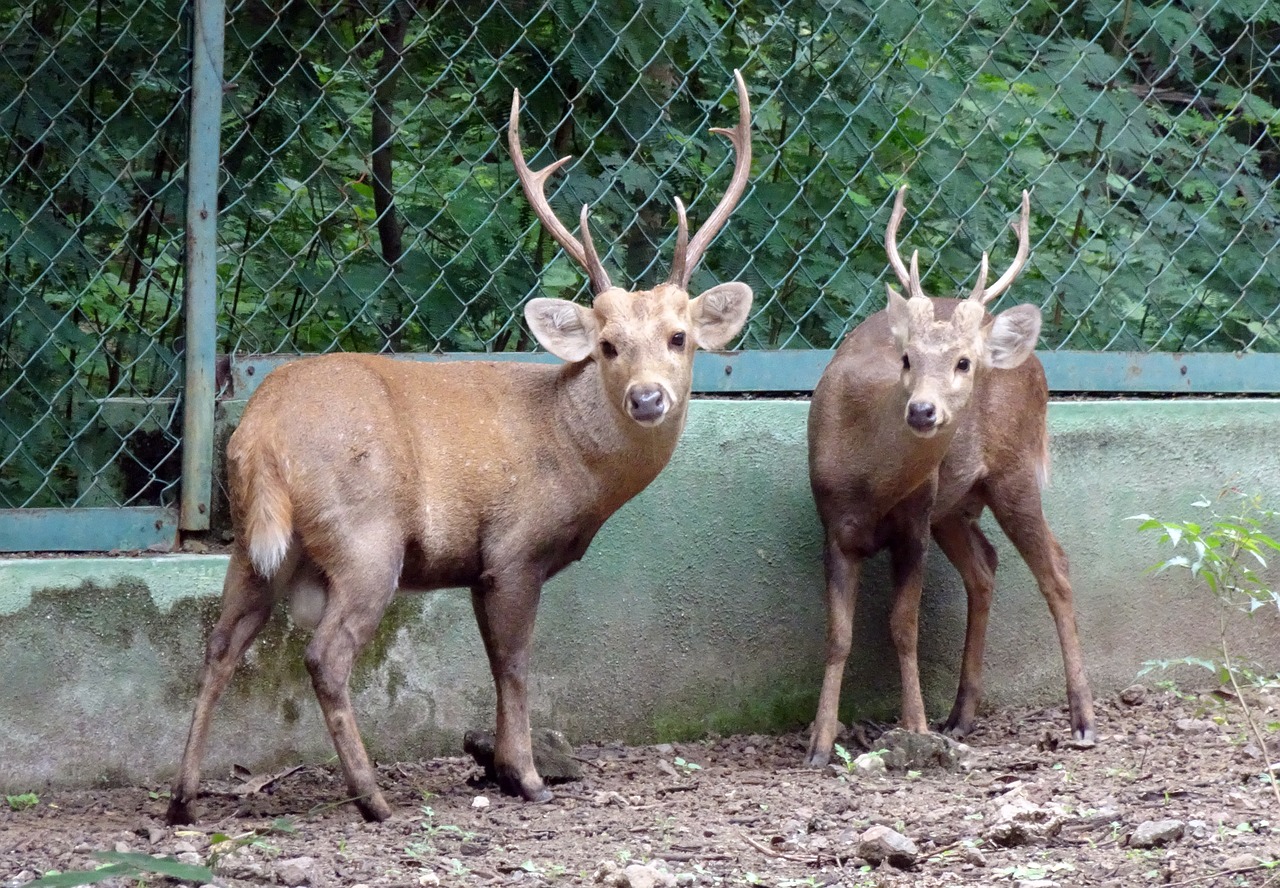
Indian scientists have discovered the presence of a sub-species of hog deer in India. This endangered sub-species was earlier believed to be confined to the eastern part of central Thailand
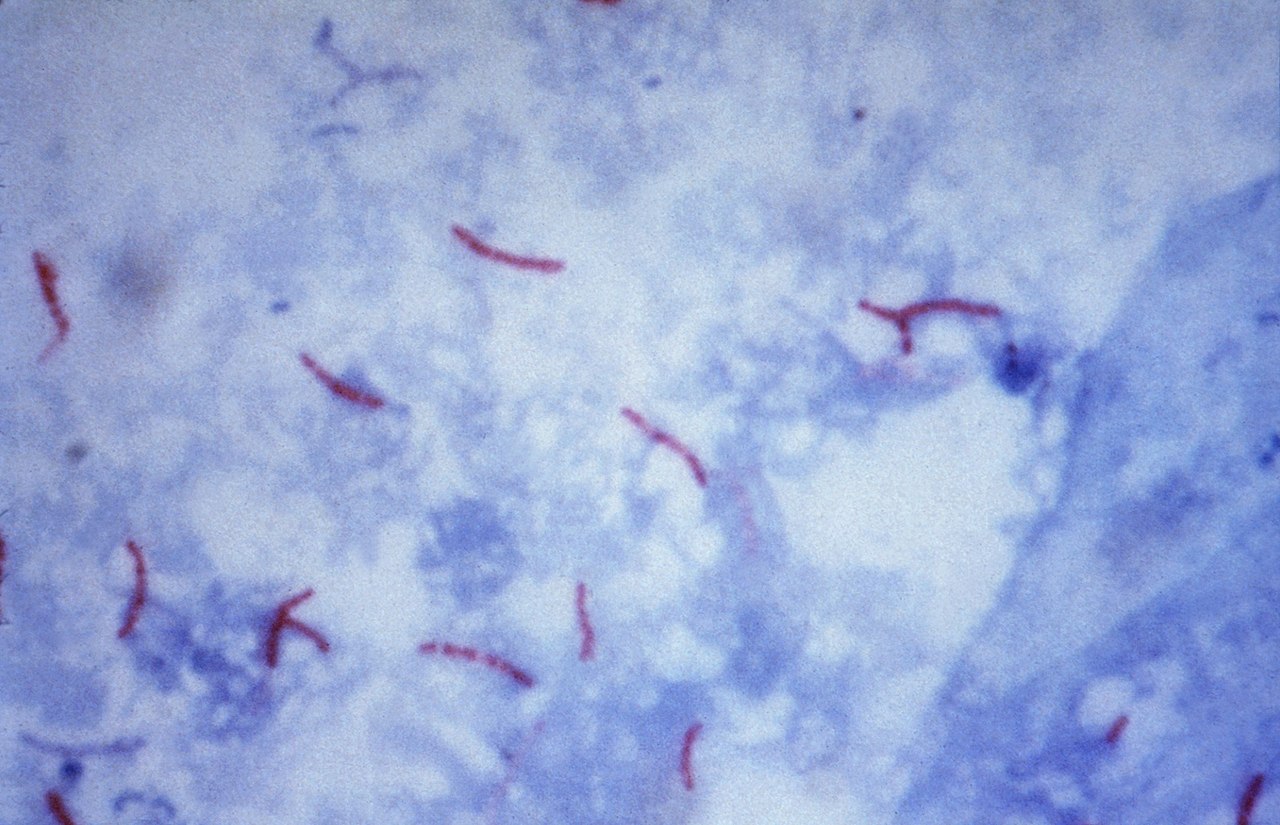
Scientists at the Translational Health Science and Technology Institute here and All India Institute of Medical Sciences, New Delhi have jointly developed highly sensitive and rapid tests for detection of tuberculosis infection in lungs and surrounding membranes.

The research team at the Indian Institute of Technology, Gandhinagar, has found that boron-rich nanosheets, developed by them earlier this year, can also act as a chemical reagent

Scientists at the Pune-based National Chemical Laboratory of Council of Scientific and Industrial Research have developed a mathematical model that promises to deliver better protocols for cancer treatment
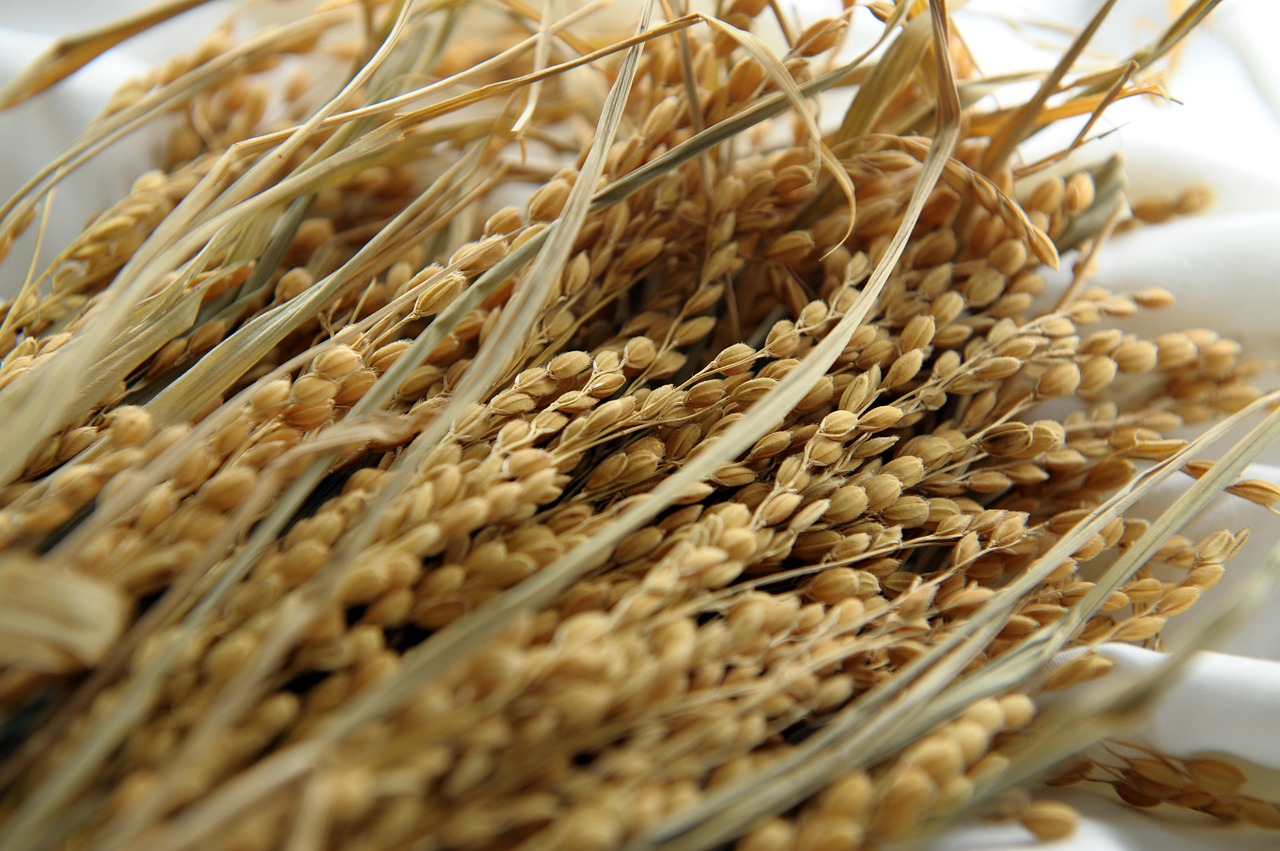
Arsenic accumulation in rice grains is one of the serious agricultural issues in India. To address this, researchers at Lucknow- based CSIR-National Botanical Research Institute have developed transgenic rice by inserting a novel fungal gene, which results in reduced arsenic accumulation in rice grain
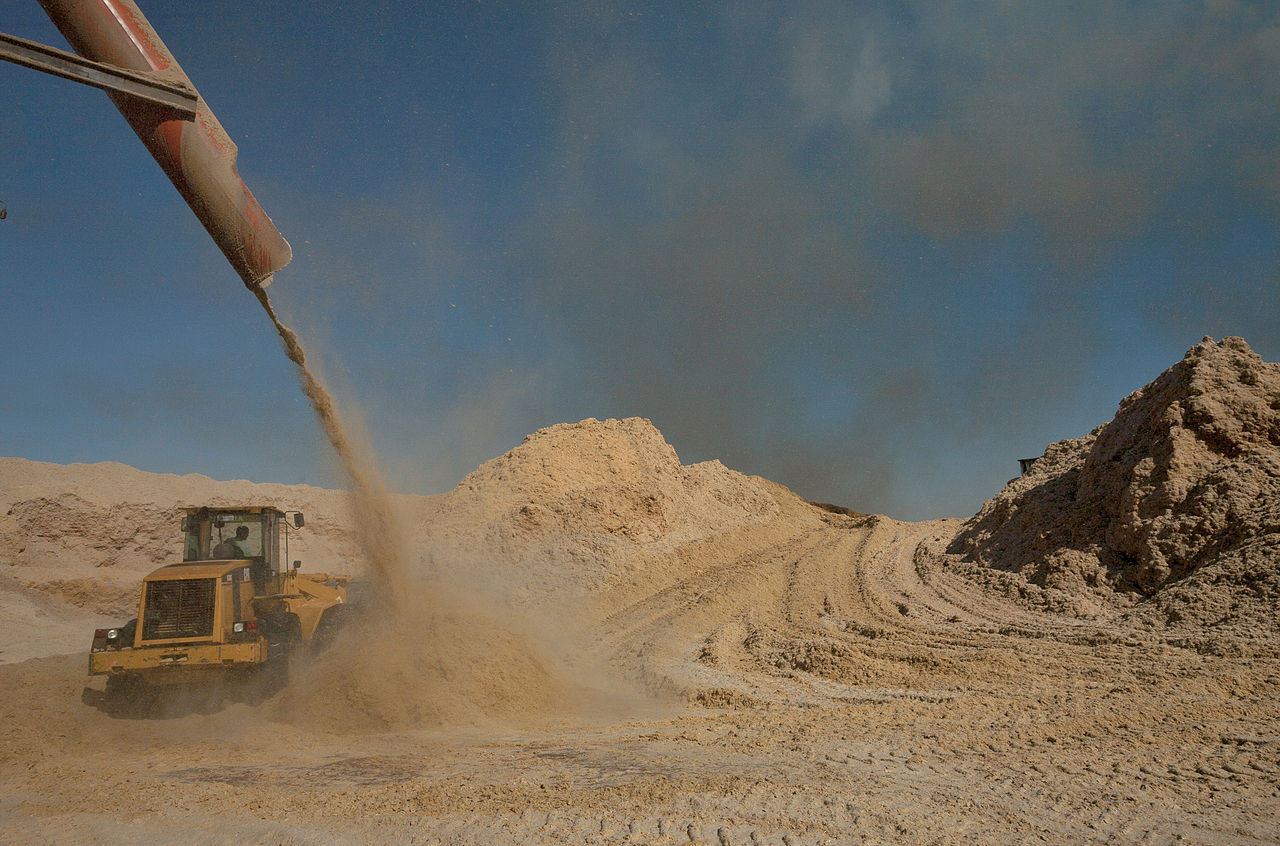
Scientists at Pune-based National Chemical Laboratory of Council of Scientific and Industrial Research have developed an environment-friendly controlled release formulation system for applying agrochemicals in agricultural fields
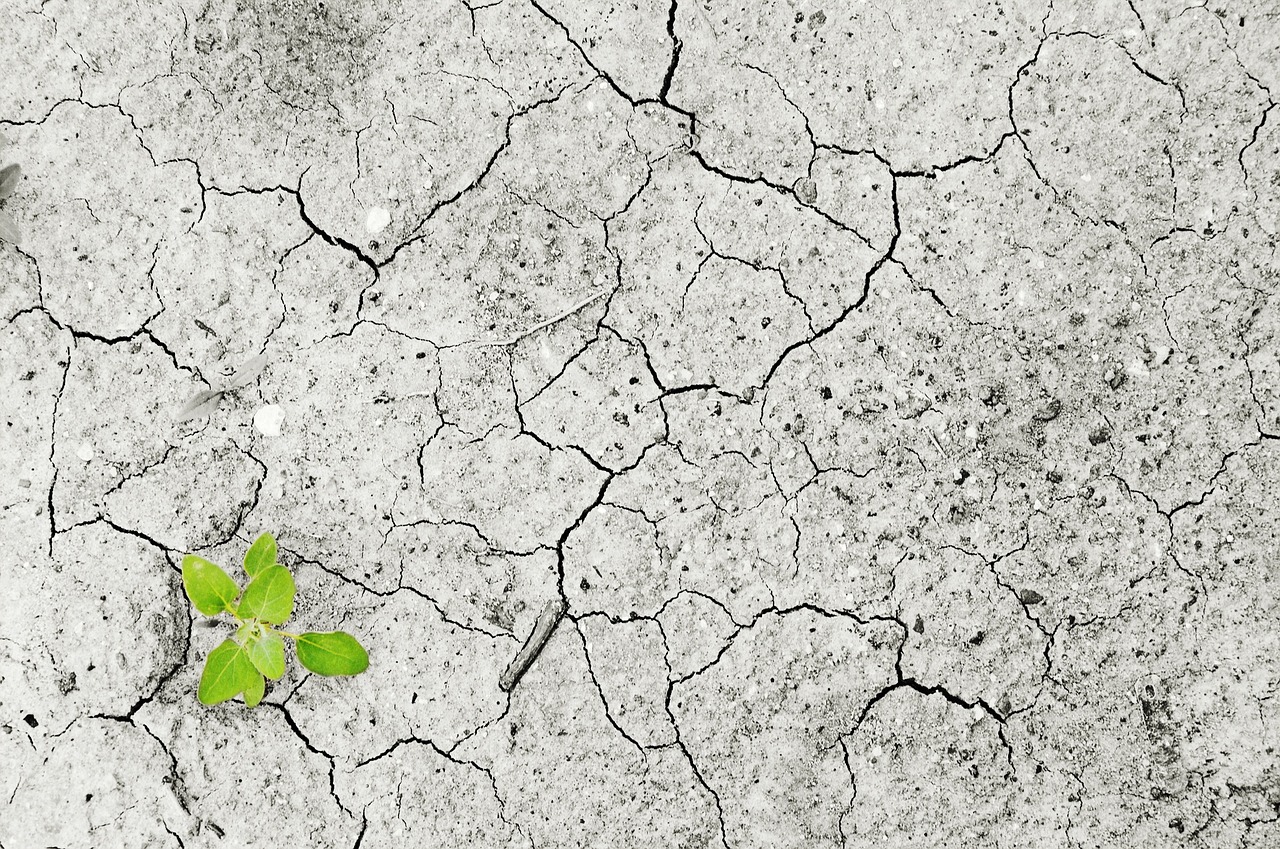
A report of an Oxford University-led study in journal Nature, as well as a recent report from FAO, have emphasized the need for the global food system to abandon the `business-as-usual’ stance to stay true to the `2oC warming’ goal
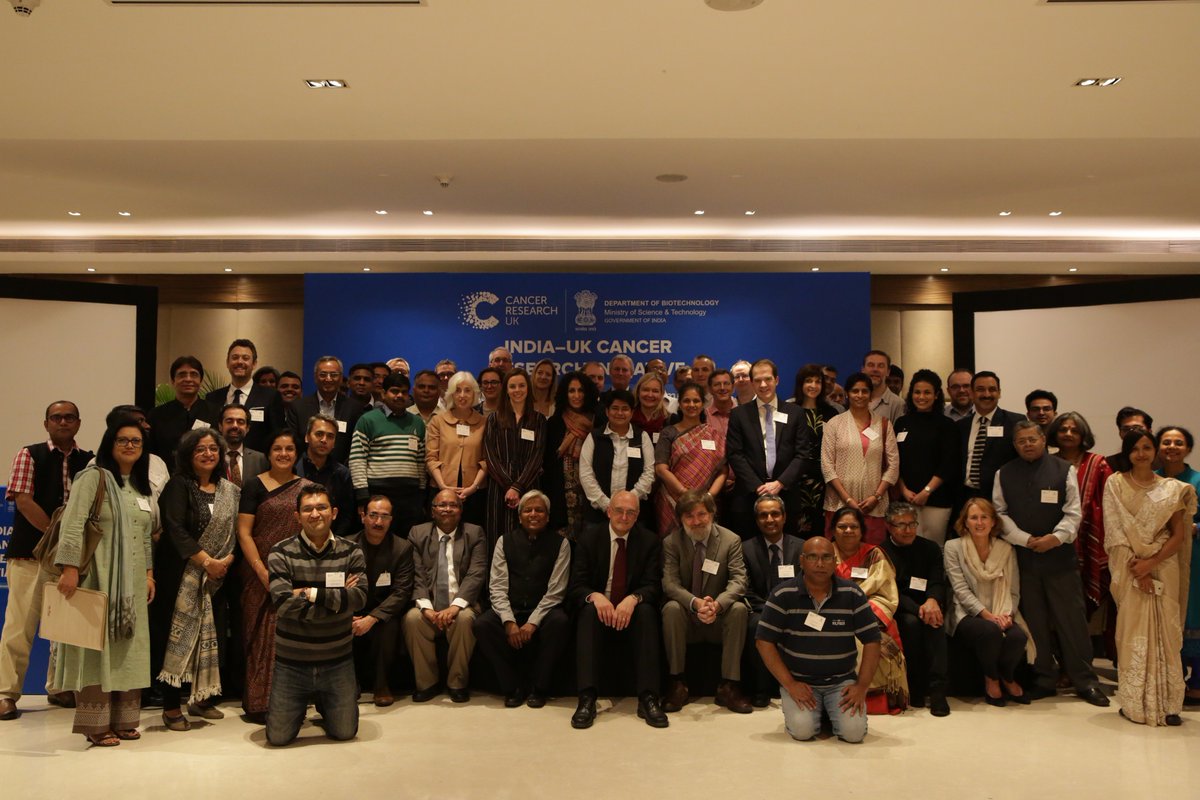
India and the United Kingdom today launched a British Pounds 10 million collaborative research programme that will address issues of affordability, prevention and care of cancer by bringing together Indian and UK experts across clinical research
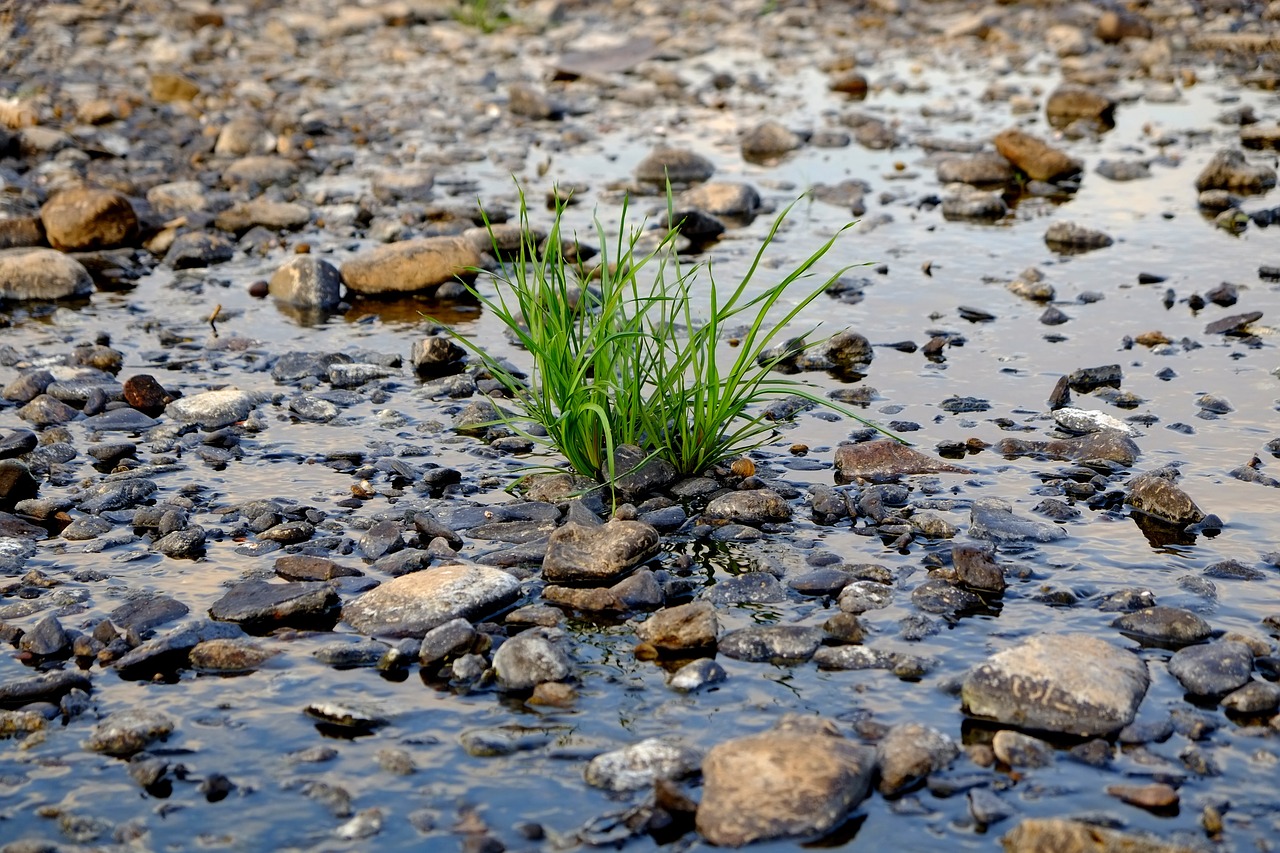
Over-extraction of groundwater is a major environmental challenge in many parts of India. It is not only leading to a rapid decline in groundwater reserves but also contributing to India’s carbon emissions, a new study has warned
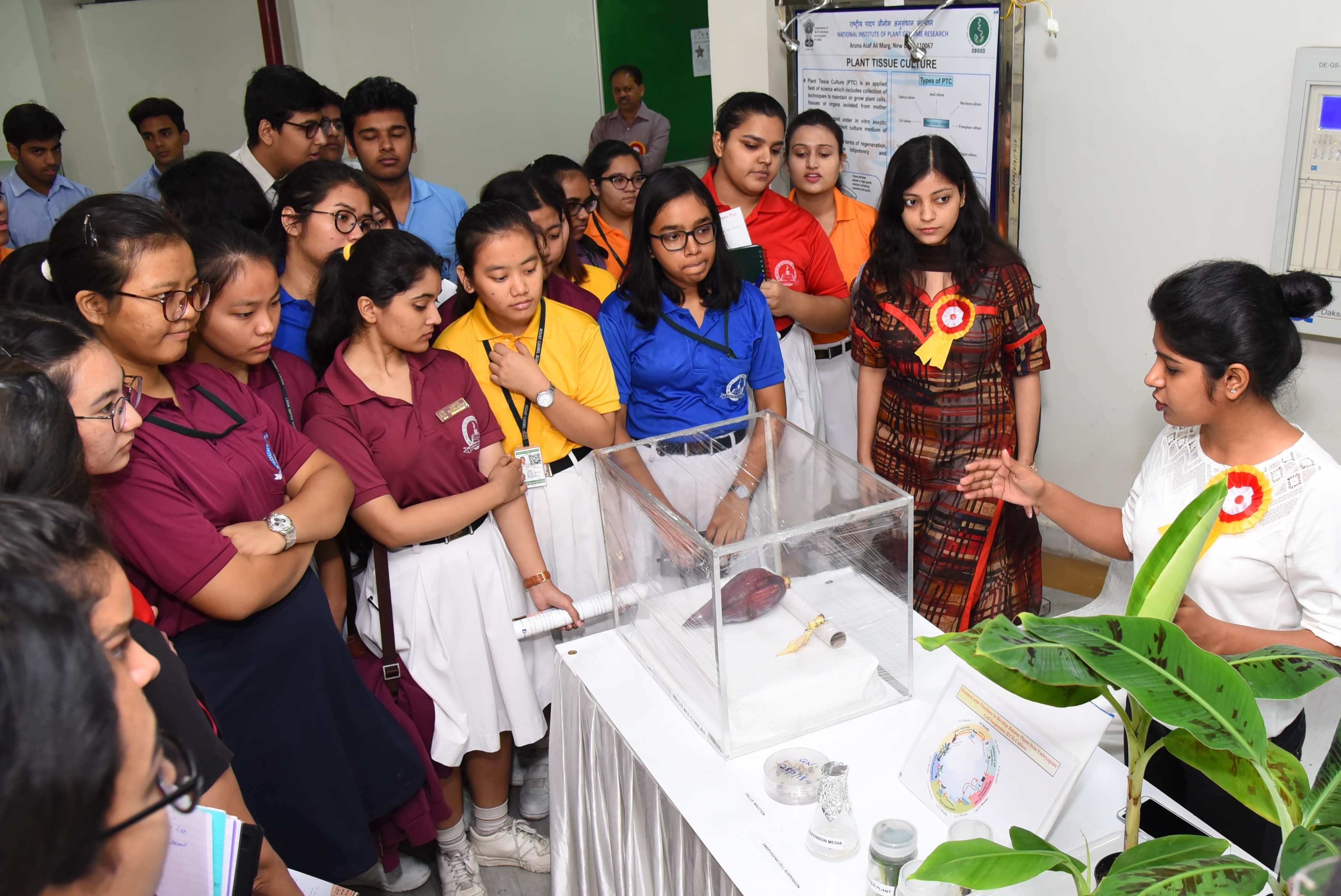
On October 26, 2018, New Delhi based National Institute of Plant Genome Research, an autonomous institute under the Department of Biotechnology, Government of India, had organized an Open day for the general public in order to popularize research in plant sciences and its applications
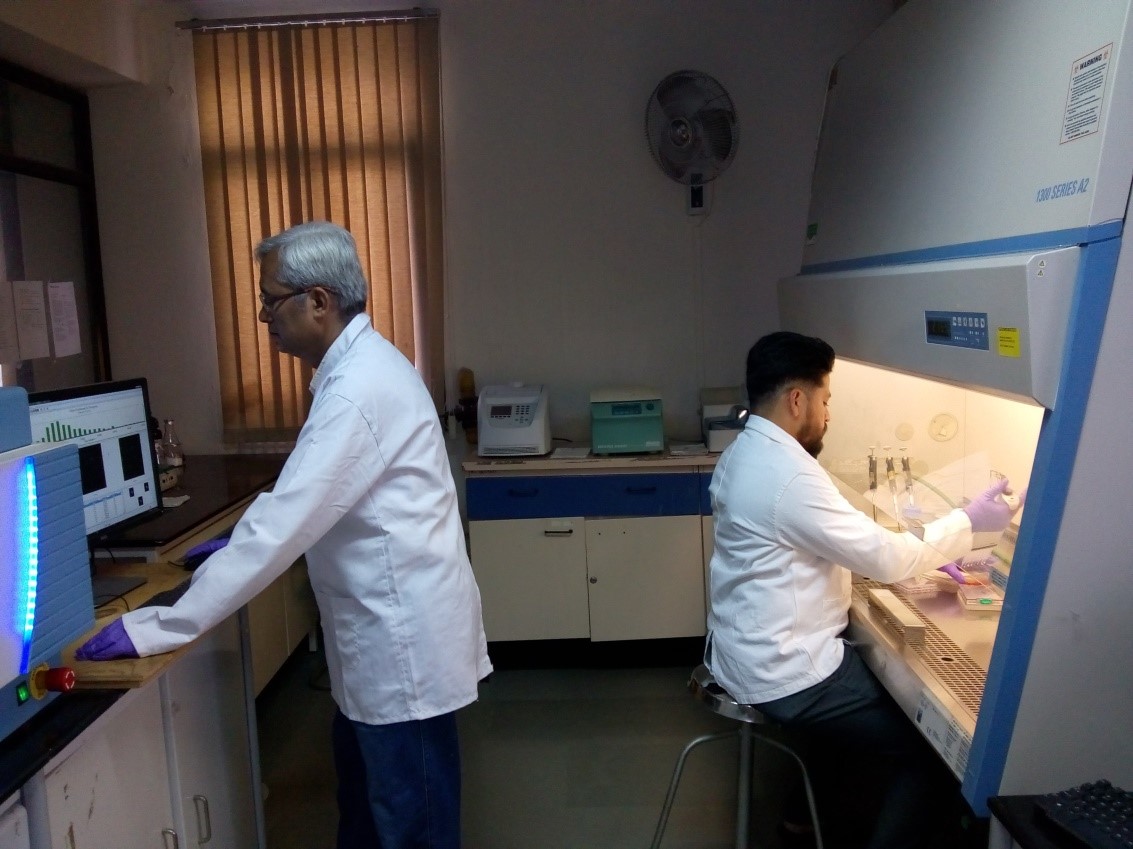
Cancer drugs are generally toxic and result in serious side effects in patients. A group of Indian researchers has now redesigned one such drug to get new chemicals which themselves may be potential anti-cancer and anti-bacterial drugs
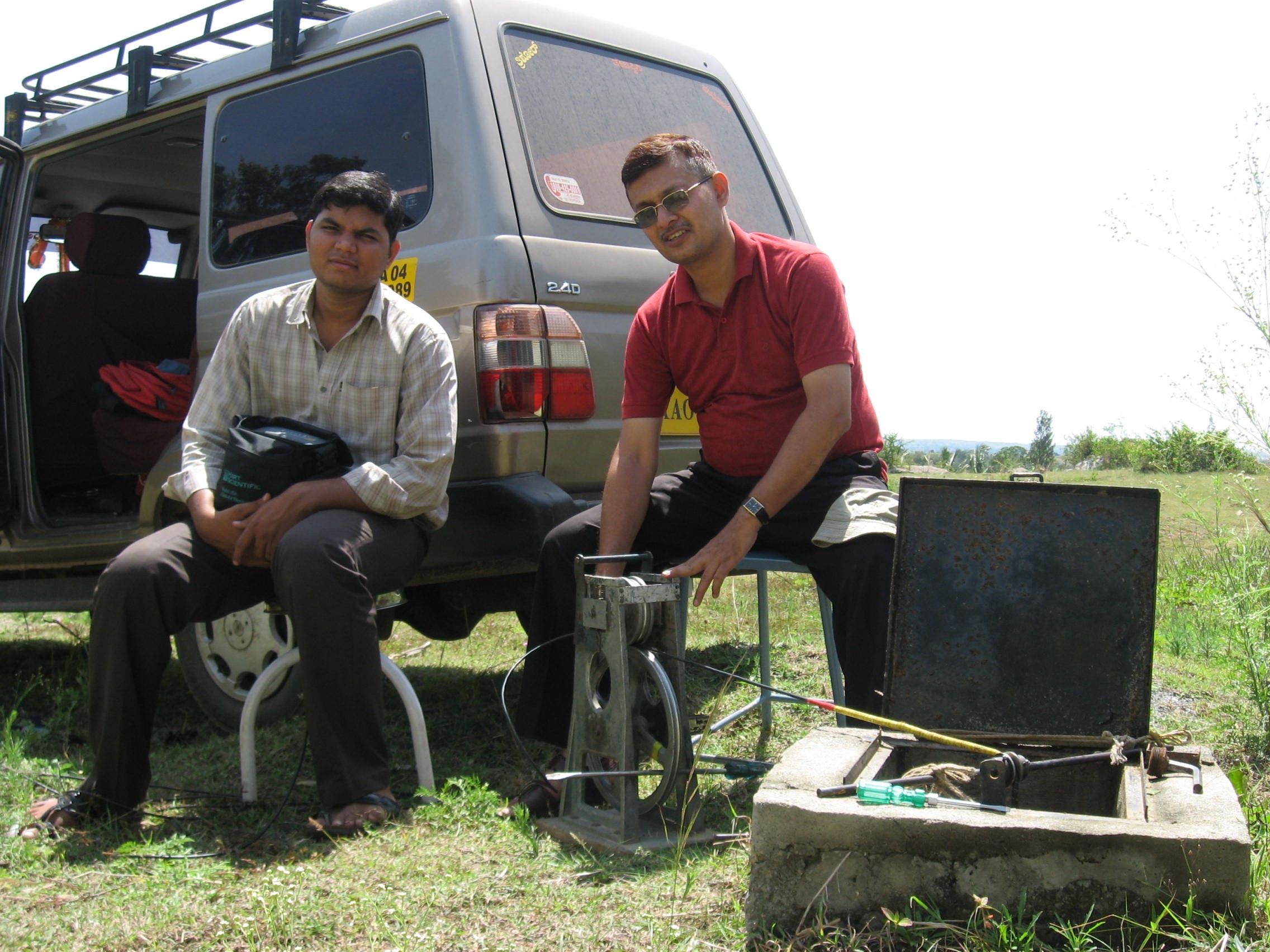
Scientists are literally looking into the ground for clinching evidence of climate change. A new study of geothermal records across India has shown that the country has experienced about one degree of warming over the baseline mean temperature of the nineteenth century
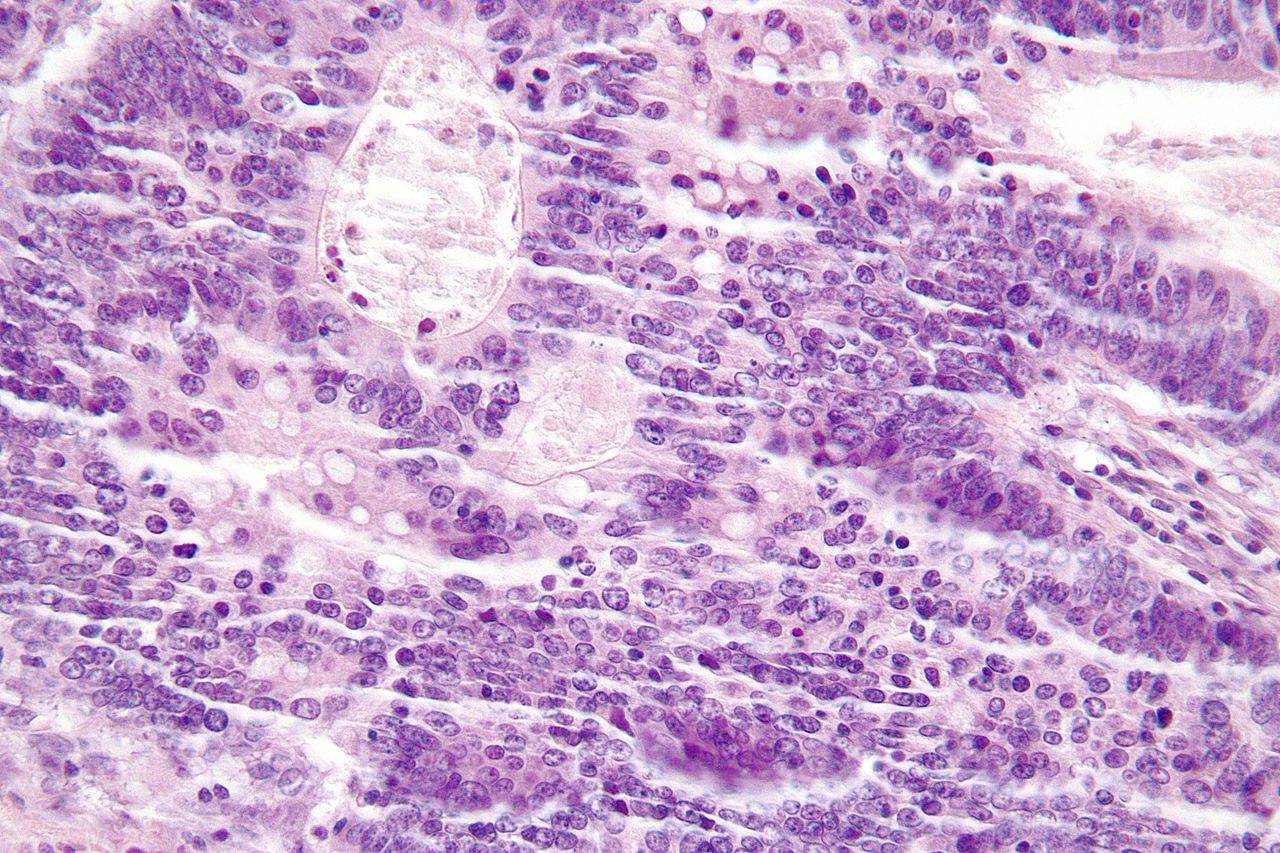
Researchers at the Bengaluru-based Indian Institute of Science have found that a class of cells that defends the body against invaders also triggers obsessive-compulsive behaviour in patients suffering from autoimmune disorders such as Multiple Sclerosis
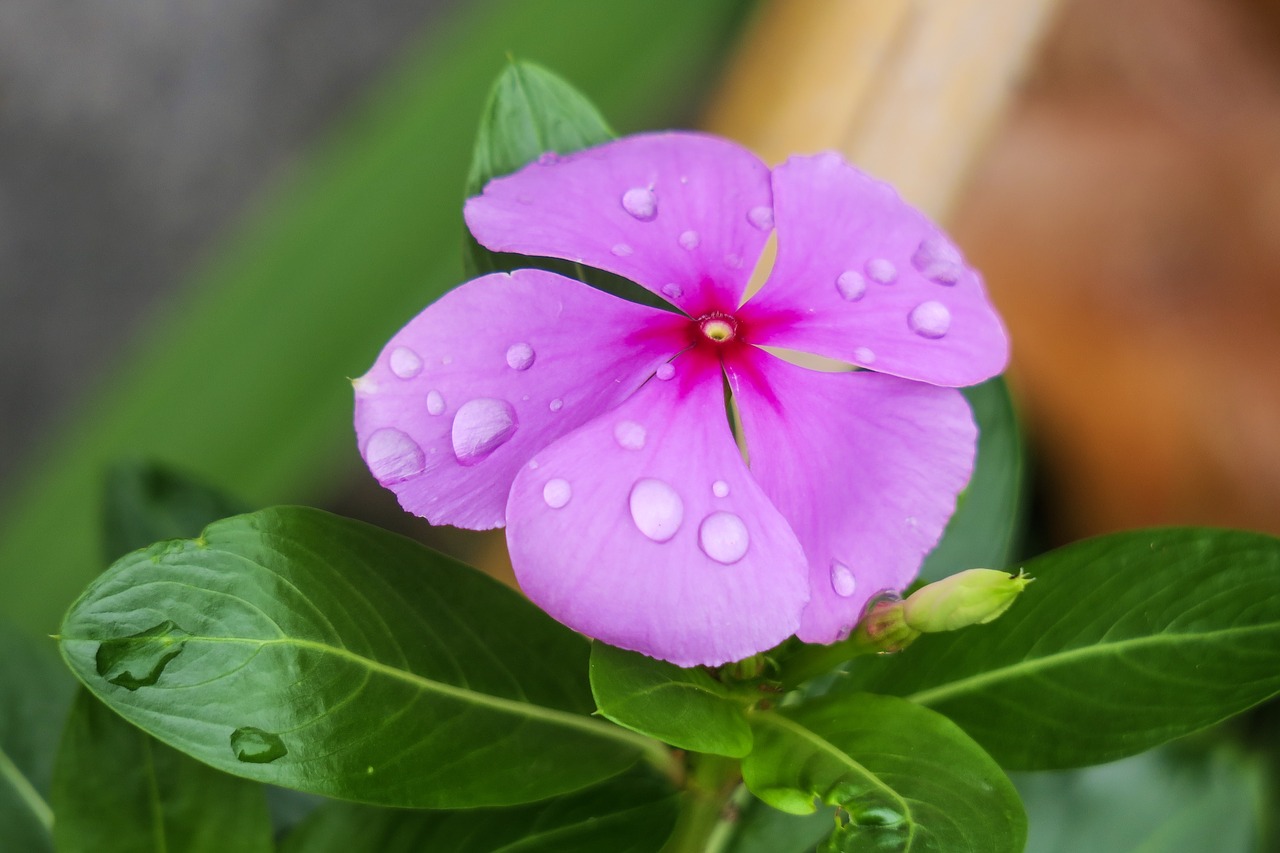
A team of researchers at the Indian Institute of Technology-Roorkee, have developed a set of fluorescent carbon nano-dots that promises to serve as a diagnostic-cum- therapeutic agent for cancer

Scientists at the Pune-based National Chemical Laboratory (NCL) have isolated a bacterial strain from rotten pomegranate which promises to help produce bacterial cellulose on a large scale
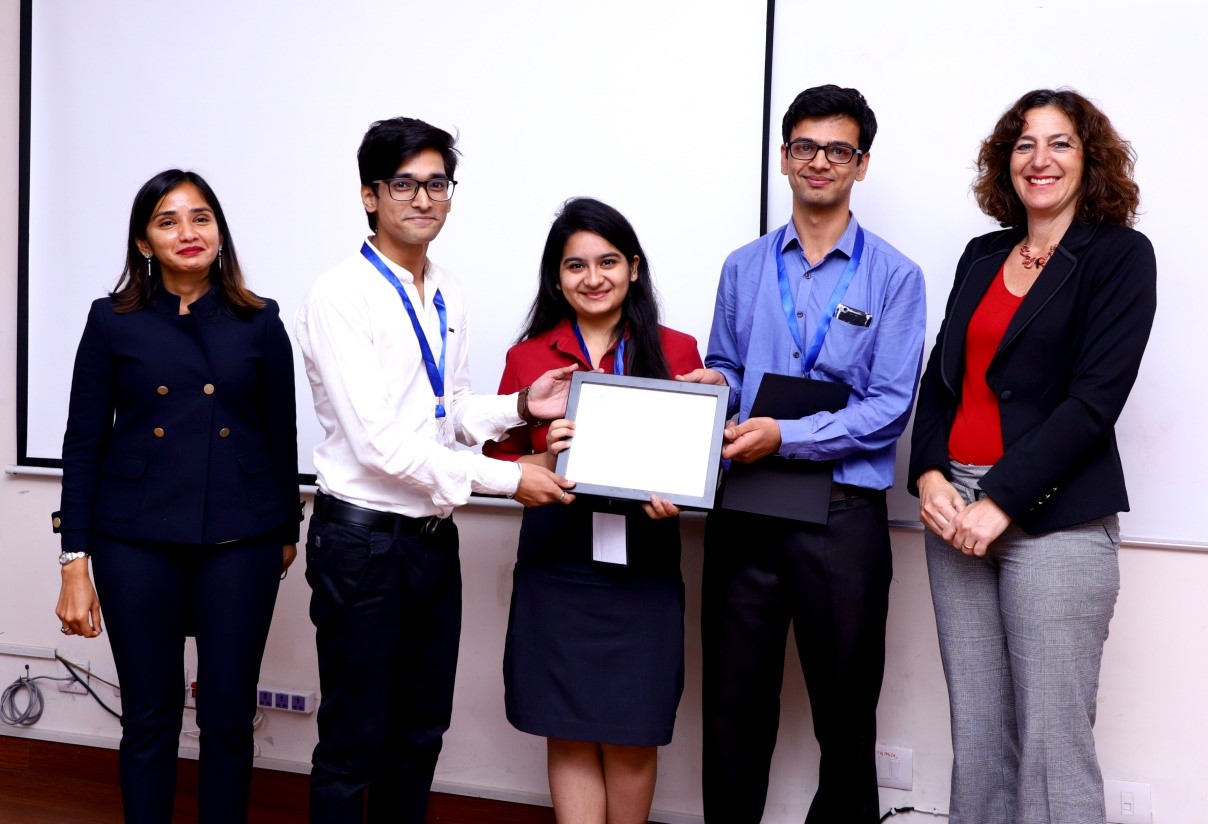
The app, Air Cognizer, uses camera images to estimate air pollution level in the vicinity. The idea has won its developer an award by the US-based Marconi Society.
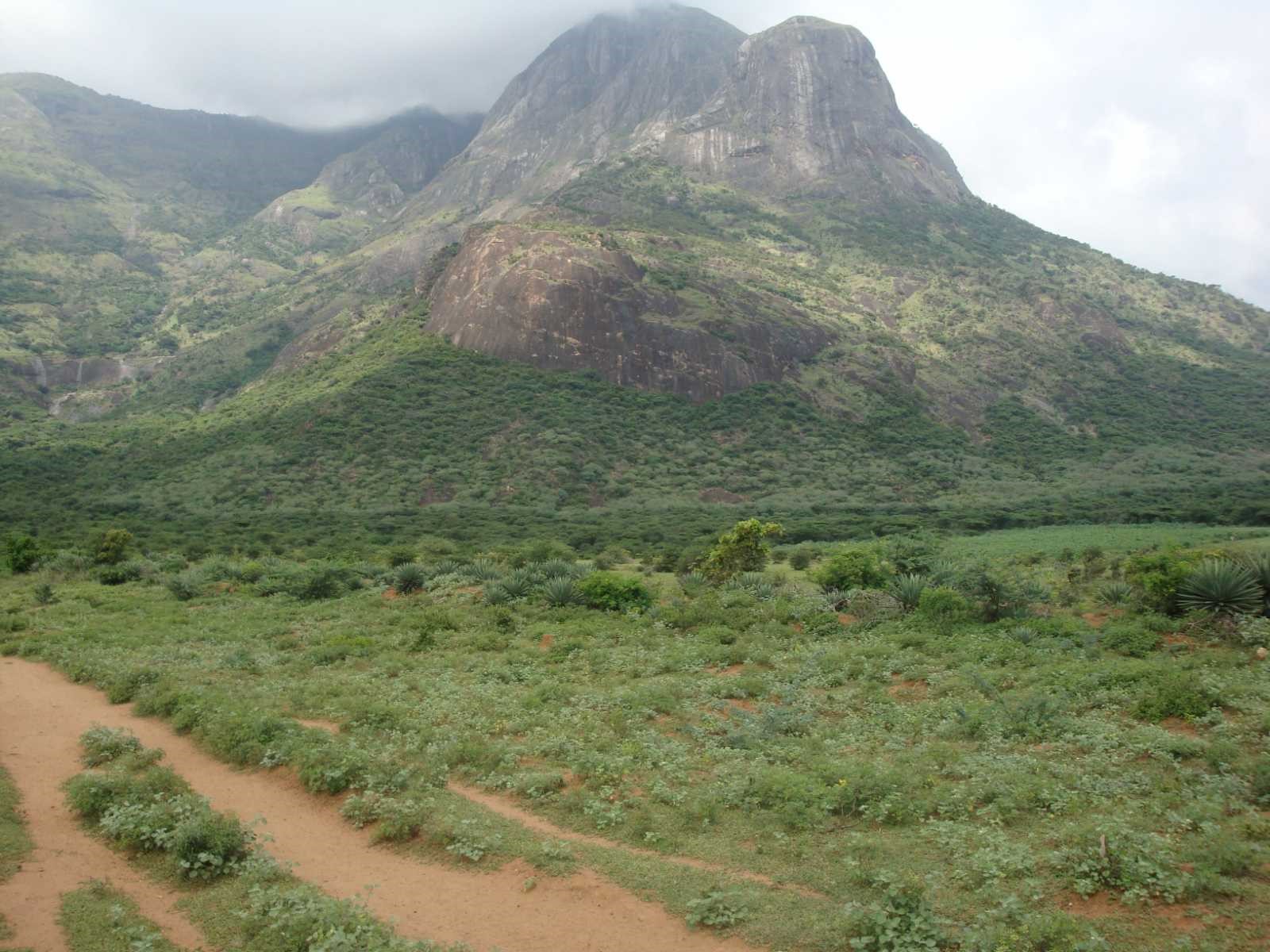
The Principal Bench of the National Green Tribunal has upheld the environmental clearance earlier granted to India based Neutrino Observatory project by the ministry of environment, forests and climate change

Scientists at the Indian Institute of Technology, Hyderabad have developed a new algorithm that promises to help transmit heart parameters even on a low-bandwidth network and make it easier for cardiologists to interpret the data.
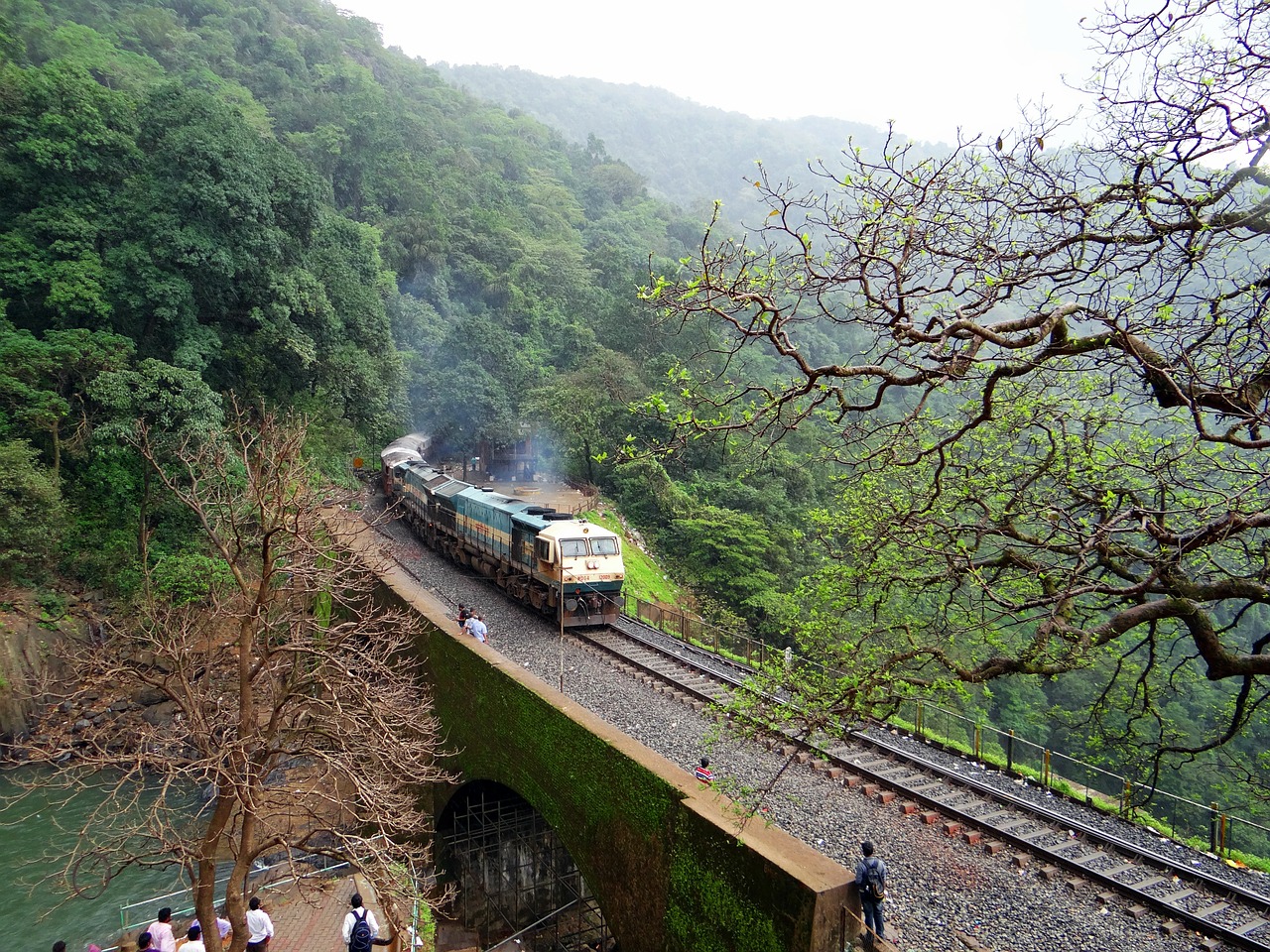
A new study done in the Western Ghats has found that wind farms in biodiversity-rich areas can have deeper ecological consequences beyond already known impacts.
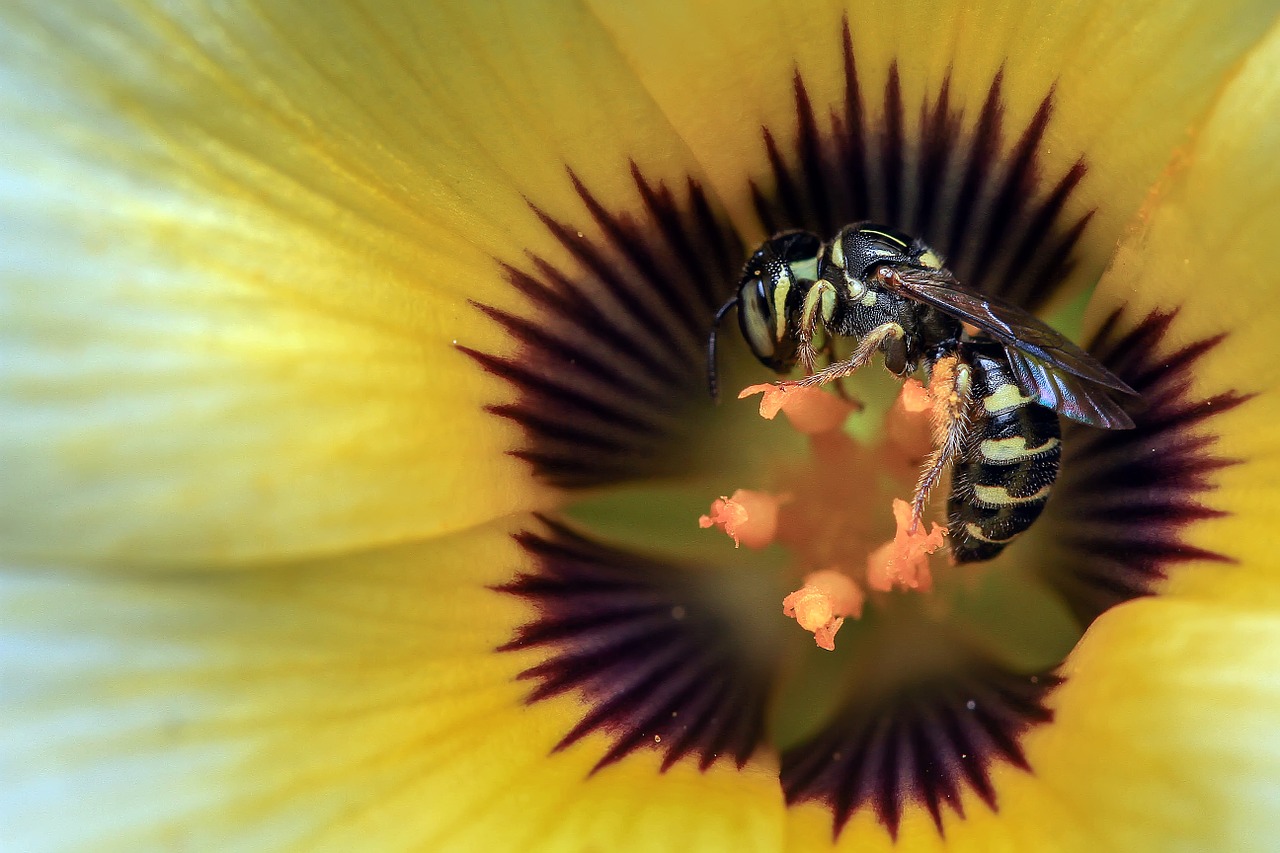
A group of scientists at Indian Institute of Technology Ropar and Ohio State University has jointly studied stingers of wasps, honeybees, and mosquitoes. They examined the structure and mechanical properties of the stings and also mechanical behavior during insertion of wasp and honeybee stingers as well as piercers in the mosquito.
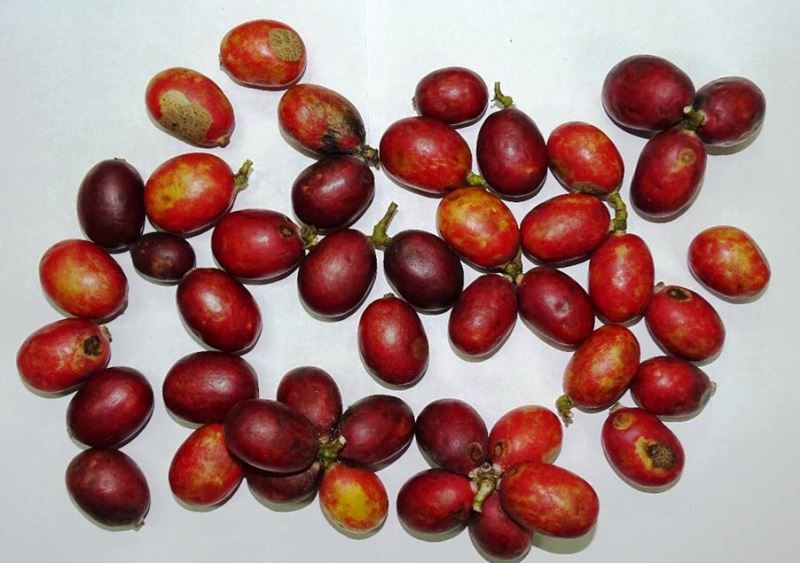
Blood fruit is a woody climber and it is very popular among tribes in the Northeastern states, Andaman and Nicobar Islands and Bangladesh. The fruit is not only tasty and rich in anti-oxidant but is also a good source of dye for the local handicraft industry. Now researchers have developed a standard nursery protocol for its propagation.
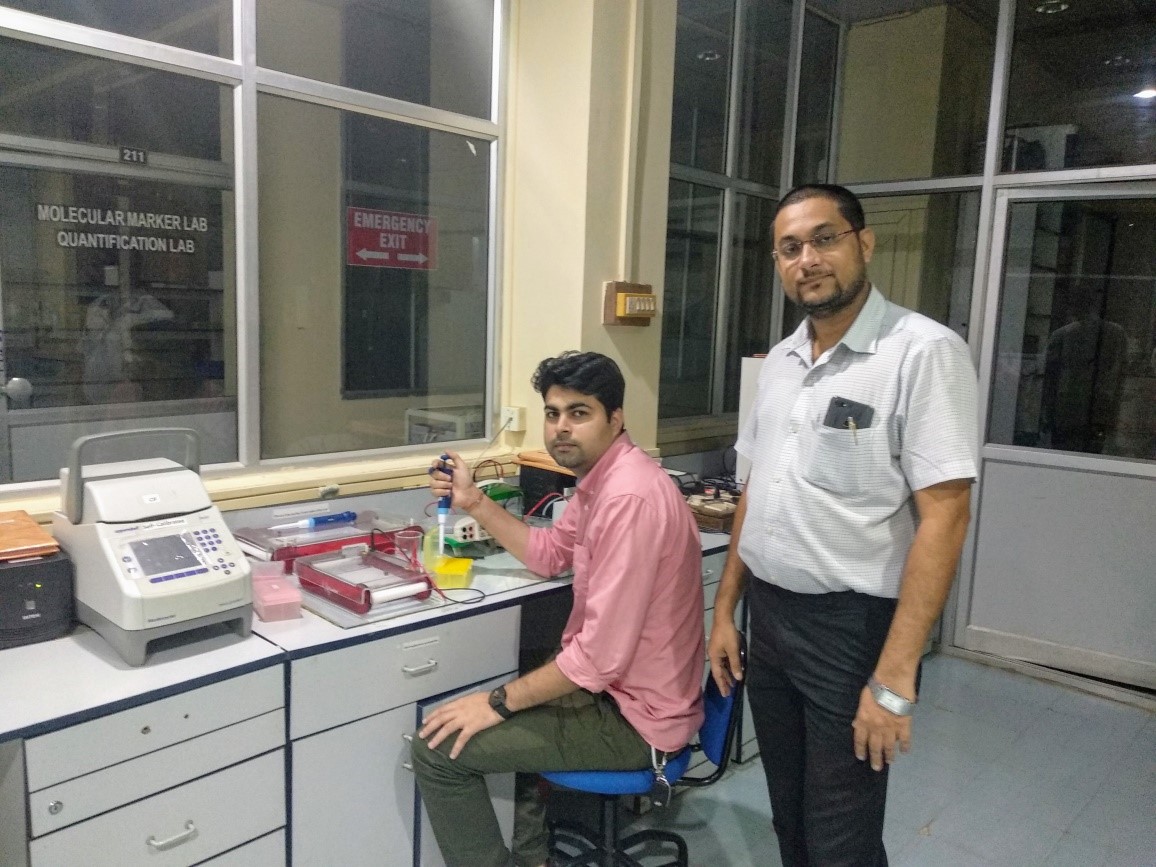
A study done by scientists at Centre for Technology Alternatives for Rural Areas of Indian Institute of Technology Bombay, and Central Island Agricultural Research Institute, ICAR, Port Blair, has evaluated the status of the beta-casein type of milk protein in Indian cattle and suggested changes in livestock breeding to promote A2 type milk.

The two-day technology summit between India and Italy concluded today with Prime Minister Narendra Modi and his Italian counterpart, Giuseppe Conte, declaring their determination to take scientific and technological cooperation between the two countries to newer heights.

Indian astrophysicists have discovered large ultraviolet lobes and jets that were hurled out from a dying star, using data from AstroSat – space observatory launched by the Indian Space Research Organisation (ISRO) in 2015
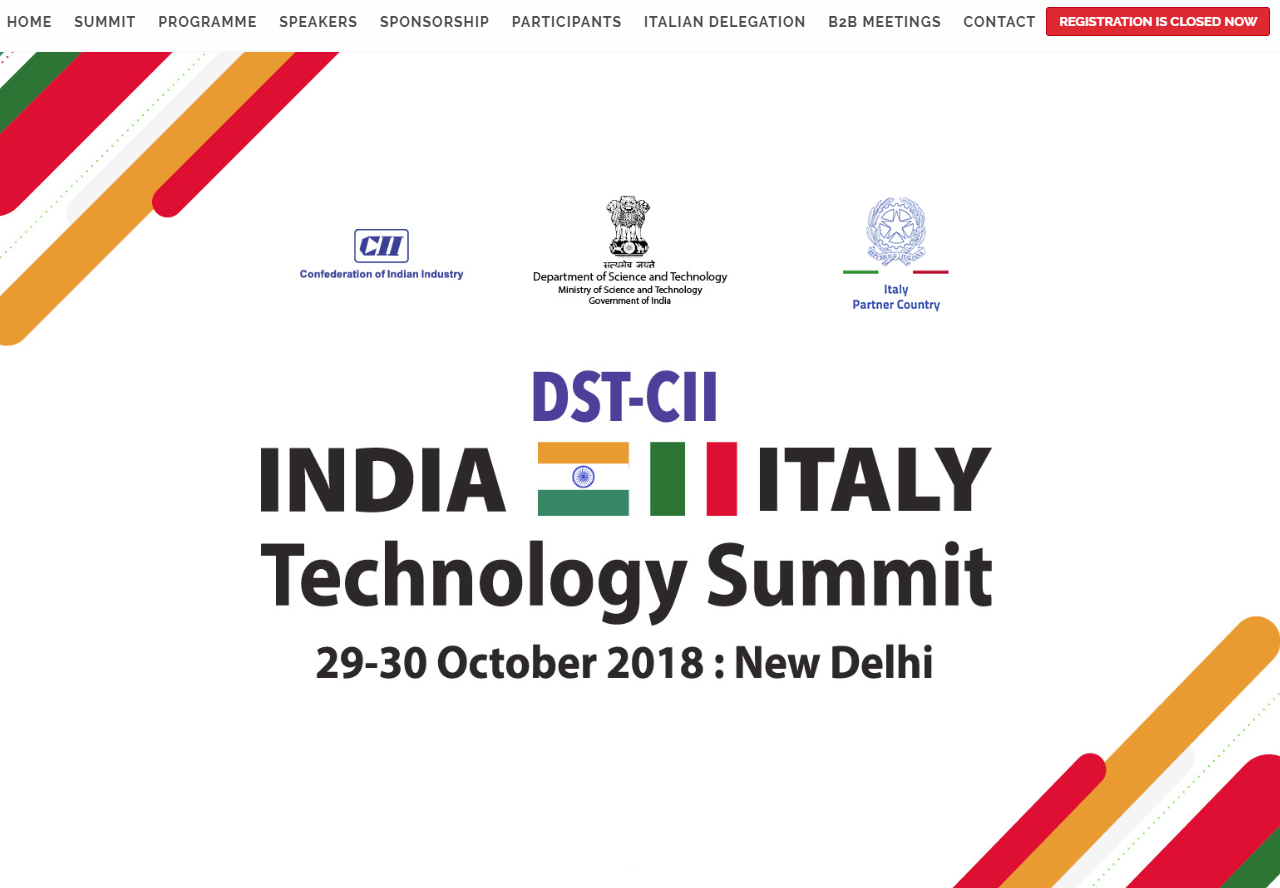
A two-day technology summit between India and Italy began here today with the Science and Technology Minister Dr. Harsh Vardhan calling for the promotion of high quality and high impact collaborative research projects across the value chain, with a focus on boosting technological entrepreneurship

Minister for Science and Technology Dr. Harsh Vardhan today announced the development of a set of new firecrackers that promise to be less polluting without compromising on the sound or light effect
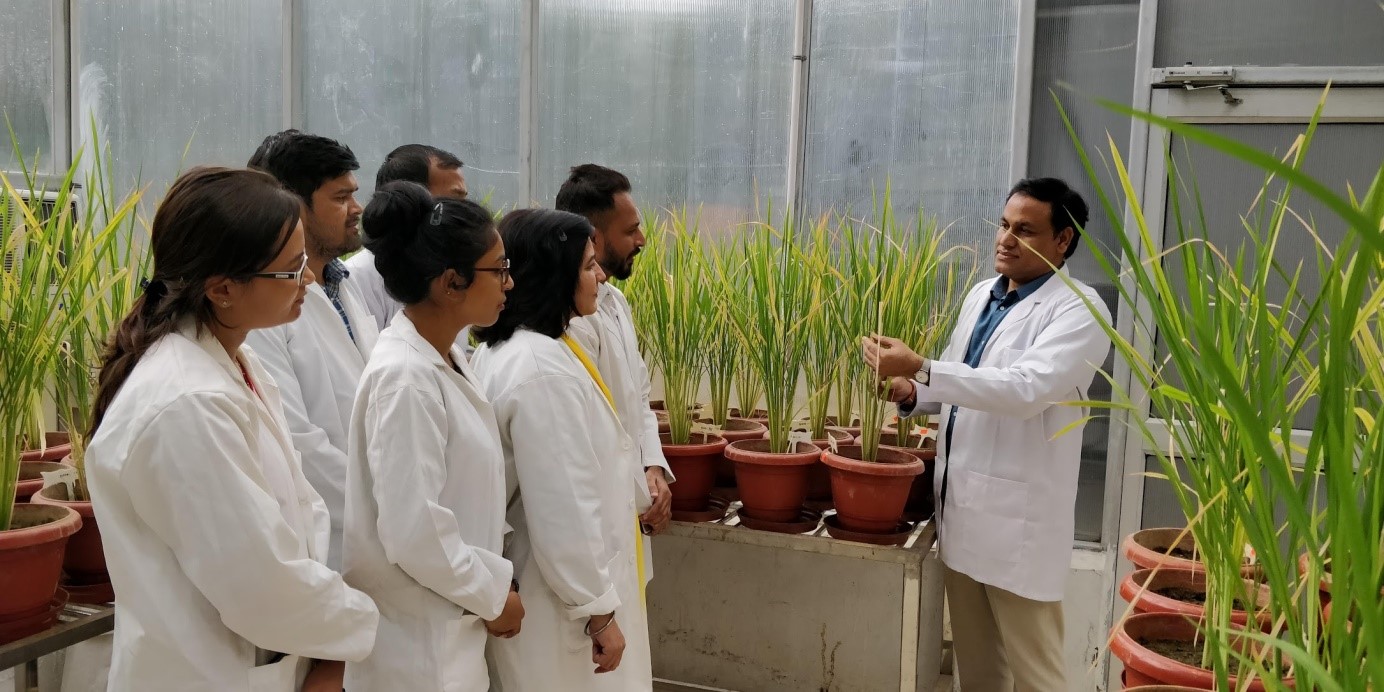
A group of researchers from Jawaharlal Nehru University, International Centre for Genetic Engineering and Biotechnology and University of Illinois have developed transgenic rice that promises to generate high yields even under conditions of high salinity, high temperature, and drought
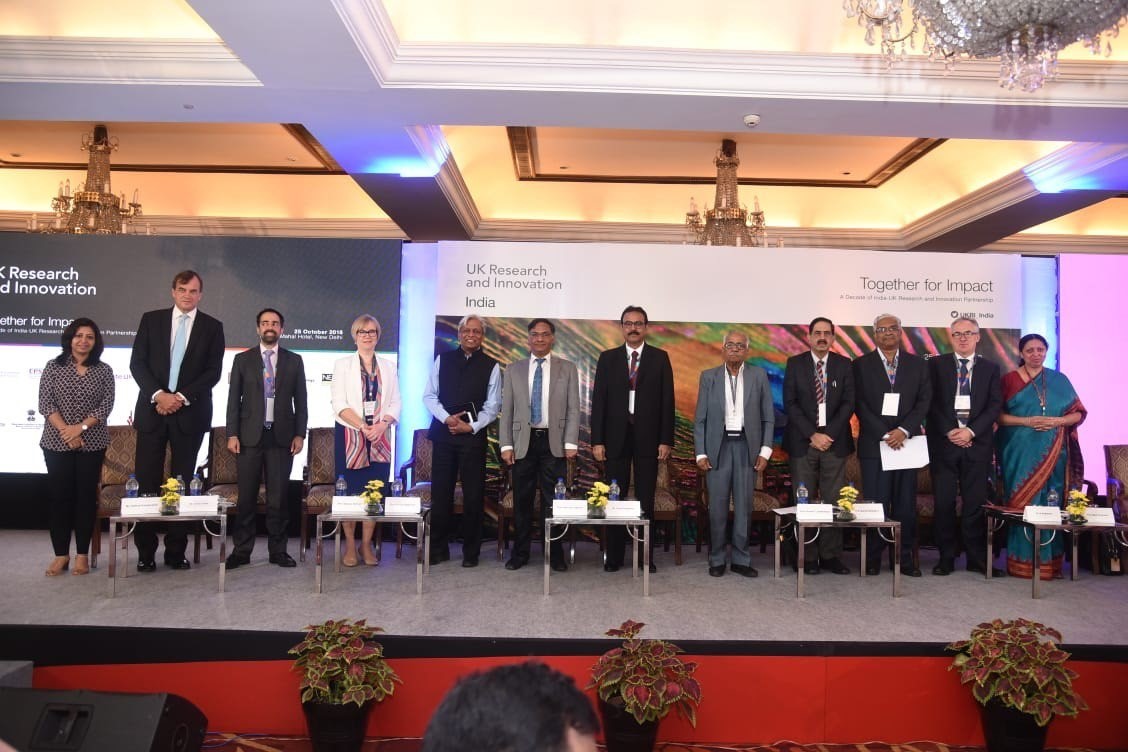
Engagement between India and the United Kingdom in the area of research and development is set to get a major boost with top officials of the two countries expressing their commitment to give the collaboration a new thrust
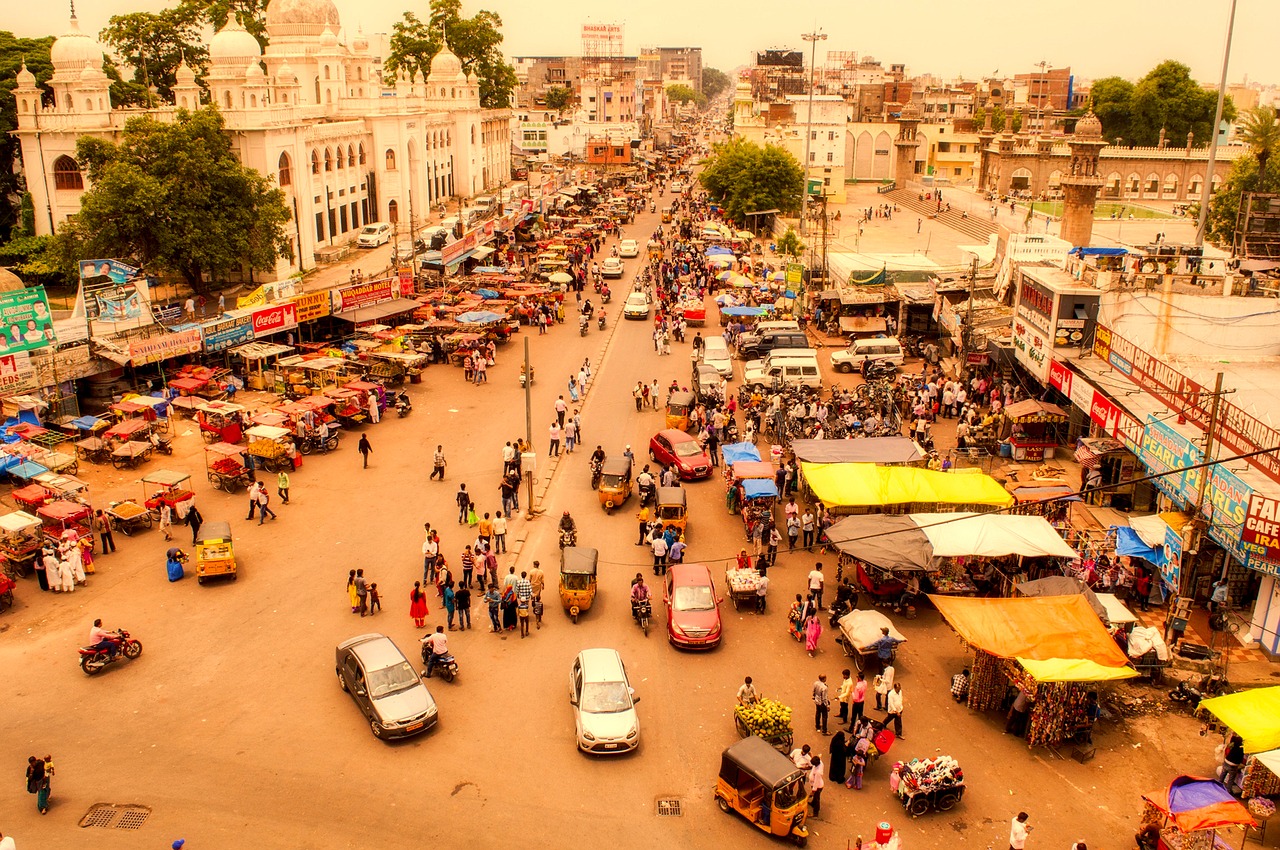
At any given point, the national capital has about 5.57 lakh tons of municipal solid waste illegally dumped on the roadside or in open plots. This is 62 times higher than the daily municipal solid waste generated in the city, according to a new study.

Testing of blood parameters like glucose and hemoglobin levels using non-invasive devices based on light sensors is becoming popular. A new study by Indian researchers, however, has found that accuracy of such techniques depends on skin factors like roughness

Researchers at Dehradun-based Indian Institute of Remote Sensing and Gujarat University have developed software that can help scientists classify images of craters on the moon and planetary surfaces
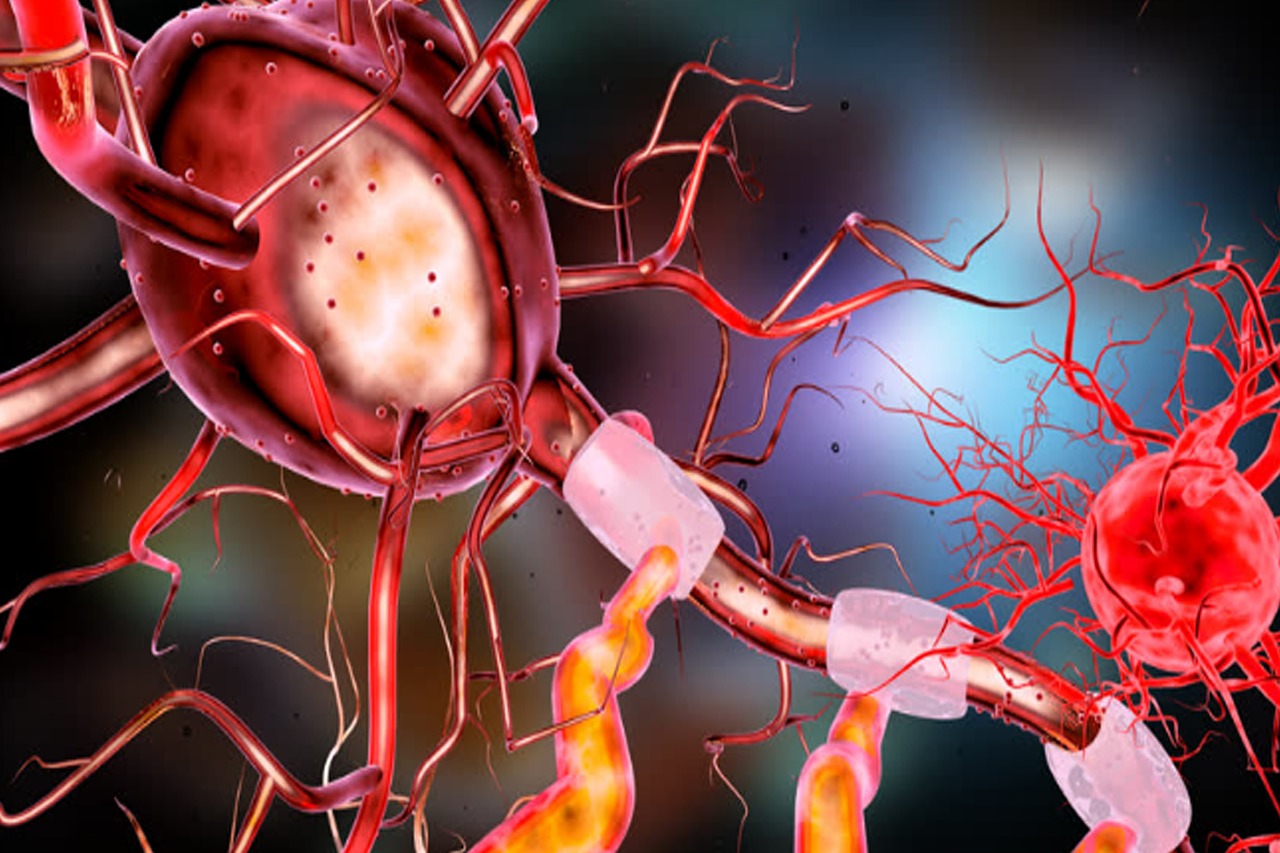
A novel technology for profiling protein turnover and degradation offers new insight into diagnosis and understanding the molecular basis of autoimmunity, cancer, neurodegeneration, and other disorders
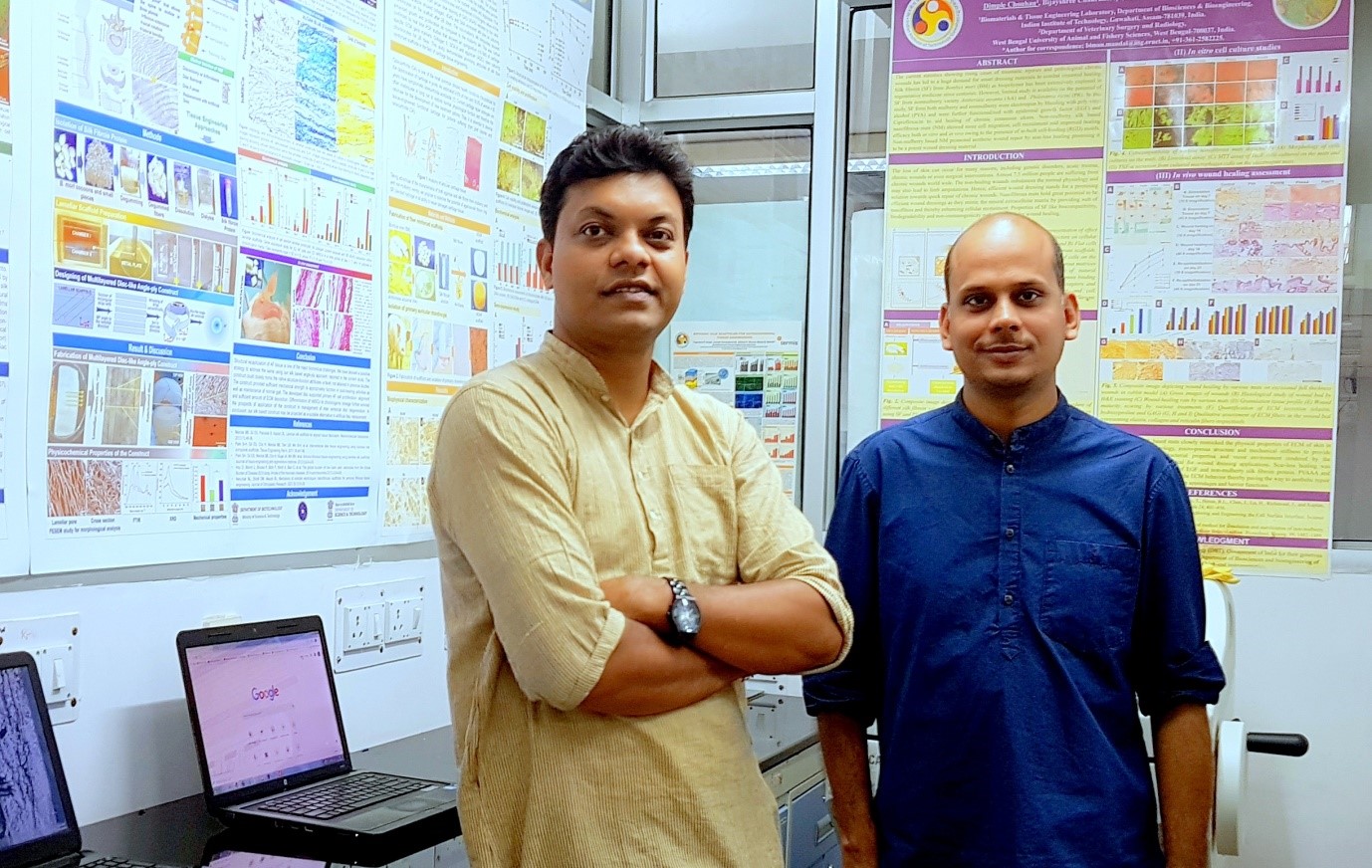
Researchers at the Indian Institute of Technology, Guwahati have developed an injectable gel using silk proteins to deliver insulin-producing cells needed to address type1 diabetes
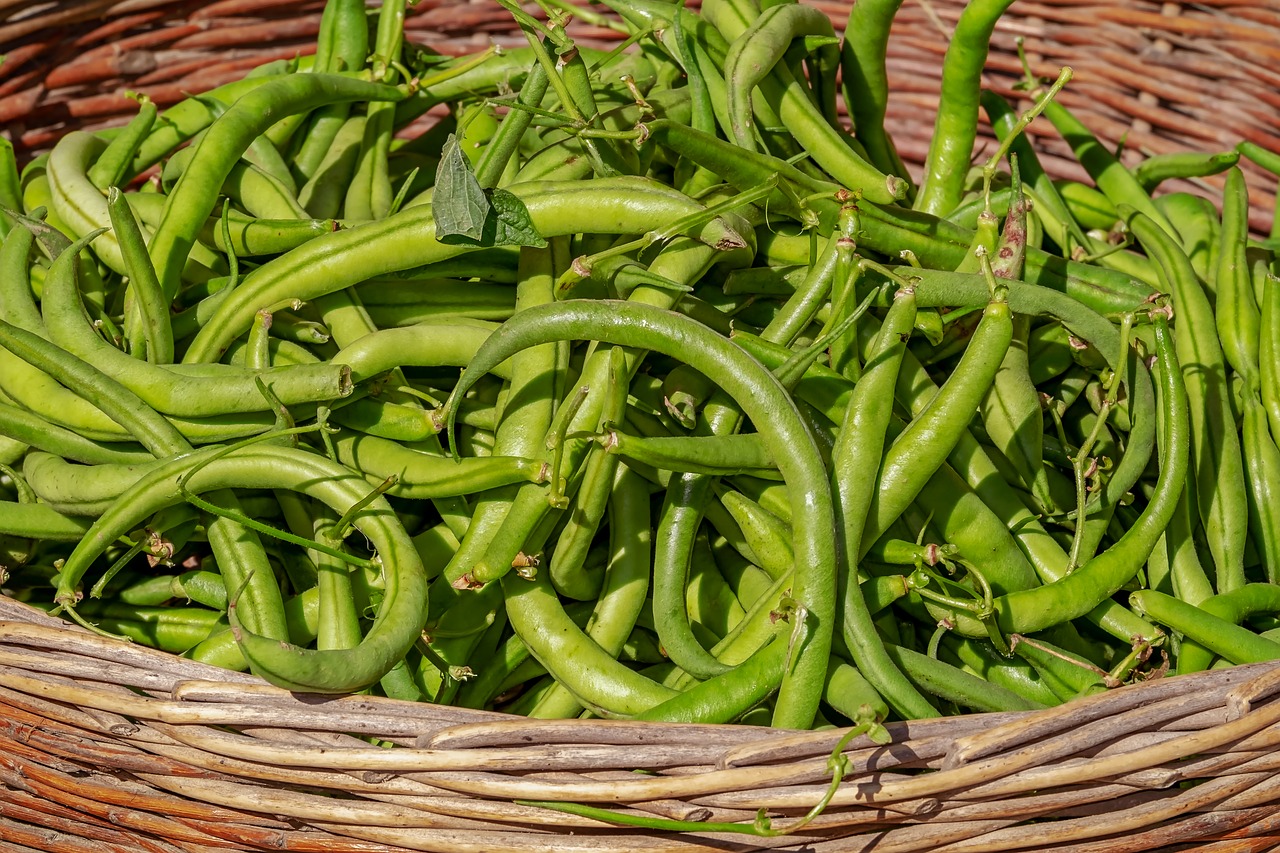
Researchers at the University of Agricultural Sciences, Bengaluru, have found that it is the day temperature – rather than daylight – that triggers the onset of flowering in sem beans. The information may help farmers in planting right varieties to optimize yields in the future.
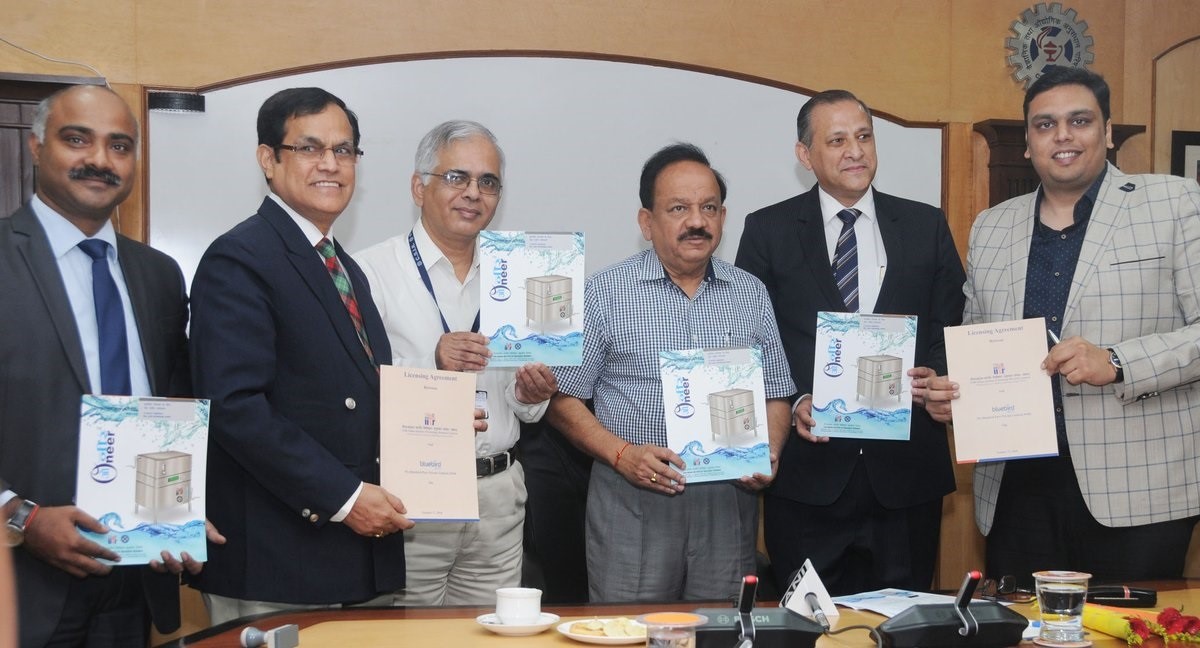
Scientists at the Council of Scientific and Industrial Research’s Lucknow-based Indian Institute of Toxicology Research have developed a technology for disinfecting water that promises to provide safe and clean drinking water at a cost of just two paise per liter

Indian farmers usually do not wear any protective gear while spraying chemicals in fields. This exposes them to harmful toxins contained in pesticides, causing severe health impacts and even death in extreme cases. Indian scientists have now developed a protective gel to address this problem.
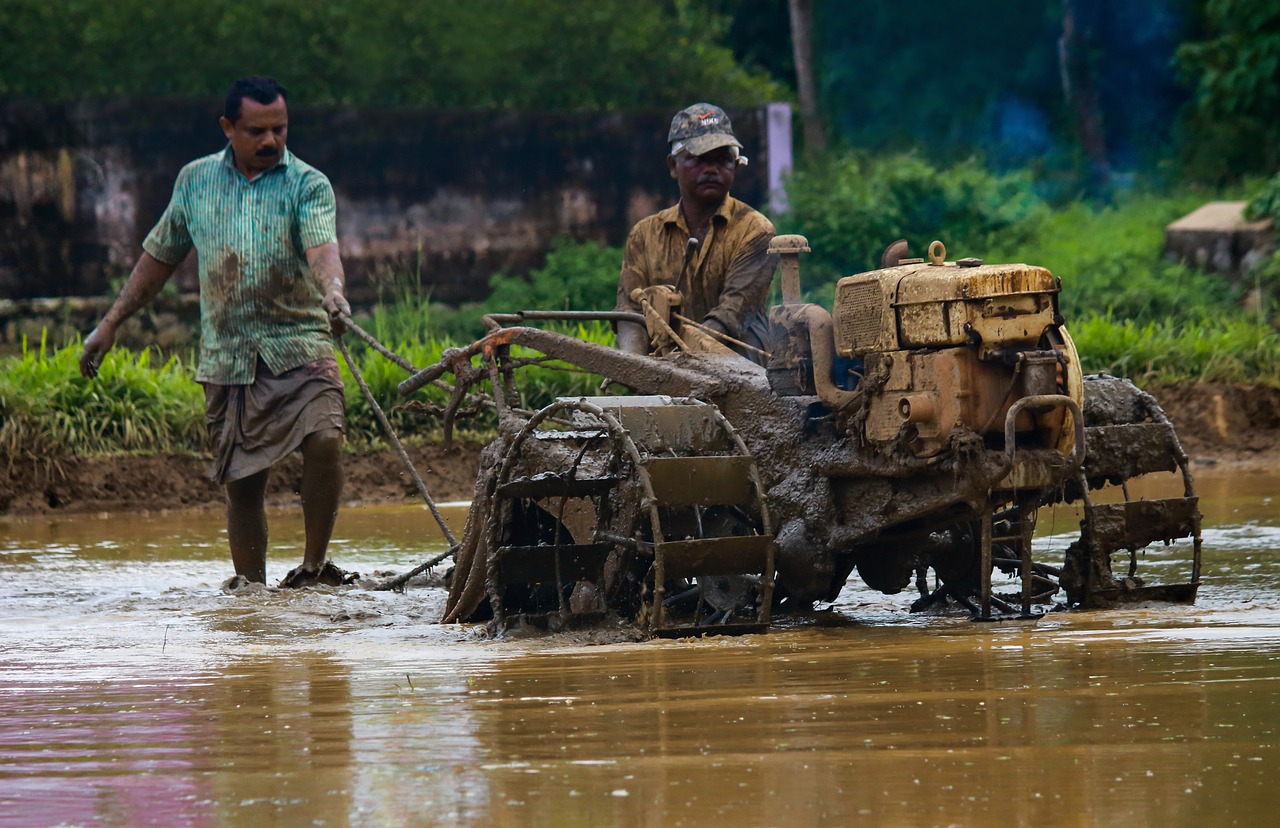
The Department of Science and Technology has established a center of excellence on climate change research for plant protection at the Hyderabad-based International Crop Research Institute for the Semi-Arid Tropics. Its objective will be to help make agriculture more resilient to vagaries of climate change.
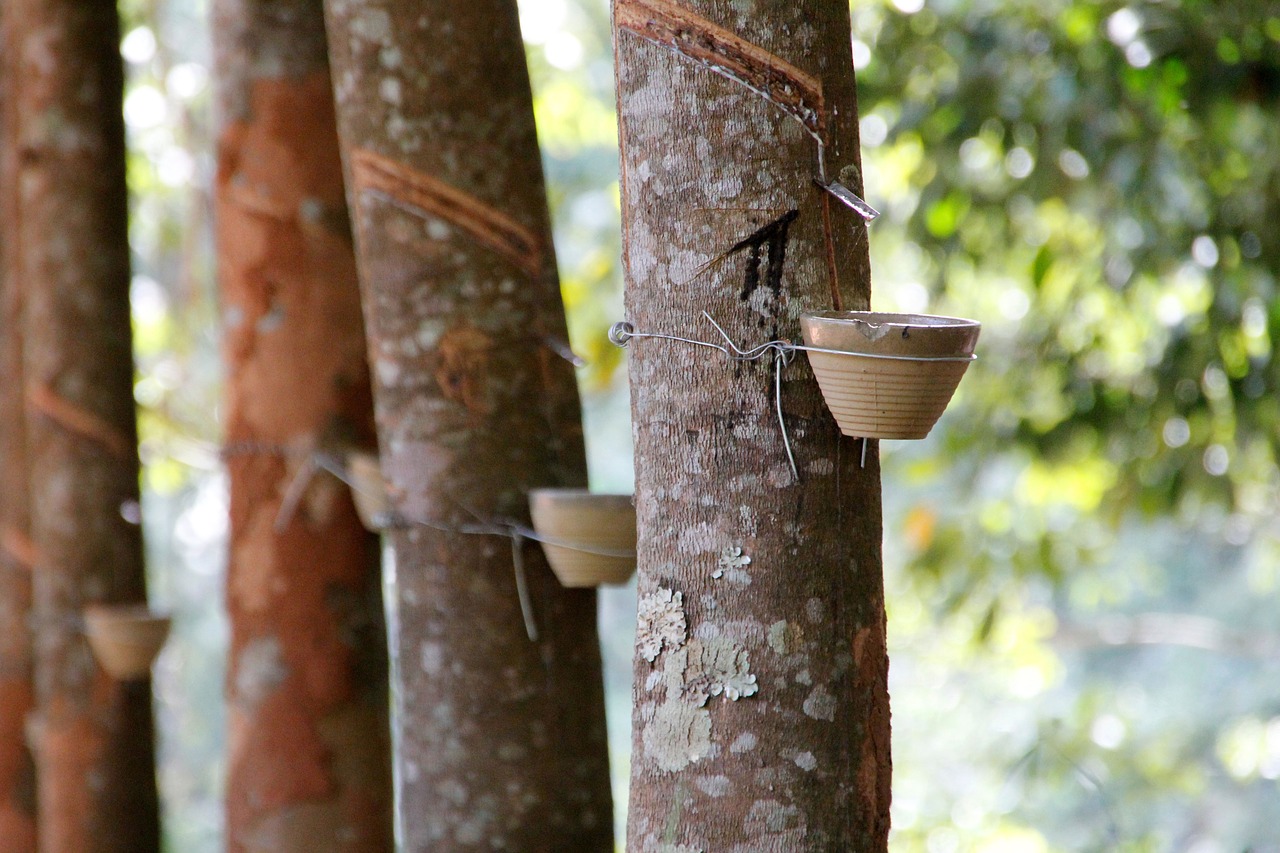
Fiber length was negatively correlated to rubber tree growth. Hence, it may not be possible to simultaneously attain vigorous growth and longer fibers, researchers have reported in the study published in journal Tree Genetics & Genomes

Researchers from the All India Institute of Medical Sciences and Indian Institute of Technology Delhi have developed a biosensor for detecting glucose in saliva samples for diabetes detection
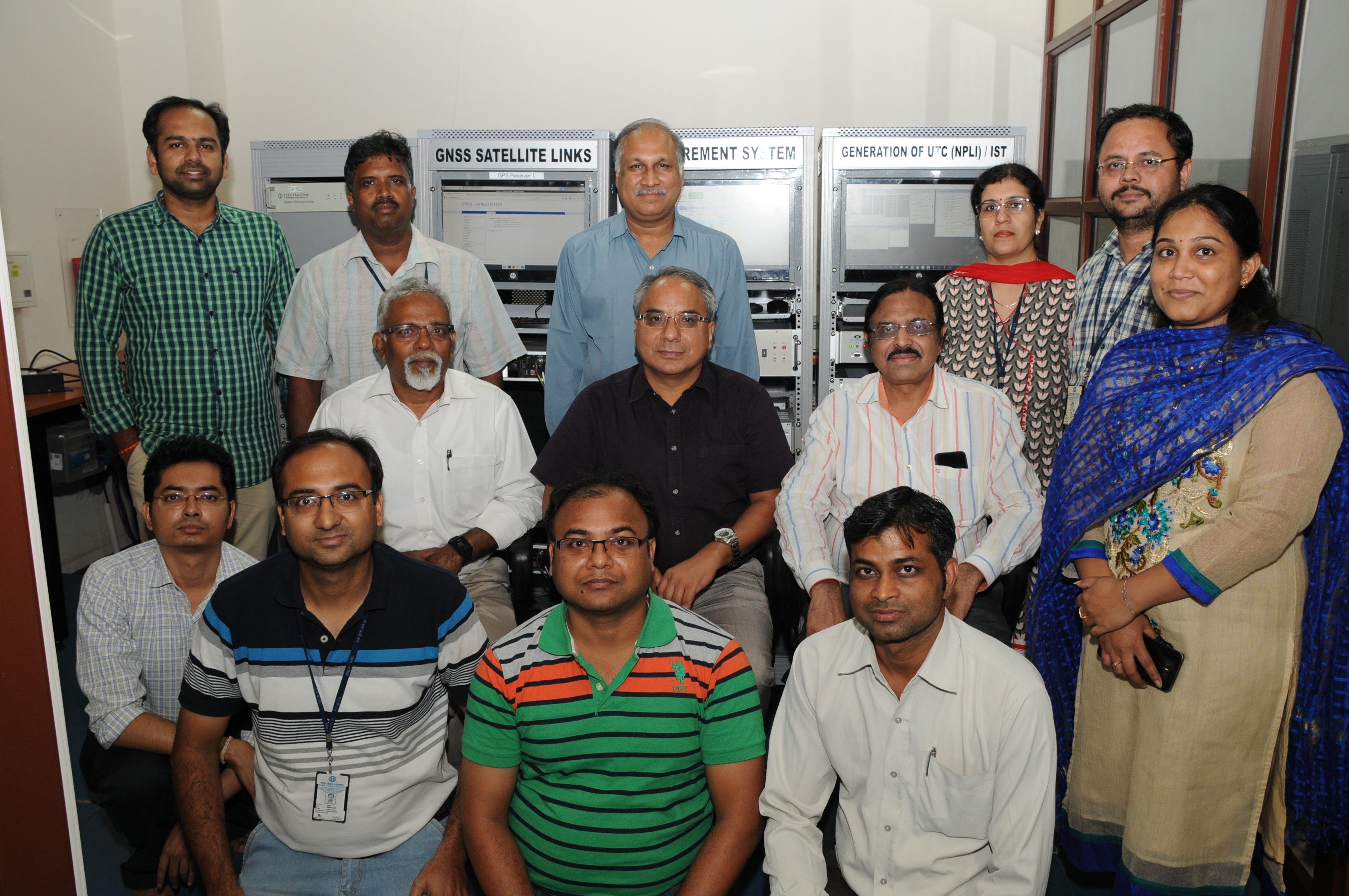
A new analysis by the National Physical Laboratory - India’s official timekeeper - has supported long-standing demand for a separate time zone for eastern states - Assam, Meghalaya, Nagaland, Arunachal Pradesh, Manipur, Mizoram, Tripura – and Andaman and the Nicobar Islands

A team of researchers has developed an ultrasonic sensor-based automatic spraying system that promises to cut down on the use of pesticides in orchards
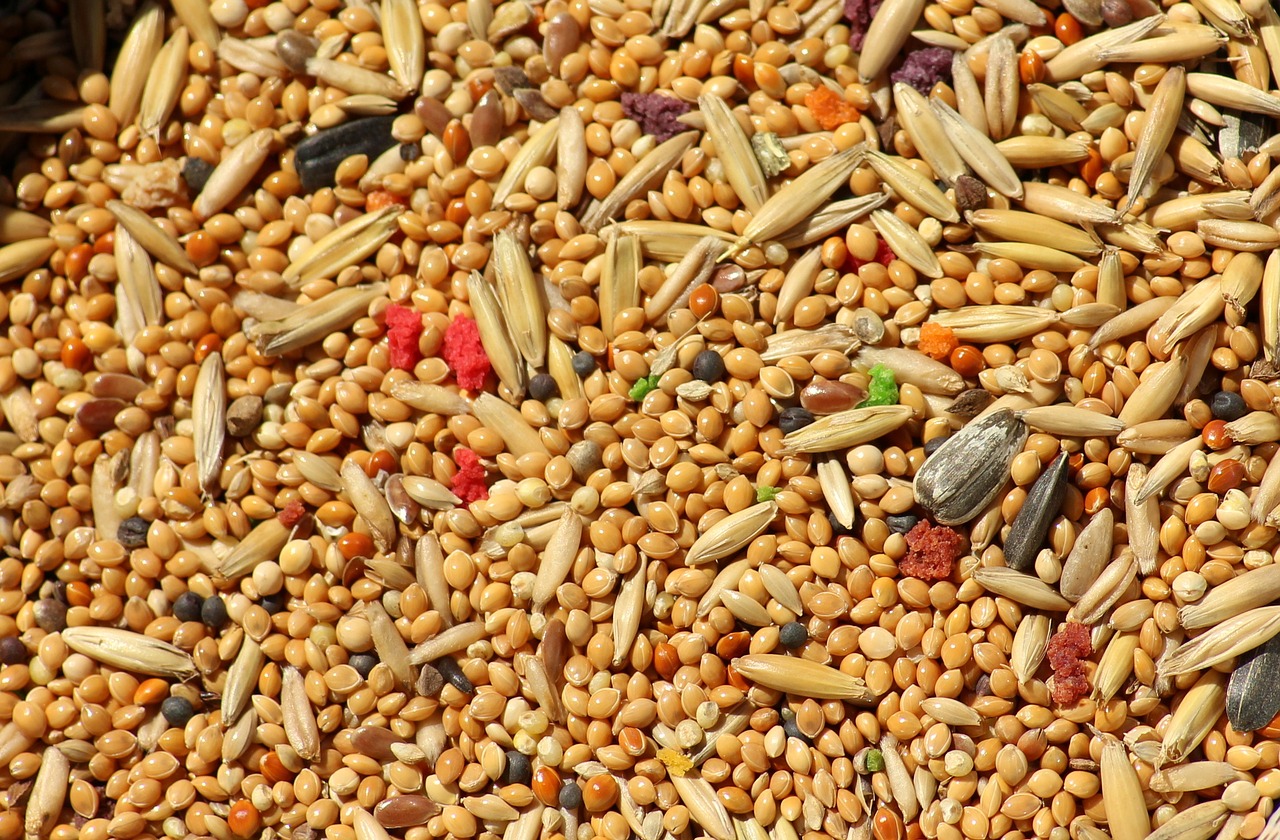
Pasta made from pearl millet or bajra may be a healthier alternative to wheat pasta, suggests a new study. Results of the study, published in journal Current Science, also show that pasta made from millet and Wheat-millet combination was healthier than pasta made only from wheat.
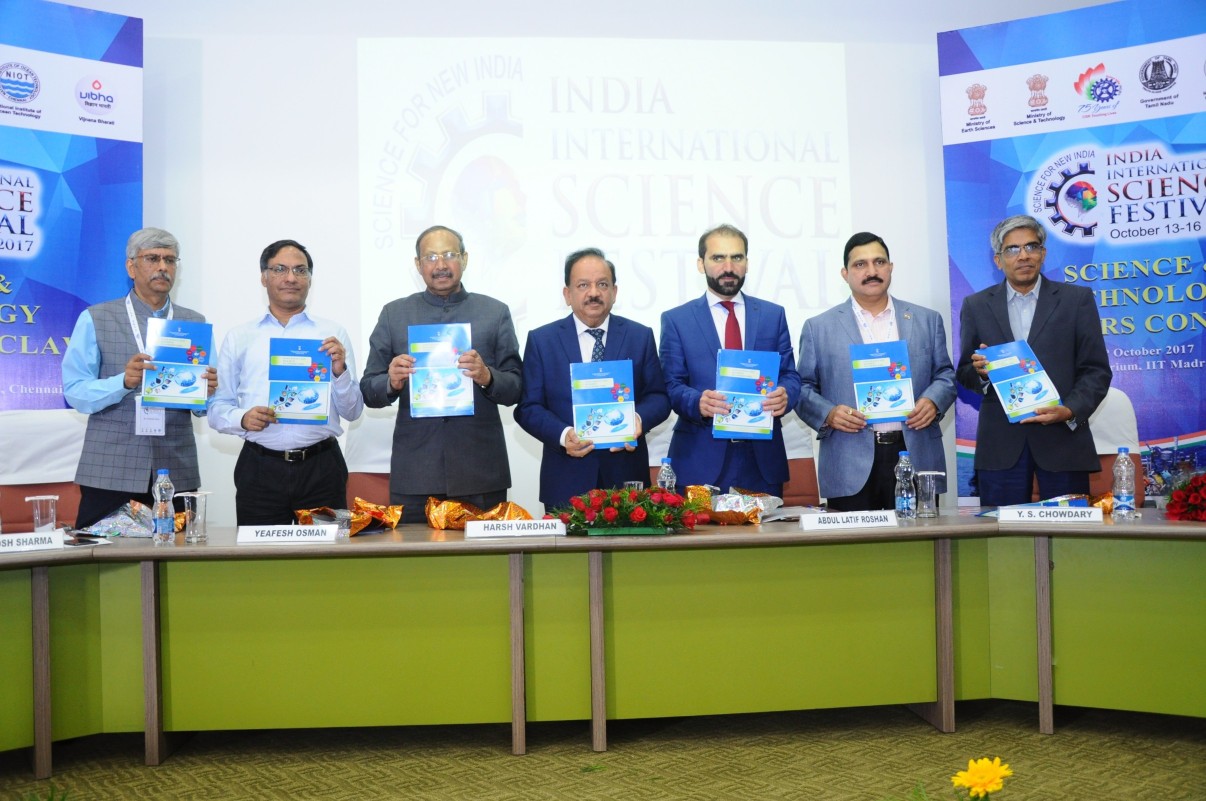
The four-day India International Science Festival came to a close here this evening with Science and Technology Minister, Dr. Harsh Vardhan, announcing that the Central Government would soon identify a few States and help them organize similar state-level science festivals to help create a social movement for science.

The latest report of the UN’s Intergovernmental Panel on Climate Change, formally released on Monday, warns that global warming is occurring faster than anticipated and that it can have devastating impacts if steps are not taken to cut down emissions
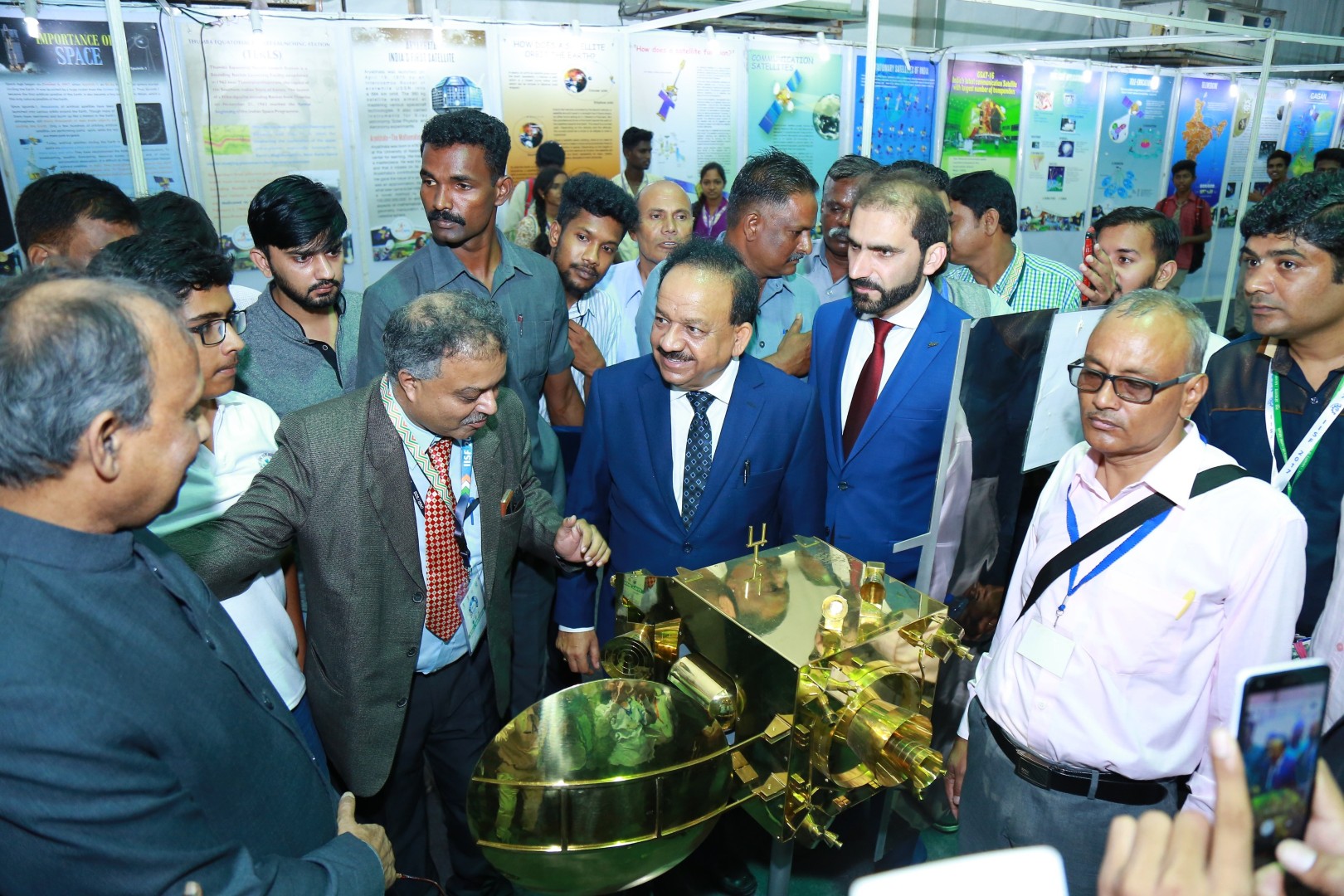
A cost-effective, cloud-enabled device for diabetes care, an obstacle avoiding robot, a weed that can be used to make useful items and many more. These are some of the ideas and products on display at the Science and Technology for Harnessing Innovations exhibition which concludes at the fourth India International Science Festival today
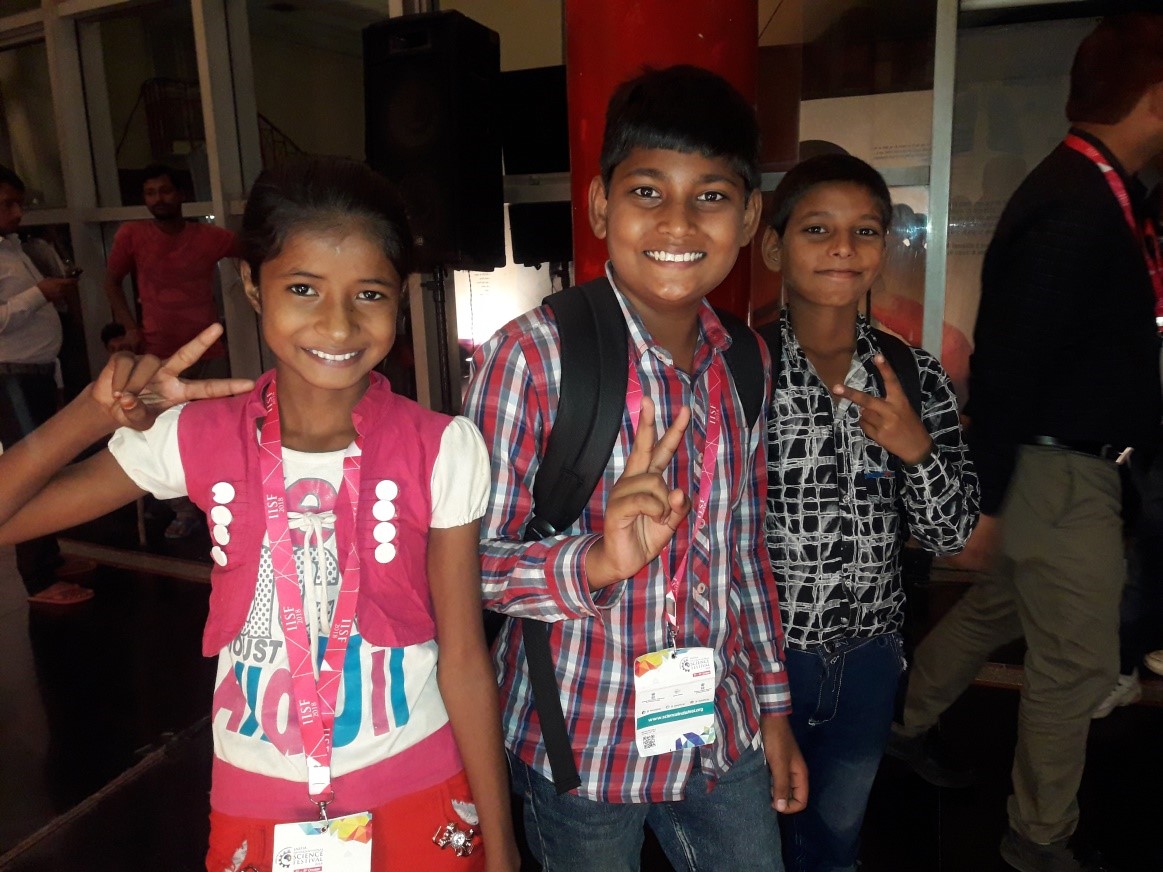
The International Science Literature and Film Festival held here as part of the India International Science Festival attracted participants including children from both from metro cities and remote villages. The common goal was to learn how to communicate science through films

A team of researchers at Icahn School of Medicine at Mount Sinai in the U.S. led by Mone Zaidi, a scientist of Indian origin, has found that a group of drugs called bisphosphonates, which are used for the treatment of osteoporosis, could also be used for treating some lung, breast and colon cancers.
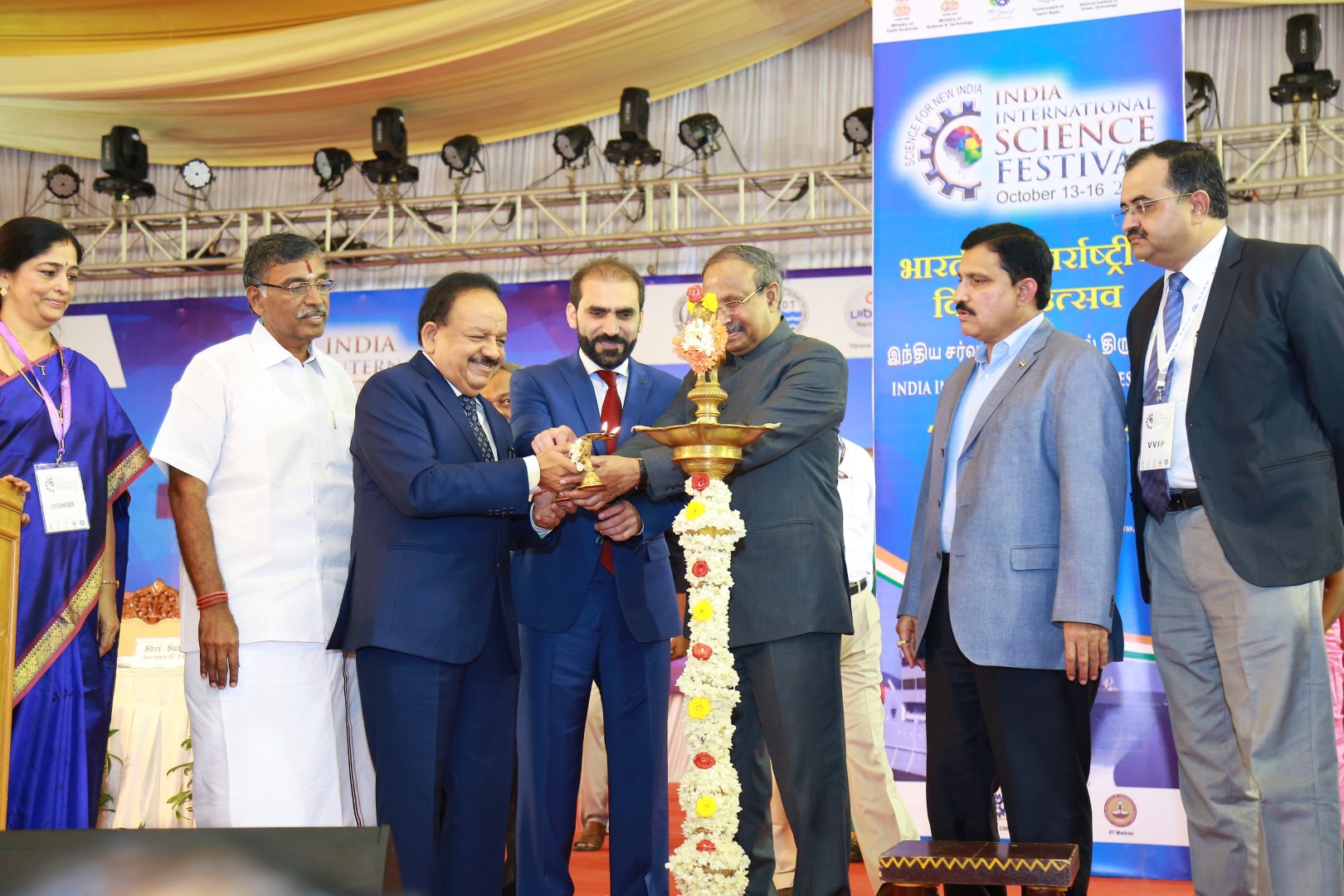
State councils need to be more active in terms of making science accessible to the people,” said Dr. Harsh Vardhan, Minister of Science and Technology while speaking at the S&T ministers’ conclave at the India International Science Festival 2018.
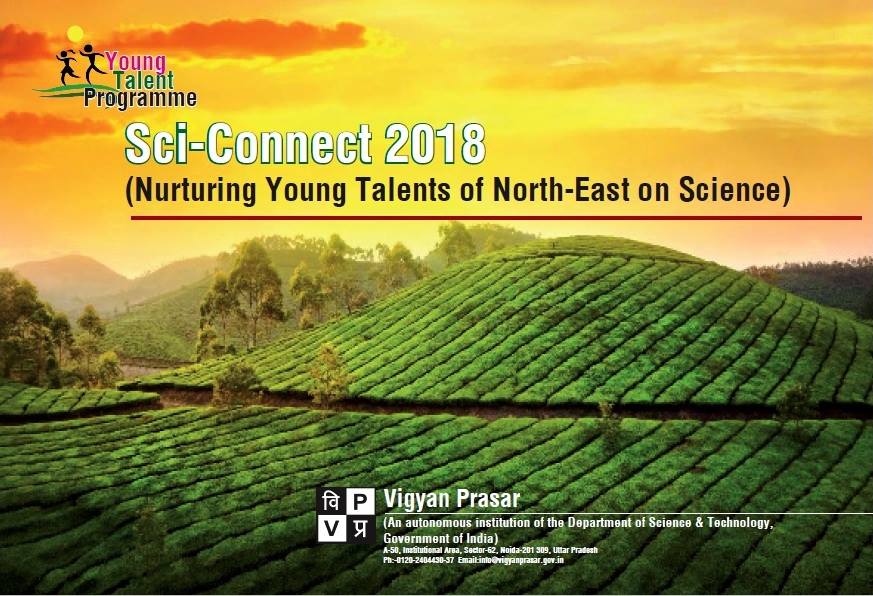
Sarupa, a resident of Janki Bazar in remote Hailakandi district of Assam, was happy as her team got first place in Sci-Connect 2018, a science competition for children in the north-eastern states.
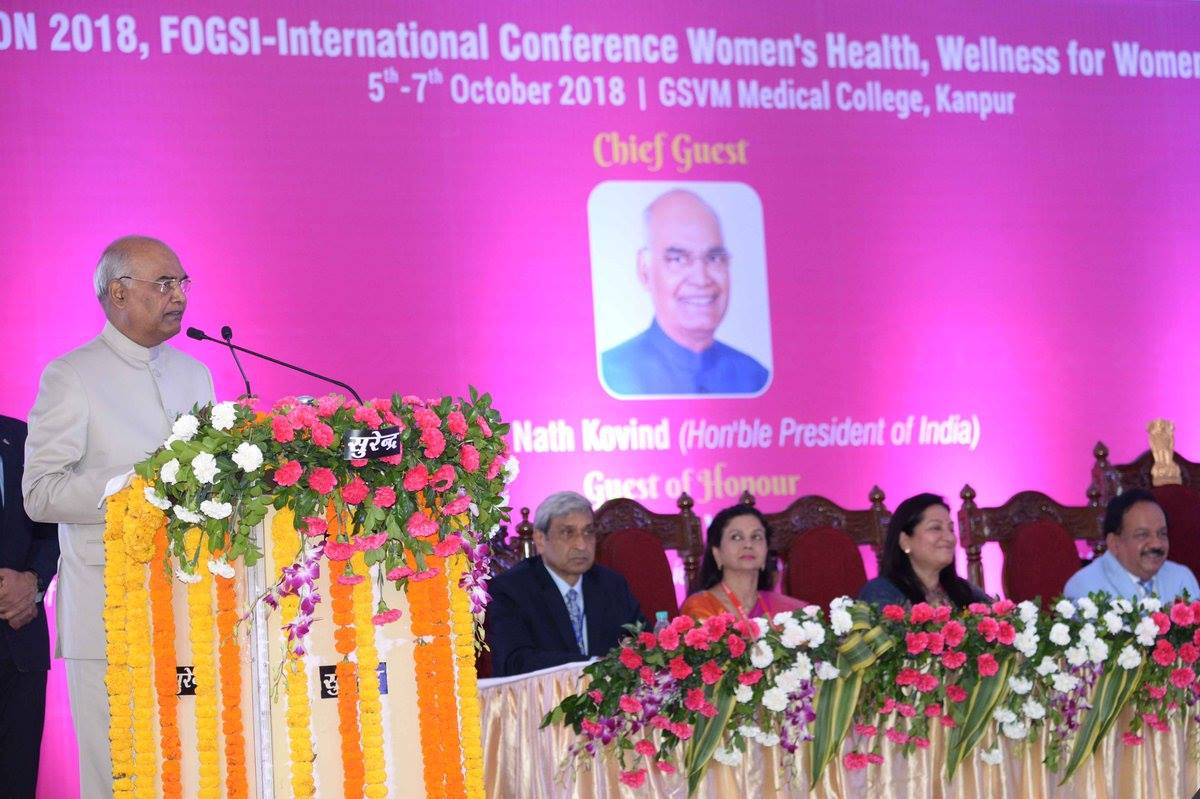
President Ramnath Kovind on Saturday ruled that there was not an adequate representation of women in higher science and called for speedy efforts to overcome the problem.
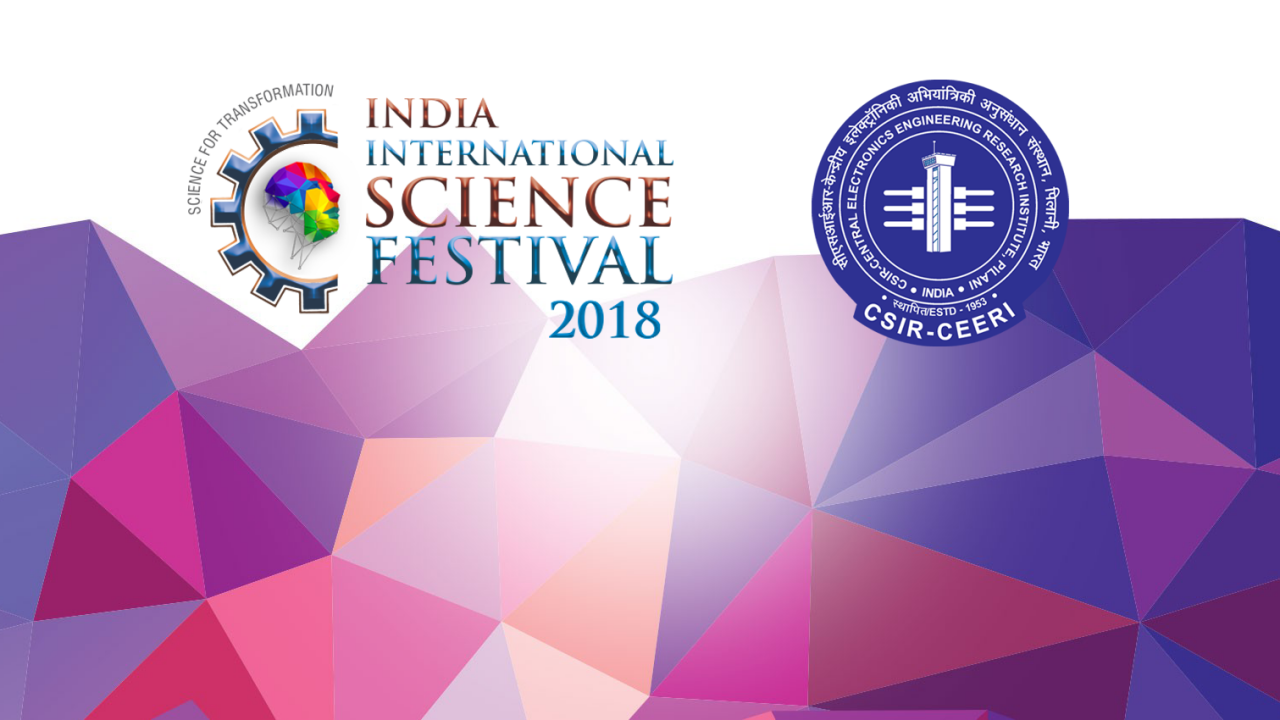
The second day of the India International Science Festival (IISF) evoked a huge response from students, young researchers, teachers, and the scientific community. Speakers in different sessions discussed ways of connecting science with society
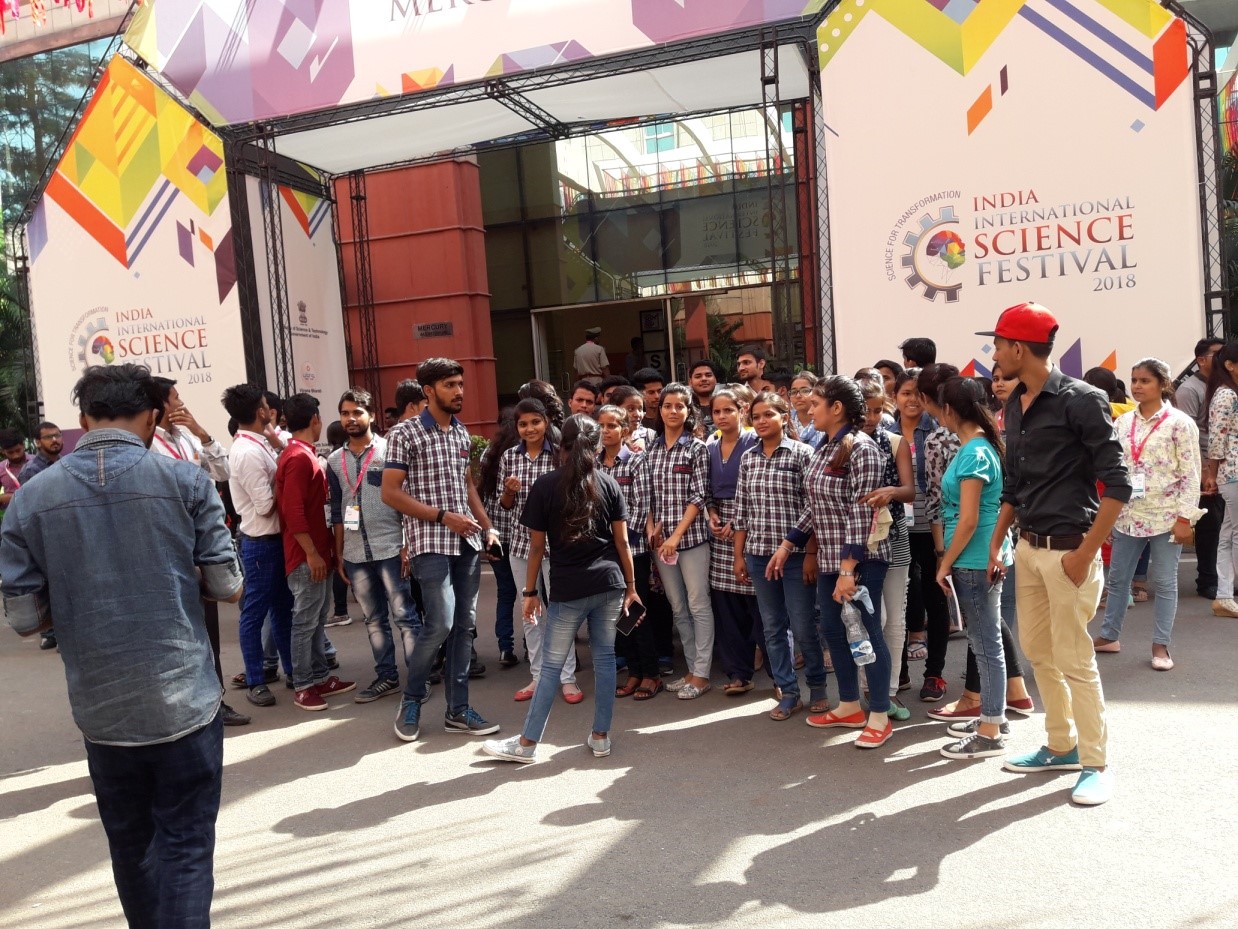
The fourth edition of the India International Science Festival (IISF) began here today. A number of conferences and exhibitions showcasing the work of young scientists were held
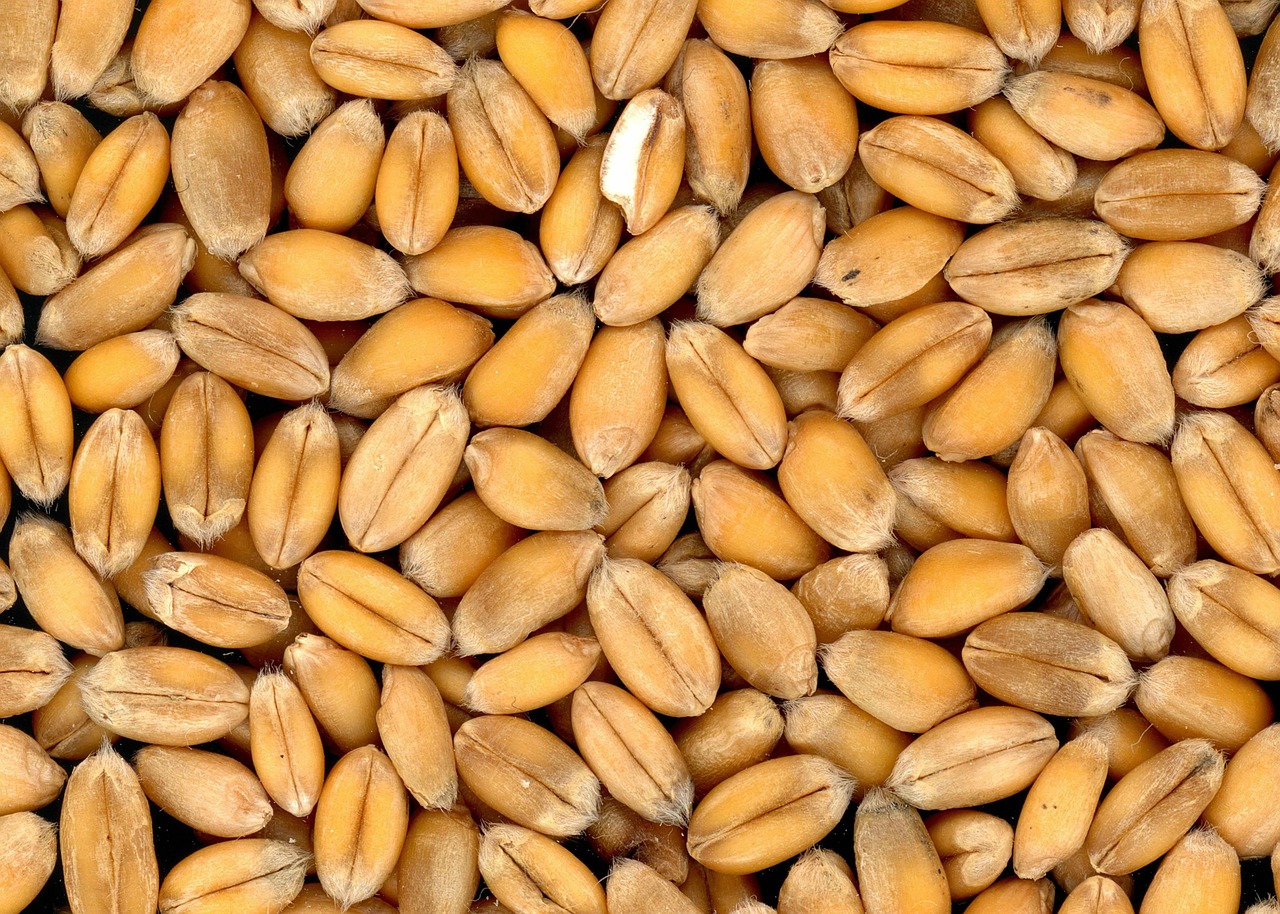
Scientists have identified regions in the wheat genome responsible for the concentration of zinc in wheat grain. They have also identified candidate genes involved in zinc concentration in wheat
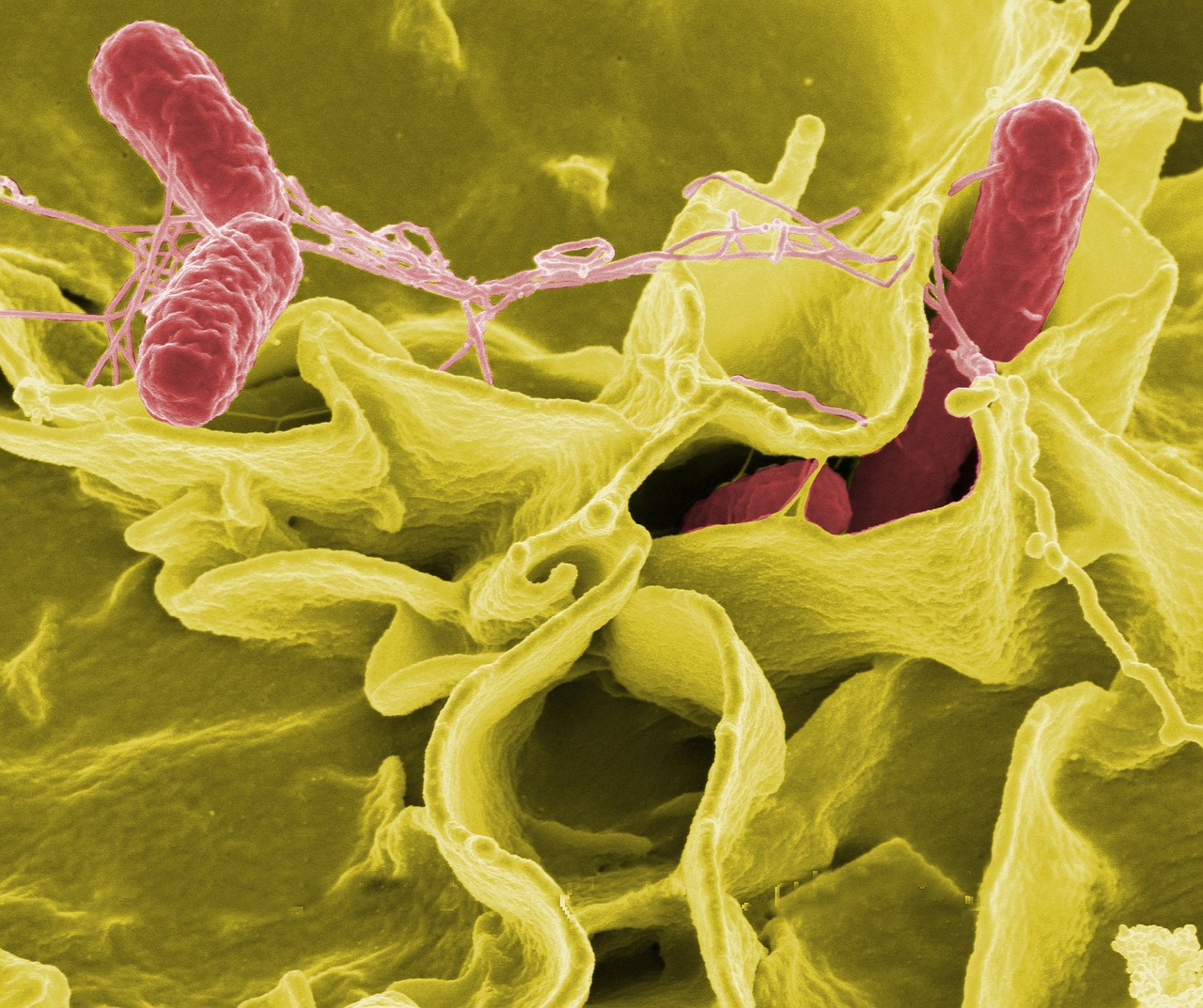
Exposure to cadmium is making typhoid-causing bacteria, Salmonella, stronger and difficult-to-treat with conventional antibiotics, a new study has suggested

Excessive use of nitrogen, phosphate and potassium-based fertilizers is causing environmental contamination and abuse of fertilizer subsidies. Now Indian scientists have identified rice cultivars that are efficient in nitrogen use
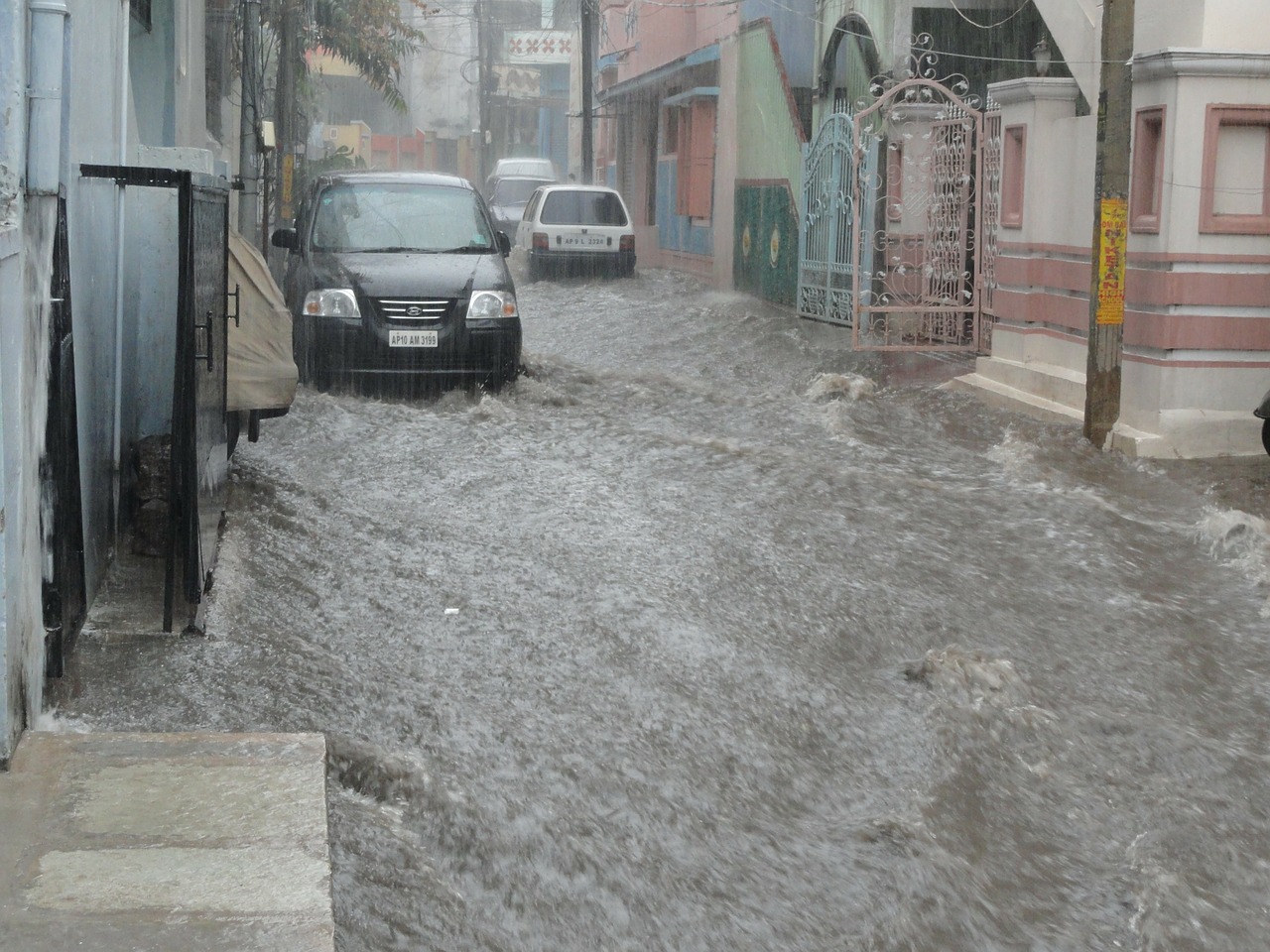
A systematic evaluation of the perception of forecast accuracy among engineers and managers who make decisions and uncertainty on dam operations as well as water resources is needed to bridge the gap from forecasts to lifesaving decisions
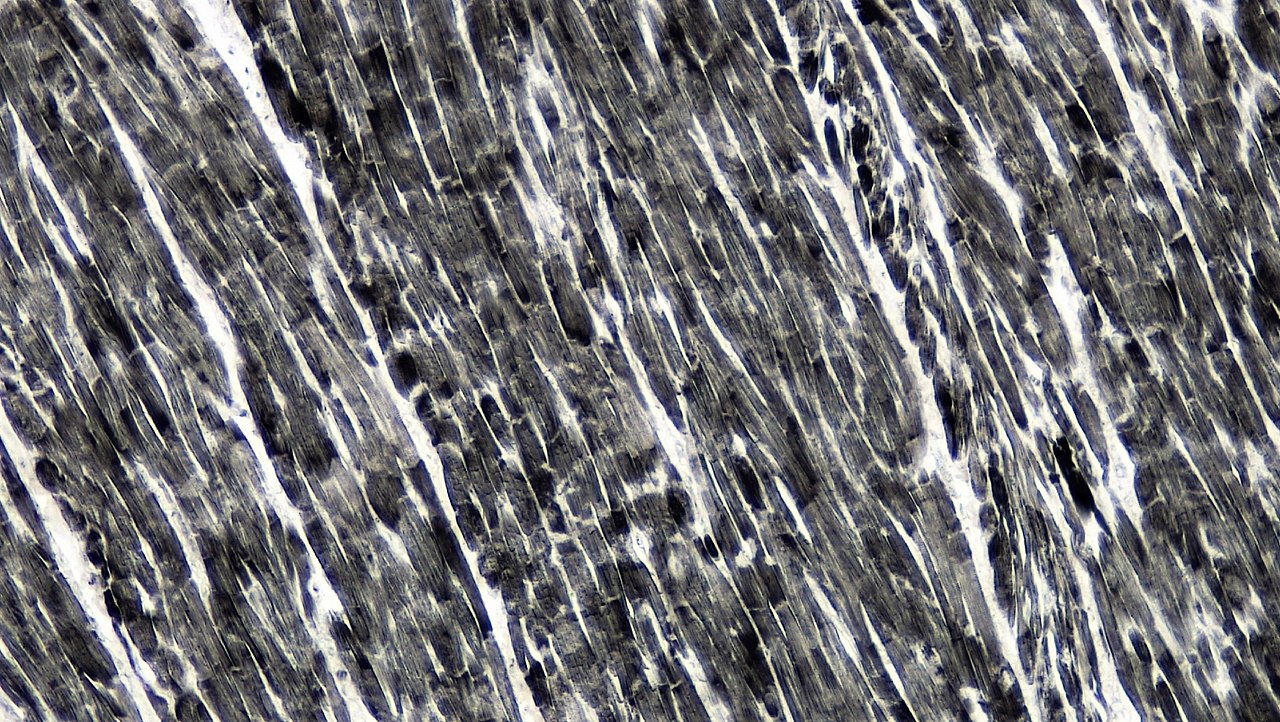
Indian researchers have identified the mechanism by which muscles above the neck, known as head muscles, are formed during development of an embryo in the womb

A new study has estimated the size of Pakistan’s nuclear stockpile to be lower than present estimates, attributing it to the shortage of uranium

Researchers at the mechanical engineering division of the Indian Institute of Technology, Mumbai, have used lotus leaf to design a device that can help fill microwells with desired biological molecules quite efficiently

Public Outreach and Education Committee of the Astronomical Society of India, and the AstroSat Training and Outreach Team is all set to add a new feature to its one-year-old campaign to bring ISRO’s Astrosat space observatory closer to the general public
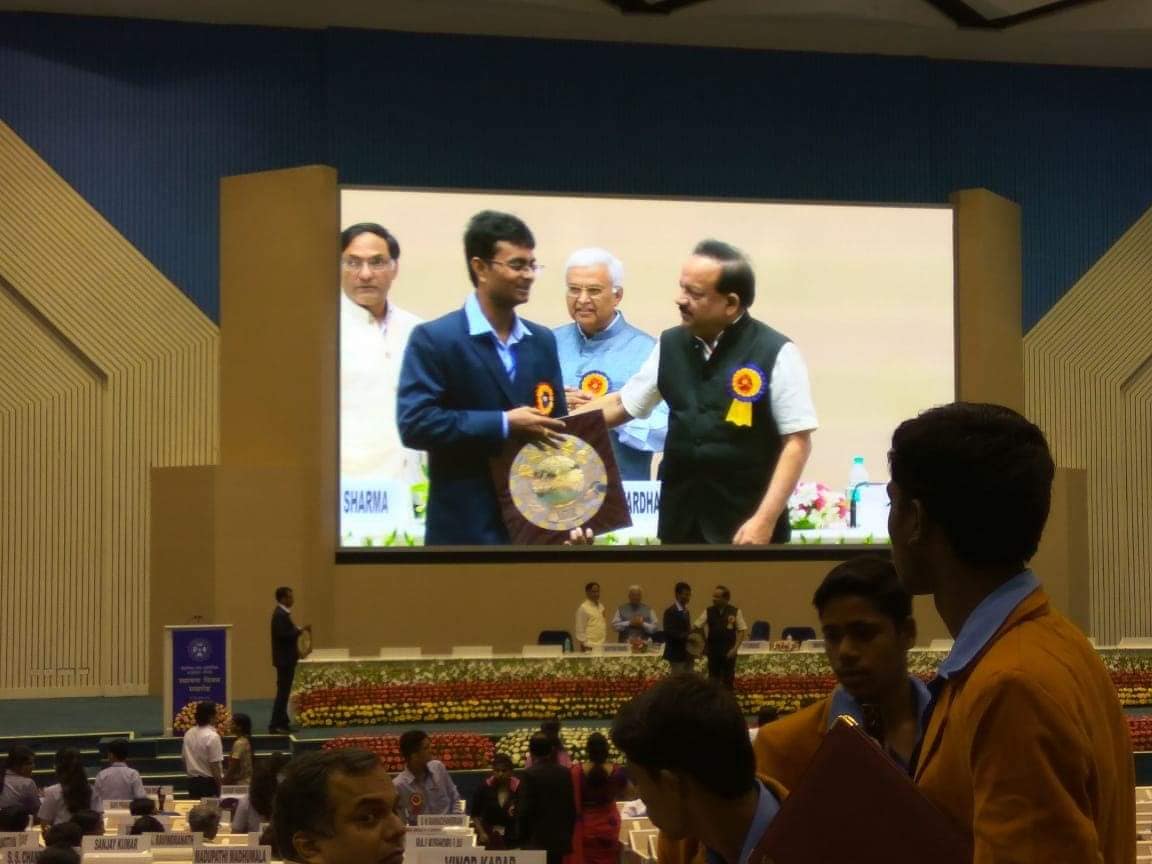
A total of 13 scientists from different institutions across the country have been chosen for the prestigious Shanti Swarup Bhatnagar prize for 2018

An international group of researchers has released the most in-depth wide-field map of the three-dimensional distribution of matter in the universe ever made

Disasters managers and scientists in Sikkim are keeping a close watch on a lake formed due to the melting of glaciers to see how successful is an experiment they began two years back to siphon off excess water from the lake to prevent it from bursting
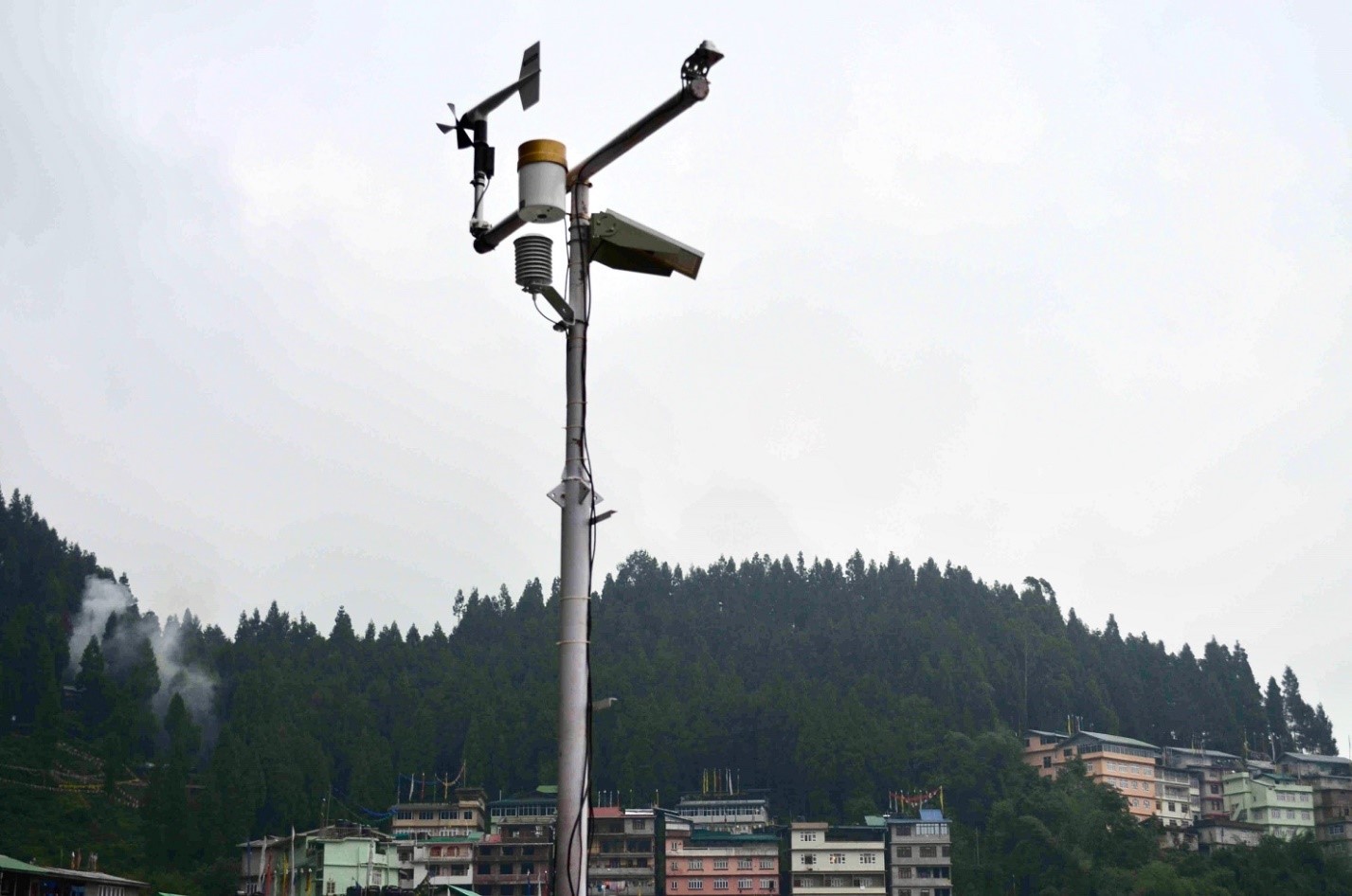
A real-time landslide warning system has been set up in the Sikkim-Darjeeling belt of the north-eastern Himalayas which is highly vulnerable to landslides
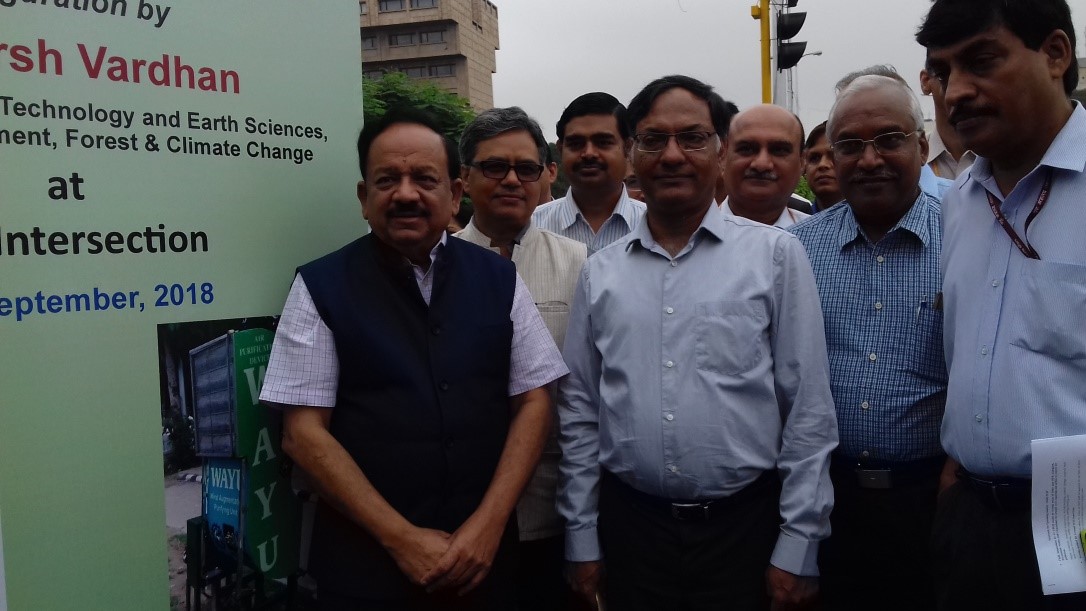
The National Environmental Engineering Research Institute, Nagpur-based laboratory of the Council of Scientific and Industrial Research, has developed a device to address air pollution at high traffic zones like traffic intersections and parking areas

In order to educate the general public about scientific research and its benefits, DBT-National Brain Research Centre, Manesar - organized an Open Day on September 20, 2018, under India International Science Festival 2018 (IISF) banner
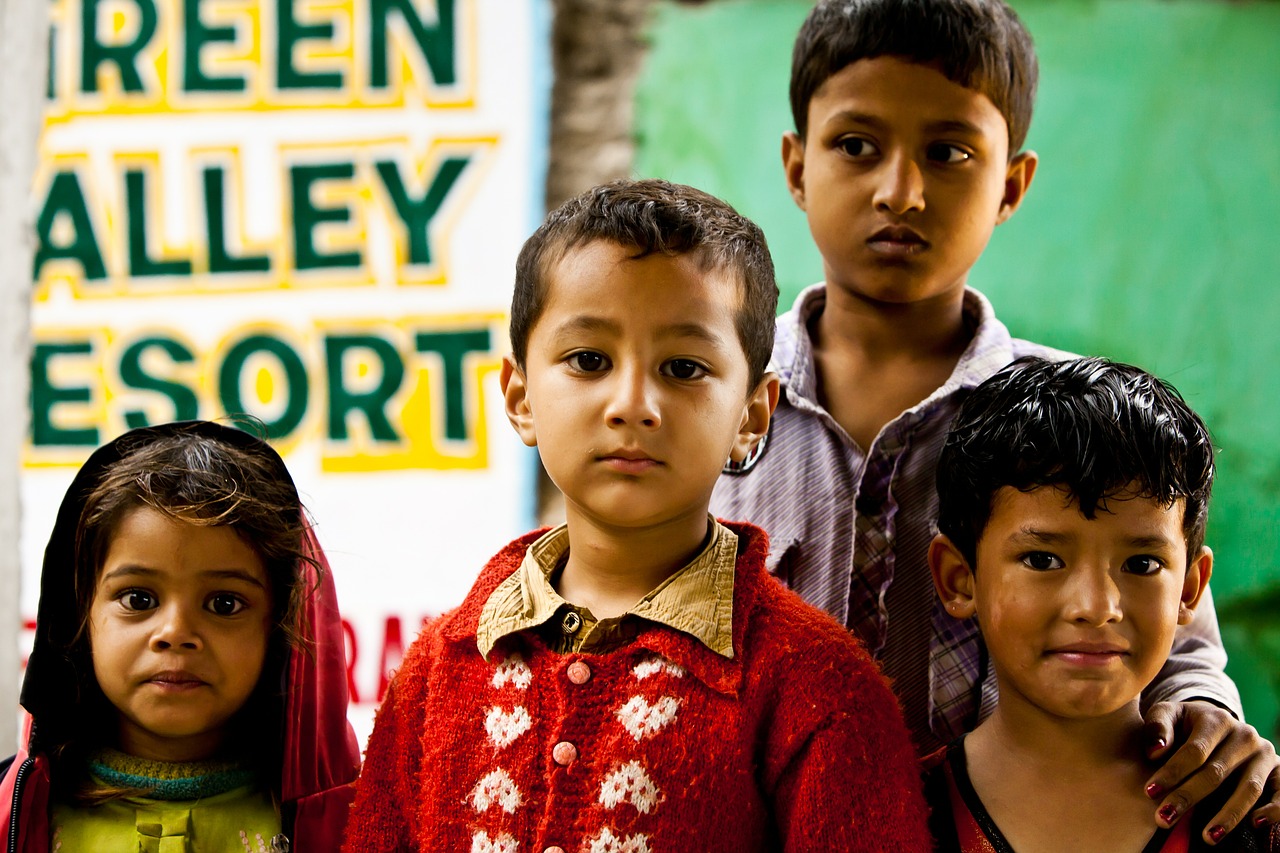
Indian Health Ministry partners with Dell and Tata Trusts to provide the technology solution for a nationwide healthcare program
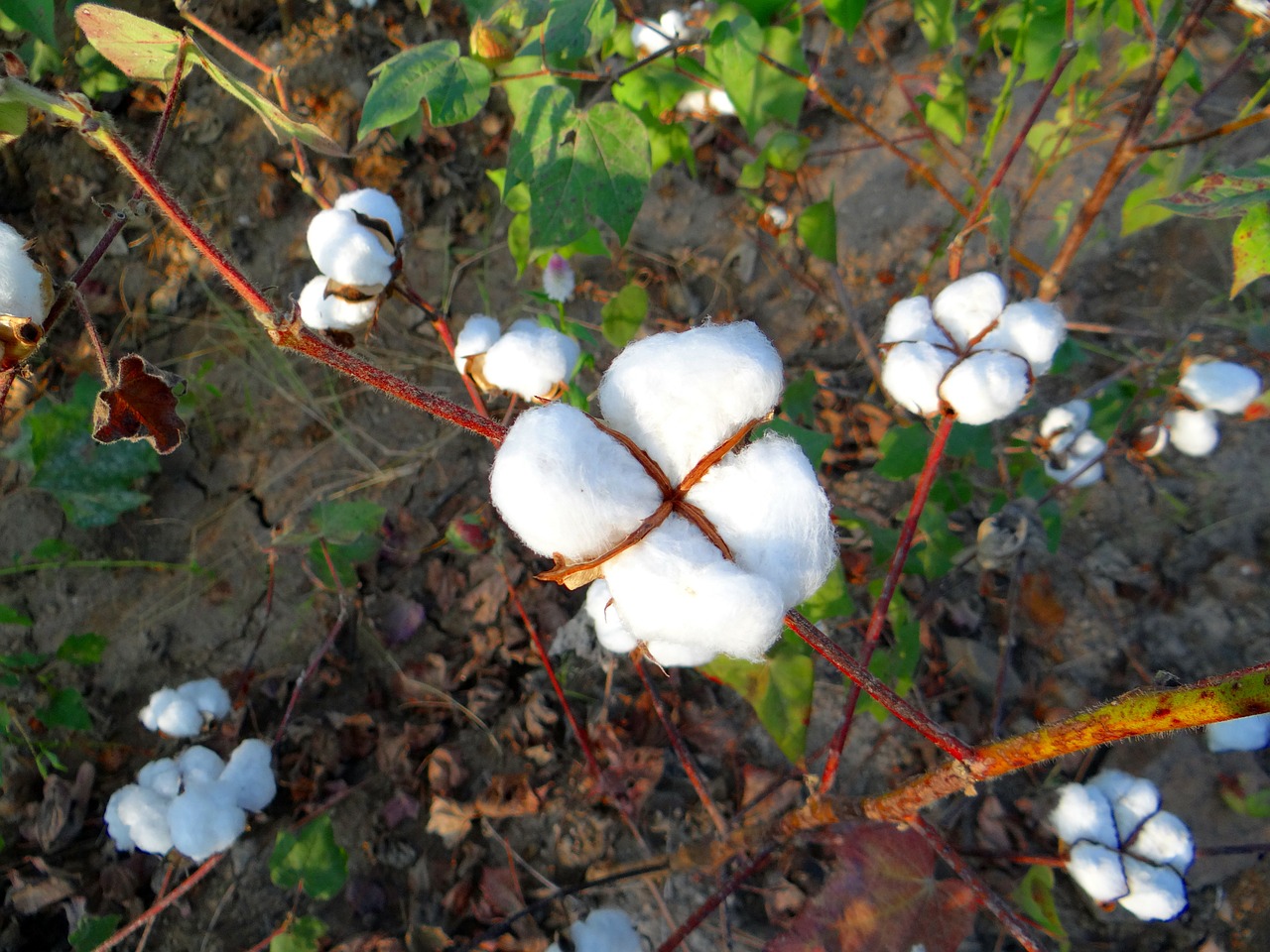
A team of Indian scientists have predicted that the yield of cotton can be maximized if the crop is sown early (by mid-May) and irrigated during ball formation and maturity stages in case of drought conditions

Researchers at Tata Institute of Fundamental Research and Bhabha Atomic Research Centre are developing a new gamma-ray telescope.
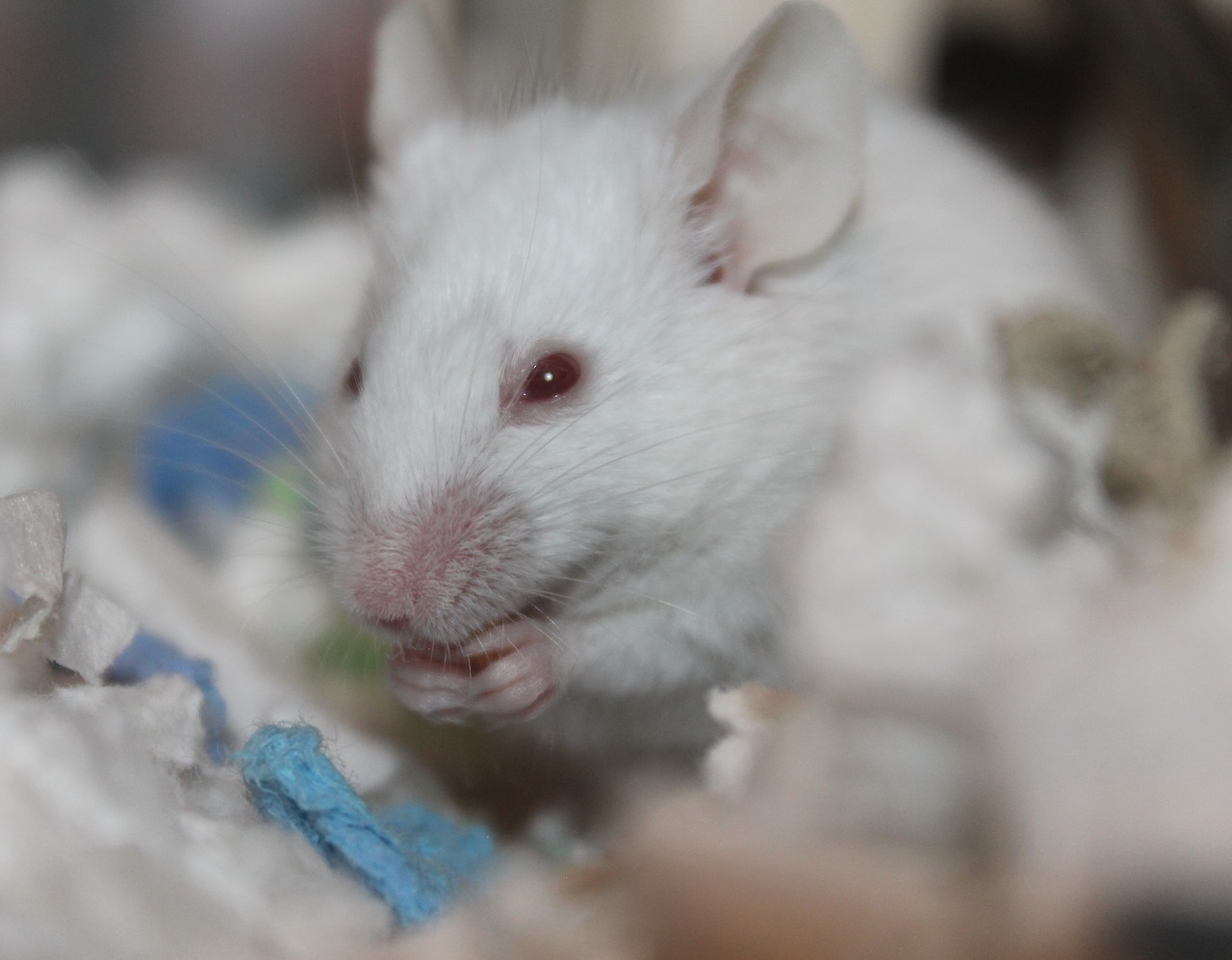
Indian scientists have shown that exaggerated response and difficulty to get rid of bad memories could depend on whether the bad memory was formed before or after a stressful event

Heavy school bags are always a problem for school children. A group of Indian researchers has now redesigned school bag pack so that it can reduce the load on spine and shoulders of children

A new study by epidemiologists from America, published in The Lancet Planetary Health, has reported that PM2.5 also impacts the disease burden of diabetes
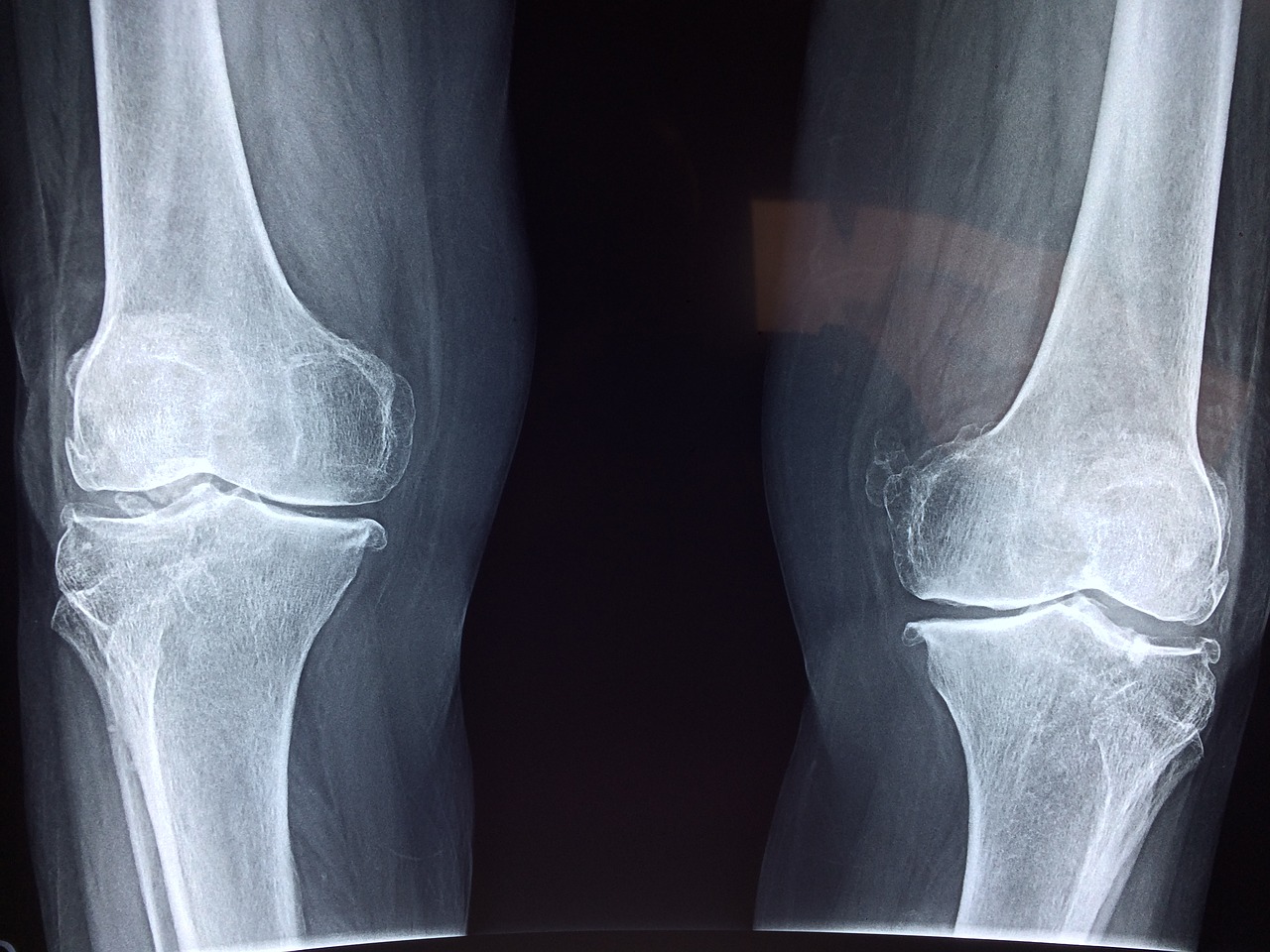
Researchers at the Indian Institute of Science in Bengaluru have proposed a new approach for developing orthopedic implants with better ability to bond with the bone
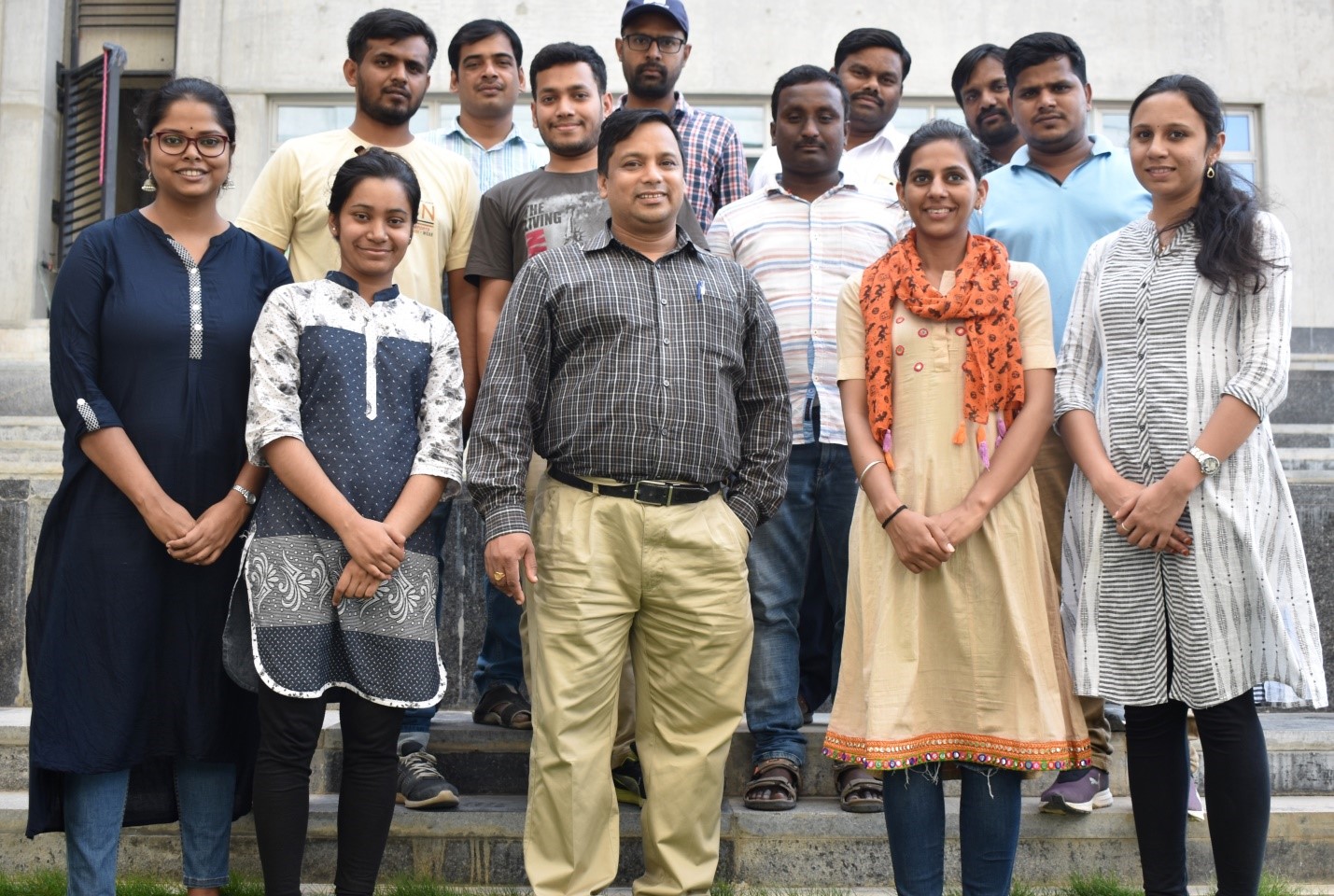
A team of scientists at India Institute of Technology Hyderabad has developed a set of new electrodes that promise to help produce lithium-ion batteries with higher energy densities
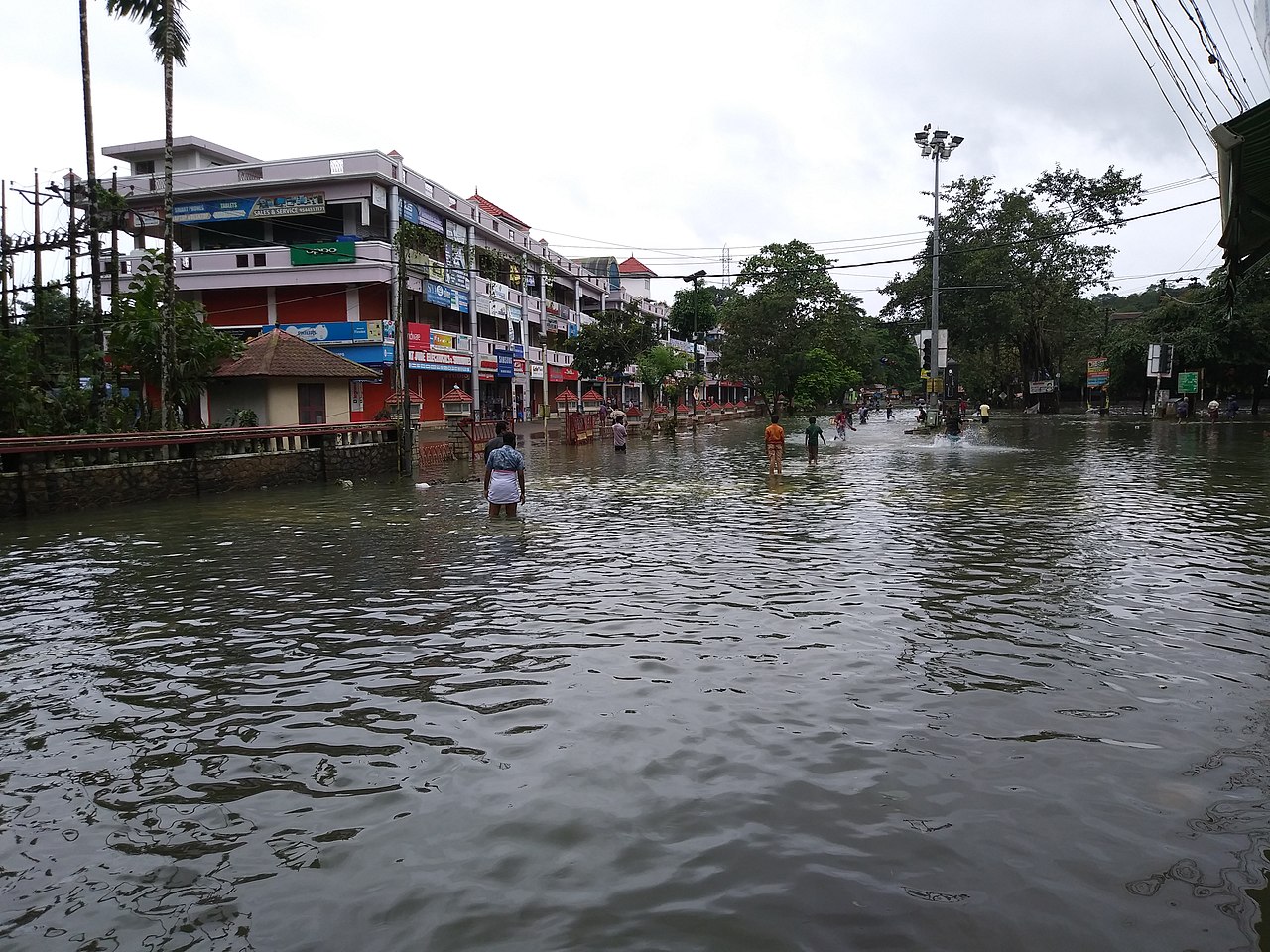
Every time an extreme weather event like the Kerala floods occurs, there is a great demand for information on its causes. The question uppermost in public discourse is if such events can be attributed to climate change and global warming

A scientific investigation into the avalanche that occurred on January 5, 2018, on Chowkibal-Tangdhar road in Kupwara district of Jammu & Kashmir has revealed important insights into such disasters
Internet is huge! Help us find great content
Never miss a thing! Sign up for our newsletter to stay updated.
Research Stash is a curated collection of tools and News for S.T.E.M researchers
Have any questions or want to partner with us? Reach us at hello@researchstash.com